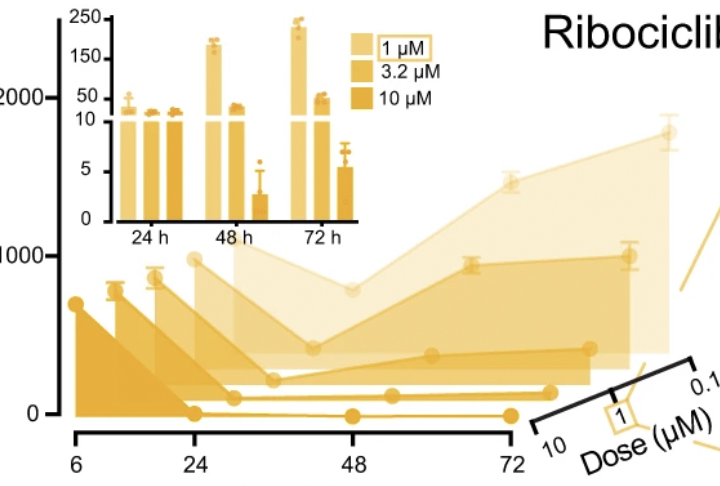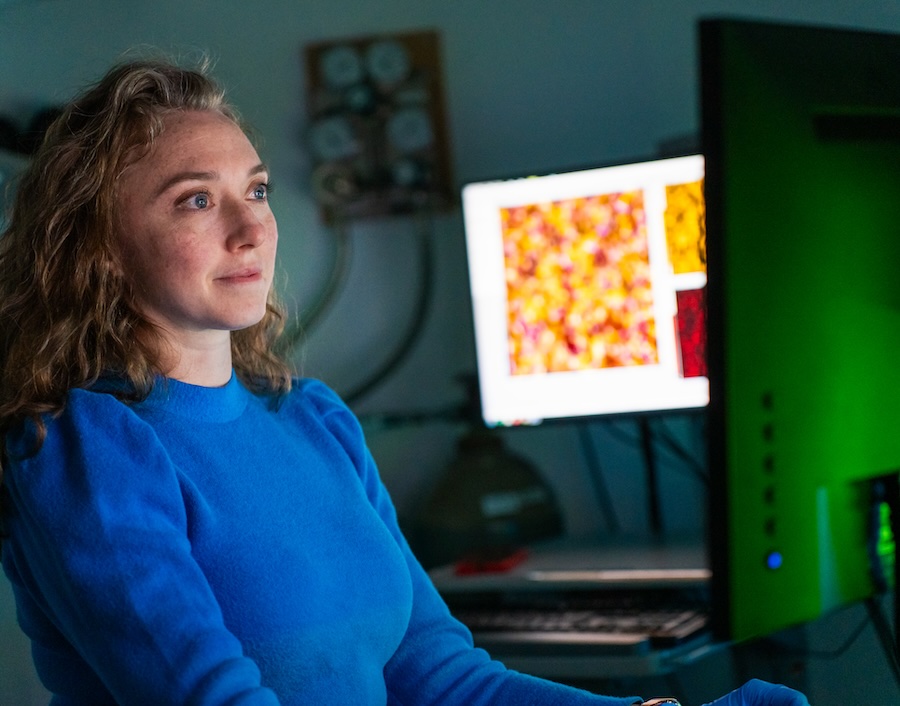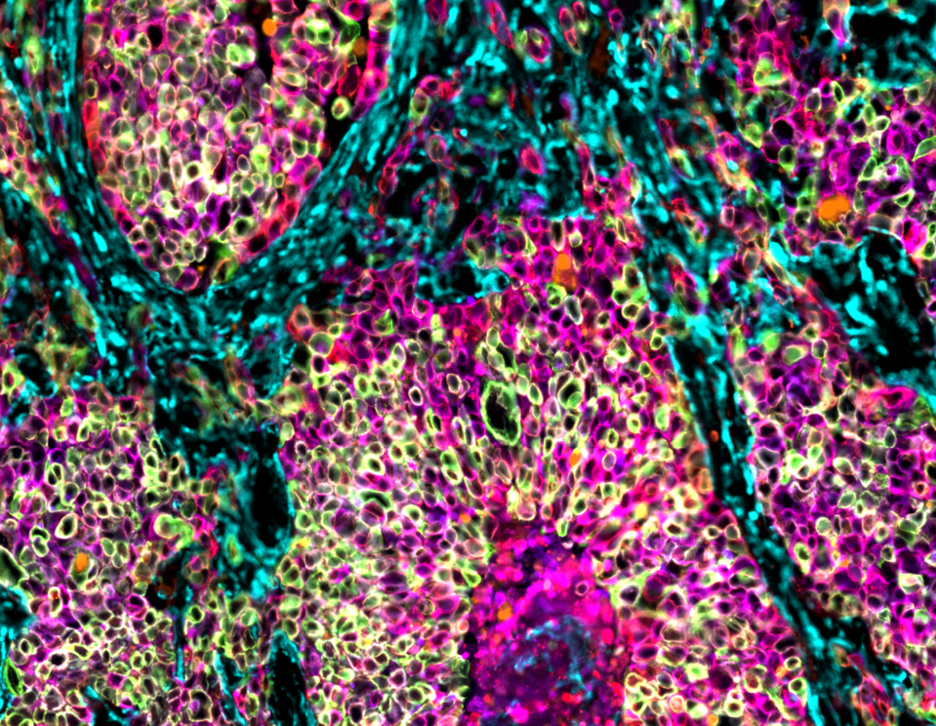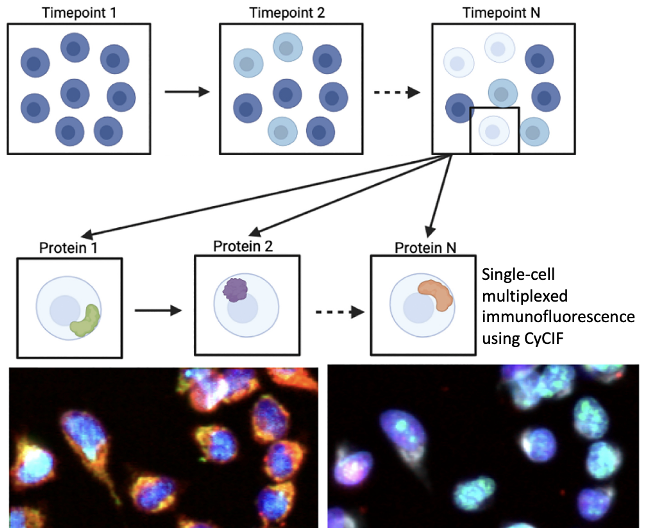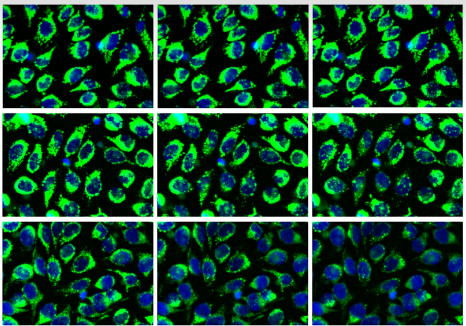Related Publications
2576724
IXMHRBF6
sensitivity and resistance
1
apa-cv
50
date
desc
1
1
4107
https://labsyspharm.org/wp-content/plugins/zotpress/
%7B%22status%22%3A%22success%22%2C%22updateneeded%22%3Afalse%2C%22instance%22%3Afalse%2C%22meta%22%3A%7B%22request_last%22%3A0%2C%22request_next%22%3A0%2C%22used_cache%22%3Atrue%7D%2C%22data%22%3A%5B%7B%22key%22%3A%22N7YHBVBQ%22%2C%22library%22%3A%7B%22id%22%3A2576724%7D%2C%22meta%22%3A%7B%22creatorSummary%22%3A%22MacDonald%20et%20al.%22%2C%22parsedDate%22%3A%222025-01-06%22%2C%22numChildren%22%3A1%7D%2C%22bib%22%3A%22%3Cdiv%20class%3D%5C%22csl-bib-body%5C%22%20style%3D%5C%22line-height%3A%202%3B%20padding-left%3A%201em%3B%20text-indent%3A-1em%3B%5C%22%3E%5Cn%20%20%3Cdiv%20class%3D%5C%22csl-entry%5C%22%3EMacDonald%2C%20J.%20A.%2C%20Bradshaw%2C%20G.%20A.%2C%20Jochems%2C%20F.%2C%20Bernards%2C%20R.%2C%20%26amp%3B%20Letai%2C%20A.%20%282025%29.%20Apoptotic%20priming%20in%20senescence%20predicts%20specific%20senolysis%20by%20quantitative%20analysis%20of%20mitochondrial%20dependencies.%20%3Ci%3ECell%20Death%20and%20Differentiation%3C%5C%2Fi%3E.%20%3Ca%20class%3D%27zp-DOIURL%27%20target%3D%27_blank%27%20href%3D%27https%3A%5C%2F%5C%2Fdoi.org%5C%2F10.1038%5C%2Fs41418-024-01431-1%27%3Ehttps%3A%5C%2F%5C%2Fdoi.org%5C%2F10.1038%5C%2Fs41418-024-01431-1%3C%5C%2Fa%3E%3C%5C%2Fdiv%3E%5Cn%3C%5C%2Fdiv%3E%22%2C%22data%22%3A%7B%22itemType%22%3A%22journalArticle%22%2C%22title%22%3A%22Apoptotic%20priming%20in%20senescence%20predicts%20specific%20senolysis%20by%20quantitative%20analysis%20of%20mitochondrial%20dependencies%22%2C%22creators%22%3A%5B%7B%22creatorType%22%3A%22author%22%2C%22firstName%22%3A%22Julie%20A.%22%2C%22lastName%22%3A%22MacDonald%22%7D%2C%7B%22creatorType%22%3A%22author%22%2C%22firstName%22%3A%22Gary%20A.%22%2C%22lastName%22%3A%22Bradshaw%22%7D%2C%7B%22creatorType%22%3A%22author%22%2C%22firstName%22%3A%22Fleur%22%2C%22lastName%22%3A%22Jochems%22%7D%2C%7B%22creatorType%22%3A%22author%22%2C%22firstName%22%3A%22Ren%5Cu00e9%22%2C%22lastName%22%3A%22Bernards%22%7D%2C%7B%22creatorType%22%3A%22author%22%2C%22firstName%22%3A%22Anthony%22%2C%22lastName%22%3A%22Letai%22%7D%5D%2C%22abstractNote%22%3A%22Cellular%20senescence%20contributes%20to%20a%20variety%20of%20pathologies%20associated%20with%20aging%20and%20is%20implicated%20as%20a%20cellular%20state%20in%20which%20cancer%20cells%20can%20survive%20treatment.%20Reported%20senolytic%20drug%20treatments%20act%20through%20varying%20molecular%20mechanisms%2C%20but%20heterogeneous%20efficacy%20across%20the%20diverse%20contexts%20of%20cellular%20senescence%20indicates%20a%20need%20for%20predictive%20biomarkers%20of%20senolytic%20activity.%20Using%20multi-parametric%20analyses%20of%20commonly%20reported%20molecular%20features%20of%20the%20senescent%20phenotype%2C%20we%20assayed%20a%20variety%20of%20models%2C%20including%20malignant%20and%20nonmalignant%20cells%2C%20using%20several%20triggers%20of%20senescence%20induction%20and%20found%20little%20univariate%20predictive%20power%20of%20these%20traditional%20senescence%20markers%20to%20identify%20senolytic%20drug%20sensitivity.%20We%20sought%20to%20identify%20novel%20drug%20targets%20in%20senescent%20cells%20that%20were%20insensitive%20to%20frequently%20implemented%20senolytic%20therapies%2C%20such%20as%20Navitoclax%20%28ABT-263%29%2C%20using%20quantitative%20mass%20spectrometry%20to%20measure%20changes%20in%20the%20senescent%20proteome%2C%20compared%20to%20cells%20which%20acquire%20an%20acute%20sensitivity%20to%20ABT-263%20with%20senescence%20induction.%20Inhibition%20of%20the%20antioxidant%20GPX4%20or%20the%20Bcl-2%20family%20member%20MCL-1%20using%20small%20molecule%20compounds%20in%20combination%20with%20ABT-263%20significantly%20increased%20the%20induction%20of%20apoptosis%20in%20some%2C%20but%20not%20all%2C%20previously%20insensitive%20senescent%20cells.%20We%20then%20asked%20if%20we%20could%20use%20BH3%20profiling%20to%20measure%20differences%20in%20mitochondrial%20apoptotic%20priming%20in%20these%20models%20of%20cellular%20senescence%20and%20predict%20sensitivity%20to%20the%20senolytics%20ABT-263%20or%20the%20combination%20of%20dasatinib%20and%20quercetin%20%28D%5Cu2009%2B%5Cu2009Q%29.%20We%20found%2C%20despite%20being%20significantly%20less%20primed%20for%20apoptosis%20overall%2C%20the%20dependence%20of%20senescent%20mitochondria%20on%20BCL-XL%20was%20significantly%20correlated%20to%20senescent%20cell%20killing%20by%20both%20ABT-263%20and%20D%5Cu2009%2B%5Cu2009Q%2C%20despite%20no%20significant%20changes%20in%20the%20gene%20or%20protein%20expression%20of%20BCL-XL.%20However%2C%20our%20data%20caution%20against%20broad%20classification%20of%20drugs%20as%20globally%20senolytic%20and%20instead%20provide%20impetus%20for%20context-specific%20senolytic%20targets%20and%20propose%20BH3%20profiling%20as%20an%20effective%20predictive%20biomarker.%22%2C%22date%22%3A%222025-01-06%22%2C%22language%22%3A%22eng%22%2C%22DOI%22%3A%2210.1038%5C%2Fs41418-024-01431-1%22%2C%22ISSN%22%3A%221476-5403%22%2C%22url%22%3A%22%22%2C%22collections%22%3A%5B%22IXMHRBF6%22%5D%2C%22dateModified%22%3A%222025-01-15T16%3A00%3A20Z%22%7D%7D%2C%7B%22key%22%3A%2272XL4YQK%22%2C%22library%22%3A%7B%22id%22%3A2576724%7D%2C%22meta%22%3A%7B%22creatorSummary%22%3A%22Girnius%20et%20al.%22%2C%22parsedDate%22%3A%222024-12-20%22%2C%22numChildren%22%3A1%7D%2C%22bib%22%3A%22%3Cdiv%20class%3D%5C%22csl-bib-body%5C%22%20style%3D%5C%22line-height%3A%202%3B%20padding-left%3A%201em%3B%20text-indent%3A-1em%3B%5C%22%3E%5Cn%20%20%3Cdiv%20class%3D%5C%22csl-entry%5C%22%3EGirnius%2C%20N.%2C%20Henstridge%2C%20A.%20Z.%2C%20Marks%2C%20B.%2C%20Yu%2C%20J.%20K.%2C%20Gray%2C%20G.%20K.%2C%20Sander%2C%20C.%2C%20Zervantonakis%2C%20I.%20K.%2C%20%26amp%3B%20Luna%2C%20A.%20%282024%29.%20Cilengitide%20sensitivity%20is%20predicted%20by%20overall%20integrin%20expression%20in%20breast%20cancer.%20%3Ci%3EBreast%20Cancer%20Research%3A%20BCR%3C%5C%2Fi%3E%2C%20%3Ci%3E26%3C%5C%2Fi%3E%281%29%2C%20187.%20%3Ca%20class%3D%27zp-DOIURL%27%20target%3D%27_blank%27%20href%3D%27https%3A%5C%2F%5C%2Fdoi.org%5C%2F10.1186%5C%2Fs13058-024-01942-2%27%3Ehttps%3A%5C%2F%5C%2Fdoi.org%5C%2F10.1186%5C%2Fs13058-024-01942-2%3C%5C%2Fa%3E%3C%5C%2Fdiv%3E%5Cn%3C%5C%2Fdiv%3E%22%2C%22data%22%3A%7B%22itemType%22%3A%22journalArticle%22%2C%22title%22%3A%22Cilengitide%20sensitivity%20is%20predicted%20by%20overall%20integrin%20expression%20in%20breast%20cancer%22%2C%22creators%22%3A%5B%7B%22creatorType%22%3A%22author%22%2C%22firstName%22%3A%22Nomeda%22%2C%22lastName%22%3A%22Girnius%22%7D%2C%7B%22creatorType%22%3A%22author%22%2C%22firstName%22%3A%22Aylin%20Z.%22%2C%22lastName%22%3A%22Henstridge%22%7D%2C%7B%22creatorType%22%3A%22author%22%2C%22firstName%22%3A%22Benjamin%22%2C%22lastName%22%3A%22Marks%22%7D%2C%7B%22creatorType%22%3A%22author%22%2C%22firstName%22%3A%22Jeffrey%20K.%22%2C%22lastName%22%3A%22Yu%22%7D%2C%7B%22creatorType%22%3A%22author%22%2C%22firstName%22%3A%22G.%20Kenneth%22%2C%22lastName%22%3A%22Gray%22%7D%2C%7B%22creatorType%22%3A%22author%22%2C%22firstName%22%3A%22Chris%22%2C%22lastName%22%3A%22Sander%22%7D%2C%7B%22creatorType%22%3A%22author%22%2C%22firstName%22%3A%22Ioannis%20K.%22%2C%22lastName%22%3A%22Zervantonakis%22%7D%2C%7B%22creatorType%22%3A%22author%22%2C%22firstName%22%3A%22Augustin%22%2C%22lastName%22%3A%22Luna%22%7D%5D%2C%22abstractNote%22%3A%22BACKGROUND%3A%20Treatment%20options%20for%20triple-negative%20breast%20cancer%20%28TNBC%29%20are%20limited%20and%20patients%20face%20a%20poor%20prognosis.%20Here%2C%20we%20sought%20to%20identify%20drugs%20that%20target%20TNBC%20vulnerabilities%20and%20understand%20the%20biology%20underlying%20these%20responses.%20We%20analyzed%20the%20Broad%20Institute%20DepMap%20to%20identify%20recurrent%20TNBC%20vulnerabilities%20and%20performed%20a%2045-compound%20screen%20on%20vulnerability-related%20pathways%20on%20a%20set%20of%20up%20to%208%20TNBC%20cell%20lines.%20We%20identified%20a%20subset%20of%20cell%20lines%20with%20an%20ITGAV%20vulnerability%20and%20a%20differential%20sensitivity%20to%20cilengitide%2C%20an%20integrin%20inhibitor%20targeting%20ITGAV%3AITGB3%20and%20ITGAV%3AITGB5.%20Next%2C%20we%20sought%20to%20understand%20cilengitide%20resistance%20and%20response%20biomarkers.%20Clinical%20trials%20targeting%20integrins%20continue%20enrolling%20patients%2C%20necessitating%20an%20understanding%20of%20how%20these%20drugs%20affect%20tumors.%5CnMETHODS%3A%20We%20combined%20in%20vitro%20assays%20with%20computational%20approaches%20to%20systematically%20explore%20the%20differential%20sensitivity%20to%20cilengitide%20and%20resistance%20mechanisms.%20We%20tested%20an%20additional%20pan-ITGAV%20inhibitor%20%28GLPG0187%29%20to%20determine%20how%20generalizable%20our%20findings%20on%20cilengitide%20sensitivity%20might%20be%20to%20integrin%20inhibition.%20ITGB4%2C%20ITGA3%2C%20and%20ITGA6%20knockdown%20experiments%20assessed%20the%20importance%20of%20integrin%20monomers%20in%20cell%20attachment%20during%20cilengitide%20treatment.%20Additionally%2C%20we%20explored%20the%20role%20of%20extracellular%20matrix%20%28ECM%29%20proteins%20in%20cilengitide%20response%20by%20performing%20cell%20replating%20experiments%20and%20by%20culturing%20on%20collagen%2C%20fibronectin%2C%20or%20laminin%20coated%20plates.%5CnRESULTS%3A%20We%20discovered%20that%20cell-derived%20ECM%20modulates%20cilengitide%20sensitivity%20and%20exogenous%20fibronectin%20addition%20conferred%20resistance%20to%20all%20sensitive%20TNBC%20cell%20lines%2C%20though%20fibronectin%20expression%20did%20not%20correlate%20with%20sensitivity.%20Instead%2C%20elevated%20overall%20integrin%20protein%20levels%2C%20not%20specific%20integrins%2C%20in%20TNBC%20cells%20positively%20correlated%20with%20resistance.%20This%20suggested%20that%20high%20pan-integrin%20expression%20promotes%20cilengitide%20resistance.%20Thus%2C%20we%20tested%20cilengitide%20in%20six%20luminal%20breast%20cancer%20cell%20lines%20%28which%20have%20low%20integrin%20levels%29%3B%20all%20were%20sensitive.%20Also%2C%20pan-ITGAV%20inhibitor%2C%20GLPG0187%2C%20showed%20the%20same%20sensitivity%20profile%20across%20our%20TNBC%20cell%20lines%2C%20suggesting%20our%20findings%20apply%20to%20other%20integrin%20inhibitors.%5CnCONCLUSIONS%3A%20Integrin%20inhibitors%20are%20appealing%20candidates%20to%20pursue%20as%20anti-cancer%20drugs%20because%20they%20are%20generally%20well-tolerated%2C%20but%20their%20efficacy%20is%20mixed%2C%20possibly%20due%20to%20the%20absence%20of%20predictive%20markers.%20Cilengitide%20induces%20death%20in%20breast%20cancer%20cells%20with%20low%20integrin%20abundance%2C%20where%20complementary%20ECM%20promotes%20survival.%20Thus%2C%20integrin%20inhibition%20in%20breast%20cancer%20warrants%20further%20study.%22%2C%22date%22%3A%222024-12-20%22%2C%22language%22%3A%22eng%22%2C%22DOI%22%3A%2210.1186%5C%2Fs13058-024-01942-2%22%2C%22ISSN%22%3A%221465-542X%22%2C%22url%22%3A%22%22%2C%22collections%22%3A%5B%22IXMHRBF6%22%5D%2C%22dateModified%22%3A%222025-01-06T15%3A12%3A25Z%22%7D%7D%2C%7B%22key%22%3A%22ULE9PA2Y%22%2C%22library%22%3A%7B%22id%22%3A2576724%7D%2C%22meta%22%3A%7B%22creatorSummary%22%3A%22Letai%20and%20de%20The%22%2C%22parsedDate%22%3A%222024-12-16%22%2C%22numChildren%22%3A1%7D%2C%22bib%22%3A%22%3Cdiv%20class%3D%5C%22csl-bib-body%5C%22%20style%3D%5C%22line-height%3A%202%3B%20padding-left%3A%201em%3B%20text-indent%3A-1em%3B%5C%22%3E%5Cn%20%20%3Cdiv%20class%3D%5C%22csl-entry%5C%22%3ELetai%2C%20A.%2C%20%26amp%3B%20de%20The%2C%20H.%20%282024%29.%20Conventional%20chemotherapy%3A%20millions%20of%20cures%2C%20unresolved%20therapeutic%20index.%20%3Ci%3ENature%20Reviews.%20Cancer%3C%5C%2Fi%3E.%20%3Ca%20class%3D%27zp-DOIURL%27%20target%3D%27_blank%27%20href%3D%27https%3A%5C%2F%5C%2Fdoi.org%5C%2F10.1038%5C%2Fs41568-024-00778-4%27%3Ehttps%3A%5C%2F%5C%2Fdoi.org%5C%2F10.1038%5C%2Fs41568-024-00778-4%3C%5C%2Fa%3E%3C%5C%2Fdiv%3E%5Cn%3C%5C%2Fdiv%3E%22%2C%22data%22%3A%7B%22itemType%22%3A%22journalArticle%22%2C%22title%22%3A%22Conventional%20chemotherapy%3A%20millions%20of%20cures%2C%20unresolved%20therapeutic%20index%22%2C%22creators%22%3A%5B%7B%22creatorType%22%3A%22author%22%2C%22firstName%22%3A%22Anthony%22%2C%22lastName%22%3A%22Letai%22%7D%2C%7B%22creatorType%22%3A%22author%22%2C%22firstName%22%3A%22Hugues%22%2C%22lastName%22%3A%22de%20The%22%7D%5D%2C%22abstractNote%22%3A%22In%20recent%20decades%2C%20millions%20of%20patients%20with%20cancer%20have%20been%20cured%20by%20chemotherapy%20alone.%20By%20%27cure%27%2C%20we%20mean%20that%20patients%20with%20cancers%20that%20would%20be%20fatal%20if%20left%20untreated%20receive%20a%20time-limited%20course%20of%20chemotherapy%20and%20their%20cancer%20disappears%2C%20never%20to%20return.%20In%20an%20era%20when%20hundreds%20of%20thousands%20of%20cancer%20genomes%20have%20been%20sequenced%2C%20a%20remarkable%20fact%20persists%3A%20in%20most%20patients%20who%20have%20been%20cured%2C%20we%20still%20do%20not%20fully%20understand%20the%20mechanisms%20underlying%20the%20therapeutic%20index%20by%20which%20the%20tumour%20cells%20are%20killed%2C%20but%20normal%20cells%20are%20somehow%20spared.%20In%20contrast%2C%20in%20more%20recent%20years%2C%20patients%20with%20cancer%20have%20benefited%20from%20targeted%20therapies%20that%20usually%20do%20not%20cure%20but%20whose%20mechanisms%20of%20therapeutic%20index%20are%2C%20at%20least%20superficially%2C%20understood.%20In%20this%20Perspective%2C%20we%20will%20explore%20the%20various%20and%20sometimes%20contradictory%20models%20that%20have%20attempted%20to%20explain%20why%20chemotherapy%20can%20cure%20some%20patients%20with%20cancer%2C%20and%20what%20gaps%20in%20our%20understanding%20of%20the%20therapeutic%20index%20of%20chemotherapy%20remain%20to%20be%20filled.%20We%20will%20summarize%20principles%20which%20have%20benefited%20curative%20conventional%20chemotherapy%20regimens%20in%20the%20past%2C%20principles%20which%20might%20be%20deployed%20in%20constructing%20combinations%20that%20include%20modern%20targeted%20therapies.%22%2C%22date%22%3A%222024-12-16%22%2C%22language%22%3A%22eng%22%2C%22DOI%22%3A%2210.1038%5C%2Fs41568-024-00778-4%22%2C%22ISSN%22%3A%221474-1768%22%2C%22url%22%3A%22%22%2C%22collections%22%3A%5B%22IXMHRBF6%22%5D%2C%22dateModified%22%3A%222025-01-06T15%3A14%3A35Z%22%7D%7D%2C%7B%22key%22%3A%22U6N5QSRP%22%2C%22library%22%3A%7B%22id%22%3A2576724%7D%2C%22meta%22%3A%7B%22lastModifiedByUser%22%3A%7B%22id%22%3A9036456%2C%22username%22%3A%22jtefft%22%2C%22name%22%3A%22%22%2C%22links%22%3A%7B%22alternate%22%3A%7B%22href%22%3A%22https%3A%5C%2F%5C%2Fwww.zotero.org%5C%2Fjtefft%22%2C%22type%22%3A%22text%5C%2Fhtml%22%7D%7D%7D%2C%22creatorSummary%22%3A%22Loi%20et%20al.%22%2C%22parsedDate%22%3A%222024-12-02%22%2C%22numChildren%22%3A1%7D%2C%22bib%22%3A%22%3Cdiv%20class%3D%5C%22csl-bib-body%5C%22%20style%3D%5C%22line-height%3A%202%3B%20padding-left%3A%201em%3B%20text-indent%3A-1em%3B%5C%22%3E%5Cn%20%20%3Cdiv%20class%3D%5C%22csl-entry%5C%22%3ELoi%2C%20P.%2C%20Schade%2C%20A.%20E.%2C%20Rodriguez%2C%20C.%20L.%2C%20Krishnan%2C%20A.%2C%20Perurena%2C%20N.%2C%20Nguyen%2C%20V.%20T.%20M.%2C%20Xu%2C%20Y.%2C%20Watanabe%2C%20M.%2C%20Davis%2C%20R.%20A.%2C%20Gardner%2C%20A.%2C%20Pilla%2C%20N.%20F.%2C%20Mattioli%2C%20K.%2C%20Popow%2C%20O.%2C%20Gunduz%2C%20N.%2C%20Lannagan%2C%20T.%20R.%20M.%2C%20Fitzgerald%2C%20S.%2C%20Sicinska%2C%20E.%20T.%2C%20Lin%2C%20J.-R.%2C%20Tan%2C%20W.%2C%20%26%23x2026%3B%20Cichowski%2C%20K.%20%282024%29.%20Epigenetic%20and%20Oncogenic%20Inhibitors%20Cooperatively%20Drive%20Differentiation%20and%20Kill%20KRAS-Mutant%20Colorectal%20Cancers.%20%3Ci%3ECancer%20Discovery%3C%5C%2Fi%3E%2C%20%3Ci%3E14%3C%5C%2Fi%3E%2812%29%2C%202430%26%23x2013%3B2449.%20%3Ca%20class%3D%27zp-DOIURL%27%20target%3D%27_blank%27%20href%3D%27https%3A%5C%2F%5C%2Fdoi.org%5C%2F10.1158%5C%2F2159-8290.CD-23-0866%27%3Ehttps%3A%5C%2F%5C%2Fdoi.org%5C%2F10.1158%5C%2F2159-8290.CD-23-0866%3C%5C%2Fa%3E%3C%5C%2Fdiv%3E%5Cn%3C%5C%2Fdiv%3E%22%2C%22data%22%3A%7B%22itemType%22%3A%22journalArticle%22%2C%22title%22%3A%22Epigenetic%20and%20Oncogenic%20Inhibitors%20Cooperatively%20Drive%20Differentiation%20and%20Kill%20KRAS-Mutant%20Colorectal%20Cancers%22%2C%22creators%22%3A%5B%7B%22creatorType%22%3A%22author%22%2C%22firstName%22%3A%22Patrick%22%2C%22lastName%22%3A%22Loi%22%7D%2C%7B%22creatorType%22%3A%22author%22%2C%22firstName%22%3A%22Amy%20E.%22%2C%22lastName%22%3A%22Schade%22%7D%2C%7B%22creatorType%22%3A%22author%22%2C%22firstName%22%3A%22Carrie%20L.%22%2C%22lastName%22%3A%22Rodriguez%22%7D%2C%7B%22creatorType%22%3A%22author%22%2C%22firstName%22%3A%22Anjana%22%2C%22lastName%22%3A%22Krishnan%22%7D%2C%7B%22creatorType%22%3A%22author%22%2C%22firstName%22%3A%22Naiara%22%2C%22lastName%22%3A%22Perurena%22%7D%2C%7B%22creatorType%22%3A%22author%22%2C%22firstName%22%3A%22Van%20T.%20M.%22%2C%22lastName%22%3A%22Nguyen%22%7D%2C%7B%22creatorType%22%3A%22author%22%2C%22firstName%22%3A%22Yilin%22%2C%22lastName%22%3A%22Xu%22%7D%2C%7B%22creatorType%22%3A%22author%22%2C%22firstName%22%3A%22Marina%22%2C%22lastName%22%3A%22Watanabe%22%7D%2C%7B%22creatorType%22%3A%22author%22%2C%22firstName%22%3A%22Rachel%20A.%22%2C%22lastName%22%3A%22Davis%22%7D%2C%7B%22creatorType%22%3A%22author%22%2C%22firstName%22%3A%22Alycia%22%2C%22lastName%22%3A%22Gardner%22%7D%2C%7B%22creatorType%22%3A%22author%22%2C%22firstName%22%3A%22Natalie%20F.%22%2C%22lastName%22%3A%22Pilla%22%7D%2C%7B%22creatorType%22%3A%22author%22%2C%22firstName%22%3A%22Kaia%22%2C%22lastName%22%3A%22Mattioli%22%7D%2C%7B%22creatorType%22%3A%22author%22%2C%22firstName%22%3A%22Olesja%22%2C%22lastName%22%3A%22Popow%22%7D%2C%7B%22creatorType%22%3A%22author%22%2C%22firstName%22%3A%22Nuray%22%2C%22lastName%22%3A%22Gunduz%22%7D%2C%7B%22creatorType%22%3A%22author%22%2C%22firstName%22%3A%22Tamsin%20R.%20M.%22%2C%22lastName%22%3A%22Lannagan%22%7D%2C%7B%22creatorType%22%3A%22author%22%2C%22firstName%22%3A%22Samantha%22%2C%22lastName%22%3A%22Fitzgerald%22%7D%2C%7B%22creatorType%22%3A%22author%22%2C%22firstName%22%3A%22Ewa%20T.%22%2C%22lastName%22%3A%22Sicinska%22%7D%2C%7B%22creatorType%22%3A%22author%22%2C%22firstName%22%3A%22Jia-Ren%22%2C%22lastName%22%3A%22Lin%22%7D%2C%7B%22creatorType%22%3A%22author%22%2C%22firstName%22%3A%22William%22%2C%22lastName%22%3A%22Tan%22%7D%2C%7B%22creatorType%22%3A%22author%22%2C%22firstName%22%3A%22Lauren%20K.%22%2C%22lastName%22%3A%22Brais%22%7D%2C%7B%22creatorType%22%3A%22author%22%2C%22firstName%22%3A%22Kevin%20M.%22%2C%22lastName%22%3A%22Haigis%22%7D%2C%7B%22creatorType%22%3A%22author%22%2C%22firstName%22%3A%22Marios%22%2C%22lastName%22%3A%22Giannakis%22%7D%2C%7B%22creatorType%22%3A%22author%22%2C%22firstName%22%3A%22Kimmie%22%2C%22lastName%22%3A%22Ng%22%7D%2C%7B%22creatorType%22%3A%22author%22%2C%22firstName%22%3A%22Sandro%22%2C%22lastName%22%3A%22Santagata%22%7D%2C%7B%22creatorType%22%3A%22author%22%2C%22firstName%22%3A%22Kristian%22%2C%22lastName%22%3A%22Helin%22%7D%2C%7B%22creatorType%22%3A%22author%22%2C%22firstName%22%3A%22Owen%20J.%22%2C%22lastName%22%3A%22Sansom%22%7D%2C%7B%22creatorType%22%3A%22author%22%2C%22firstName%22%3A%22Karen%22%2C%22lastName%22%3A%22Cichowski%22%7D%5D%2C%22abstractNote%22%3A%22Combined%20EZH2%20and%20RAS%20pathway%20inhibitors%20kill%20KRAS-mutant%20colorectal%20cancer%20cells%20and%20promote%20durable%20tumor%20regression%20in%20vivo.%20These%20agents%20function%20by%20cooperatively%20suppressing%20the%20WNT%20pathway%2C%20driving%20differentiation%2C%20and%20epigenetically%20reprogramming%20cells%20to%20permit%20the%20induction%20of%20apoptotic%20signals%2C%20which%20then%20kill%20these%20more%20differentiated%20tumor%20cells.%22%2C%22date%22%3A%222024-12-02%22%2C%22language%22%3A%22eng%22%2C%22DOI%22%3A%2210.1158%5C%2F2159-8290.CD-23-0866%22%2C%22ISSN%22%3A%222159-8290%22%2C%22url%22%3A%22%22%2C%22collections%22%3A%5B%22IXMHRBF6%22%5D%2C%22dateModified%22%3A%222024-12-04T17%3A39%3A55Z%22%7D%7D%2C%7B%22key%22%3A%22VSPLVMKA%22%2C%22library%22%3A%7B%22id%22%3A2576724%7D%2C%22meta%22%3A%7B%22lastModifiedByUser%22%3A%7B%22id%22%3A9036456%2C%22username%22%3A%22jtefft%22%2C%22name%22%3A%22%22%2C%22links%22%3A%7B%22alternate%22%3A%7B%22href%22%3A%22https%3A%5C%2F%5C%2Fwww.zotero.org%5C%2Fjtefft%22%2C%22type%22%3A%22text%5C%2Fhtml%22%7D%7D%7D%2C%22creatorSummary%22%3A%22Schade%20et%20al.%22%2C%22parsedDate%22%3A%222024-11%22%2C%22numChildren%22%3A2%7D%2C%22bib%22%3A%22%3Cdiv%20class%3D%5C%22csl-bib-body%5C%22%20style%3D%5C%22line-height%3A%202%3B%20padding-left%3A%201em%3B%20text-indent%3A-1em%3B%5C%22%3E%5Cn%20%20%3Cdiv%20class%3D%5C%22csl-entry%5C%22%3ESchade%2C%20A.%20E.%2C%20Perurena%2C%20N.%2C%20Yang%2C%20Y.%2C%20Rodriguez%2C%20C.%20L.%2C%20Krishnan%2C%20A.%2C%20Gardner%2C%20A.%2C%20Loi%2C%20P.%2C%20Xu%2C%20Y.%2C%20Nguyen%2C%20V.%20T.%20M.%2C%20Mastellone%2C%20G.%20M.%2C%20Pilla%2C%20N.%20F.%2C%20Watanabe%2C%20M.%2C%20Ota%2C%20K.%2C%20Davis%2C%20R.%20A.%2C%20Mattioli%2C%20K.%2C%20Xiang%2C%20D.%2C%20Zoeller%2C%20J.%20J.%2C%20Lin%2C%20J.-R.%2C%20Morganti%2C%20S.%2C%20%26%23x2026%3B%20Cichowski%2C%20K.%20%282024%29.%20AKT%20and%20EZH2%20inhibitors%20kill%20TNBCs%20by%20hijacking%20mechanisms%20of%20involution.%20%3Ci%3ENature%3C%5C%2Fi%3E%2C%20%3Ci%3E635%3C%5C%2Fi%3E%288039%29%2C%20755%26%23x2013%3B763.%20%3Ca%20class%3D%27zp-DOIURL%27%20target%3D%27_blank%27%20href%3D%27https%3A%5C%2F%5C%2Fdoi.org%5C%2F10.1038%5C%2Fs41586-024-08031-6%27%3Ehttps%3A%5C%2F%5C%2Fdoi.org%5C%2F10.1038%5C%2Fs41586-024-08031-6%3C%5C%2Fa%3E%3C%5C%2Fdiv%3E%5Cn%3C%5C%2Fdiv%3E%22%2C%22data%22%3A%7B%22itemType%22%3A%22journalArticle%22%2C%22title%22%3A%22AKT%20and%20EZH2%20inhibitors%20kill%20TNBCs%20by%20hijacking%20mechanisms%20of%20involution%22%2C%22creators%22%3A%5B%7B%22creatorType%22%3A%22author%22%2C%22firstName%22%3A%22Amy%20E.%22%2C%22lastName%22%3A%22Schade%22%7D%2C%7B%22creatorType%22%3A%22author%22%2C%22firstName%22%3A%22Naiara%22%2C%22lastName%22%3A%22Perurena%22%7D%2C%7B%22creatorType%22%3A%22author%22%2C%22firstName%22%3A%22Yoona%22%2C%22lastName%22%3A%22Yang%22%7D%2C%7B%22creatorType%22%3A%22author%22%2C%22firstName%22%3A%22Carrie%20L.%22%2C%22lastName%22%3A%22Rodriguez%22%7D%2C%7B%22creatorType%22%3A%22author%22%2C%22firstName%22%3A%22Anjana%22%2C%22lastName%22%3A%22Krishnan%22%7D%2C%7B%22creatorType%22%3A%22author%22%2C%22firstName%22%3A%22Alycia%22%2C%22lastName%22%3A%22Gardner%22%7D%2C%7B%22creatorType%22%3A%22author%22%2C%22firstName%22%3A%22Patrick%22%2C%22lastName%22%3A%22Loi%22%7D%2C%7B%22creatorType%22%3A%22author%22%2C%22firstName%22%3A%22Yilin%22%2C%22lastName%22%3A%22Xu%22%7D%2C%7B%22creatorType%22%3A%22author%22%2C%22firstName%22%3A%22Van%20T.%20M.%22%2C%22lastName%22%3A%22Nguyen%22%7D%2C%7B%22creatorType%22%3A%22author%22%2C%22firstName%22%3A%22G.%20M.%22%2C%22lastName%22%3A%22Mastellone%22%7D%2C%7B%22creatorType%22%3A%22author%22%2C%22firstName%22%3A%22Natalie%20F.%22%2C%22lastName%22%3A%22Pilla%22%7D%2C%7B%22creatorType%22%3A%22author%22%2C%22firstName%22%3A%22Marina%22%2C%22lastName%22%3A%22Watanabe%22%7D%2C%7B%22creatorType%22%3A%22author%22%2C%22firstName%22%3A%22Keiichi%22%2C%22lastName%22%3A%22Ota%22%7D%2C%7B%22creatorType%22%3A%22author%22%2C%22firstName%22%3A%22Rachel%20A.%22%2C%22lastName%22%3A%22Davis%22%7D%2C%7B%22creatorType%22%3A%22author%22%2C%22firstName%22%3A%22Kaia%22%2C%22lastName%22%3A%22Mattioli%22%7D%2C%7B%22creatorType%22%3A%22author%22%2C%22firstName%22%3A%22Dongxi%22%2C%22lastName%22%3A%22Xiang%22%7D%2C%7B%22creatorType%22%3A%22author%22%2C%22firstName%22%3A%22Jason%20J.%22%2C%22lastName%22%3A%22Zoeller%22%7D%2C%7B%22creatorType%22%3A%22author%22%2C%22firstName%22%3A%22Jia-Ren%22%2C%22lastName%22%3A%22Lin%22%7D%2C%7B%22creatorType%22%3A%22author%22%2C%22firstName%22%3A%22Stefania%22%2C%22lastName%22%3A%22Morganti%22%7D%2C%7B%22creatorType%22%3A%22author%22%2C%22firstName%22%3A%22Ana%20C.%22%2C%22lastName%22%3A%22Garrido-Castro%22%7D%2C%7B%22creatorType%22%3A%22author%22%2C%22firstName%22%3A%22Sara%20M.%22%2C%22lastName%22%3A%22Tolaney%22%7D%2C%7B%22creatorType%22%3A%22author%22%2C%22firstName%22%3A%22Zhe%22%2C%22lastName%22%3A%22Li%22%7D%2C%7B%22creatorType%22%3A%22author%22%2C%22firstName%22%3A%22David%20A.%22%2C%22lastName%22%3A%22Barbie%22%7D%2C%7B%22creatorType%22%3A%22author%22%2C%22firstName%22%3A%22Peter%20K.%22%2C%22lastName%22%3A%22Sorger%22%7D%2C%7B%22creatorType%22%3A%22author%22%2C%22firstName%22%3A%22Kristian%22%2C%22lastName%22%3A%22Helin%22%7D%2C%7B%22creatorType%22%3A%22author%22%2C%22firstName%22%3A%22Sandro%22%2C%22lastName%22%3A%22Santagata%22%7D%2C%7B%22creatorType%22%3A%22author%22%2C%22firstName%22%3A%22Simon%20R.%20V.%22%2C%22lastName%22%3A%22Knott%22%7D%2C%7B%22creatorType%22%3A%22author%22%2C%22firstName%22%3A%22Karen%22%2C%22lastName%22%3A%22Cichowski%22%7D%5D%2C%22abstractNote%22%3A%22Triple-negative%20breast%20cancer%20%28TNBC%29%20is%20the%20most%20aggressive%20breast%20cancer%20subtype%20and%20has%20the%20highest%20rate%20of%20recurrence1.%20The%20predominant%20standard%20of%20care%20for%20advanced%20TNBC%20is%20systemic%20chemotherapy%20with%20or%20without%20immunotherapy%3B%20however%2C%20responses%20are%20typically%20short%20lived1%2C2.%20Thus%2C%20there%20is%20an%20urgent%20need%20to%20develop%20more%20effective%20treatments.%20Components%20of%20the%20PI3K%20pathway%20represent%20plausible%20therapeutic%20targets%3B%20more%20than%2070%25%20of%20TNBCs%20have%20alterations%20in%20PIK3CA%2C%20AKT1%20or%20PTEN3-6.%20However%2C%20in%20contrast%20to%20hormone-receptor-positive%20tumours%2C%20it%20is%20still%20unclear%20whether%20or%20how%20triple-negative%20disease%20will%20respond%20to%20PI3K%20pathway%20inhibitors7.%20Here%20we%20describe%20a%20promising%20AKT-inhibitor-based%20therapeutic%20combination%20for%20TNBC.%20Specifically%2C%20we%20show%20that%20AKT%20inhibitors%20synergize%20with%20agents%20that%20suppress%20the%20histone%20methyltransferase%20EZH2%20and%20promote%20robust%20tumour%20regression%20in%20multiple%20TNBC%20models%20in%20vivo.%20AKT%20and%20EZH2%20inhibitors%20exert%20these%20effects%20by%20first%20cooperatively%20driving%20basal-like%20TNBC%20cells%20into%20a%20more%20differentiated%2C%20luminal-like%20state%2C%20which%20cannot%20be%20effectively%20induced%20by%20either%20agent%20alone.%20Once%5Cu00a0TNBCs%20are%20differentiated%2C%20these%20agents%20kill%20them%20by%20hijacking%20signals%20that%20normally%20drive%20mammary%20gland%20involution.%20Using%20a%20machine%20learning%20approach%2C%20we%20developed%20a%20classifier%20that%20can%20be%20used%20to%20predict%20sensitivity.%20Together%2C%20these%20findings%20identify%20a%20promising%20therapeutic%20strategy%20for%20this%20highly%20aggressive%20tumour%20type%20and%20illustrate%20how%20deregulated%20epigenetic%20enzymes%20can%20insulate%20tumours%20from%20oncogenic%20vulnerabilities.%20These%20studies%20also%20reveal%20how%20developmental%20tissue-specific%20cell%20death%20pathways%20may%20be%20co-opted%20for%20therapeutic%20benefit.%22%2C%22date%22%3A%222024-11%22%2C%22language%22%3A%22eng%22%2C%22DOI%22%3A%2210.1038%5C%2Fs41586-024-08031-6%22%2C%22ISSN%22%3A%221476-4687%22%2C%22url%22%3A%22%22%2C%22collections%22%3A%5B%22IXMHRBF6%22%5D%2C%22dateModified%22%3A%222025-04-30T14%3A04%3A56Z%22%7D%7D%2C%7B%22key%22%3A%223K4AQJ79%22%2C%22library%22%3A%7B%22id%22%3A2576724%7D%2C%22meta%22%3A%7B%22lastModifiedByUser%22%3A%7B%22id%22%3A9036456%2C%22username%22%3A%22jtefft%22%2C%22name%22%3A%22%22%2C%22links%22%3A%7B%22alternate%22%3A%7B%22href%22%3A%22https%3A%5C%2F%5C%2Fwww.zotero.org%5C%2Fjtefft%22%2C%22type%22%3A%22text%5C%2Fhtml%22%7D%7D%7D%2C%22creatorSummary%22%3A%22Ji%20et%20al.%22%2C%22parsedDate%22%3A%222024-10-05%22%2C%22numChildren%22%3A1%7D%2C%22bib%22%3A%22%3Cdiv%20class%3D%5C%22csl-bib-body%5C%22%20style%3D%5C%22line-height%3A%202%3B%20padding-left%3A%201em%3B%20text-indent%3A-1em%3B%5C%22%3E%5Cn%20%20%3Cdiv%20class%3D%5C%22csl-entry%5C%22%3EJi%2C%20W.%2C%20Du%2C%20G.%2C%20Jiang%2C%20J.%2C%20Lu%2C%20W.%2C%20Mills%2C%20C.%20E.%2C%20Yuan%2C%20L.%2C%20Jiang%2C%20F.%2C%20He%2C%20Z.%2C%20Bradshaw%2C%20G.%20A.%2C%20Chung%2C%20M.%2C%20Jiang%2C%20Z.%2C%20Byun%2C%20W.%20S.%2C%20Hinshaw%2C%20S.%20M.%2C%20Zhang%2C%20T.%2C%20%26amp%3B%20Gray%2C%20N.%20S.%20%282024%29.%20Discovery%20of%20bivalent%20small%20molecule%20degraders%20of%20cyclin-dependent%20kinase%207%20%28CDK7%29.%20%3Ci%3EEuropean%20Journal%20of%20Medicinal%20Chemistry%3C%5C%2Fi%3E%2C%20%3Ci%3E276%3C%5C%2Fi%3E%2C%20116613.%20%3Ca%20class%3D%27zp-DOIURL%27%20target%3D%27_blank%27%20href%3D%27https%3A%5C%2F%5C%2Fdoi.org%5C%2F10.1016%5C%2Fj.ejmech.2024.116613%27%3Ehttps%3A%5C%2F%5C%2Fdoi.org%5C%2F10.1016%5C%2Fj.ejmech.2024.116613%3C%5C%2Fa%3E%3C%5C%2Fdiv%3E%5Cn%3C%5C%2Fdiv%3E%22%2C%22data%22%3A%7B%22itemType%22%3A%22journalArticle%22%2C%22title%22%3A%22Discovery%20of%20bivalent%20small%20molecule%20degraders%20of%20cyclin-dependent%20kinase%207%20%28CDK7%29%22%2C%22creators%22%3A%5B%7B%22creatorType%22%3A%22author%22%2C%22firstName%22%3A%22Wenzhi%22%2C%22lastName%22%3A%22Ji%22%7D%2C%7B%22creatorType%22%3A%22author%22%2C%22firstName%22%3A%22Guangyan%22%2C%22lastName%22%3A%22Du%22%7D%2C%7B%22creatorType%22%3A%22author%22%2C%22firstName%22%3A%22Jie%22%2C%22lastName%22%3A%22Jiang%22%7D%2C%7B%22creatorType%22%3A%22author%22%2C%22firstName%22%3A%22Wenchao%22%2C%22lastName%22%3A%22Lu%22%7D%2C%7B%22creatorType%22%3A%22author%22%2C%22firstName%22%3A%22Caitlin%20E.%22%2C%22lastName%22%3A%22Mills%22%7D%2C%7B%22creatorType%22%3A%22author%22%2C%22firstName%22%3A%22Linjie%22%2C%22lastName%22%3A%22Yuan%22%7D%2C%7B%22creatorType%22%3A%22author%22%2C%22firstName%22%3A%22Fen%22%2C%22lastName%22%3A%22Jiang%22%7D%2C%7B%22creatorType%22%3A%22author%22%2C%22firstName%22%3A%22Zhixiang%22%2C%22lastName%22%3A%22He%22%7D%2C%7B%22creatorType%22%3A%22author%22%2C%22firstName%22%3A%22Gary%20A.%22%2C%22lastName%22%3A%22Bradshaw%22%7D%2C%7B%22creatorType%22%3A%22author%22%2C%22firstName%22%3A%22Mirra%22%2C%22lastName%22%3A%22Chung%22%7D%2C%7B%22creatorType%22%3A%22author%22%2C%22firstName%22%3A%22Zixuan%22%2C%22lastName%22%3A%22Jiang%22%7D%2C%7B%22creatorType%22%3A%22author%22%2C%22firstName%22%3A%22Woong%20Sub%22%2C%22lastName%22%3A%22Byun%22%7D%2C%7B%22creatorType%22%3A%22author%22%2C%22firstName%22%3A%22Stephen%20M.%22%2C%22lastName%22%3A%22Hinshaw%22%7D%2C%7B%22creatorType%22%3A%22author%22%2C%22firstName%22%3A%22Tinghu%22%2C%22lastName%22%3A%22Zhang%22%7D%2C%7B%22creatorType%22%3A%22author%22%2C%22firstName%22%3A%22Nathanael%20S.%22%2C%22lastName%22%3A%22Gray%22%7D%5D%2C%22abstractNote%22%3A%22Cyclin-dependent%20kinase%207%2C%20along%20with%20cyclin%20H%20and%20MAT1%2C%20forms%20the%20CDK-activating%20complex%20%28CAK%29%2C%20which%20directs%20cell%20cycle%20progression%20via%20T-loop%20phosphorylation%20of%20cell%20cycle%20CDKs.%20Pharmacological%20inhibition%20of%20CDK7%20leads%20to%20selective%20anti-cancer%20effects%20in%20cellular%20and%20in%20vivo%20models%2C%20motivating%20several%20ongoing%20clinical%20investigations%20of%20this%20target.%20Current%20CDK7%20inhibitors%20are%20either%20reversible%20or%20covalent%20inhibitors%20of%20its%20catalytic%20activity.%20We%20hypothesized%20that%20small%20molecule%20targeted%20protein%20degradation%20%28TPD%29%20might%20result%20in%20differentiated%20pharmacology%20due%20to%20the%20loss%20of%20scaffolding%20functions.%20Here%2C%20we%20report%20the%20design%20and%20characterization%20of%20a%20potent%20CDK7%20degrader%20that%20is%20comprised%20of%20an%20ATP-competitive%20CDK7%20binder%20linked%20to%20a%20CRL2VHL%20recruiter.%20JWZ-5-13%20effectively%20degrades%20CDK7%20in%20multiple%20cancer%20cells%20and%20leads%20to%20a%20potent%20inhibition%20of%20cell%20proliferation.%20Additionally%2C%20compound%20JWZ-5-13%20displayed%20bioavailability%20in%20a%20pharmacokinetic%20study%20conducted%20in%20mice.%20Therefore%2C%20JWZ-5-13%20is%20a%20useful%20chemical%20probe%20to%20investigate%20the%20pharmacological%20consequences%20of%20CDK7%20degradation.%22%2C%22date%22%3A%222024-10-05%22%2C%22language%22%3A%22eng%22%2C%22DOI%22%3A%2210.1016%5C%2Fj.ejmech.2024.116613%22%2C%22ISSN%22%3A%221768-3254%22%2C%22url%22%3A%22%22%2C%22collections%22%3A%5B%22IXMHRBF6%22%5D%2C%22dateModified%22%3A%222024-11-04T19%3A54%3A24Z%22%7D%7D%2C%7B%22key%22%3A%228ISXL44N%22%2C%22library%22%3A%7B%22id%22%3A2576724%7D%2C%22meta%22%3A%7B%22creatorSummary%22%3A%22Olesinski%20et%20al.%22%2C%22parsedDate%22%3A%222024-05-01%22%2C%22numChildren%22%3A1%7D%2C%22bib%22%3A%22%3Cdiv%20class%3D%5C%22csl-bib-body%5C%22%20style%3D%5C%22line-height%3A%202%3B%20padding-left%3A%201em%3B%20text-indent%3A-1em%3B%5C%22%3E%5Cn%20%20%3Cdiv%20class%3D%5C%22csl-entry%5C%22%3EOlesinski%2C%20E.%20A.%2C%20Bhatia%2C%20K.%20S.%2C%20Wang%2C%20C.%2C%20Pioso%2C%20M.%20S.%2C%20Lin%2C%20X.%20X.%2C%20Mamdouh%2C%20A.%20M.%2C%20Ng%2C%20S.%20X.%2C%20Sandhu%2C%20V.%2C%20Jasdanwala%2C%20S.%20S.%2C%20Yilma%2C%20B.%2C%20Bohl%2C%20S.%2C%20Ryan%2C%20J.%20A.%2C%20Malani%2C%20D.%2C%20Luskin%2C%20M.%20R.%2C%20Kallioniemi%2C%20O.%2C%20Porkka%2C%20K.%2C%20Adamia%2C%20S.%2C%20Chng%2C%20W.%20J.%2C%20Osato%2C%20M.%2C%20%26%23x2026%3B%20Bhatt%2C%20S.%20%282024%29.%20Acquired%20Multidrug%20Resistance%20in%20AML%20Is%20Caused%20by%20Low%20Apoptotic%20Priming%20in%20Relapsed%20Myeloblasts.%20%3Ci%3EBlood%20Cancer%20Discovery%3C%5C%2Fi%3E%2C%20%3Ci%3E5%3C%5C%2Fi%3E%283%29%2C%20180%26%23x2013%3B201.%20%3Ca%20class%3D%27zp-DOIURL%27%20target%3D%27_blank%27%20href%3D%27https%3A%5C%2F%5C%2Fdoi.org%5C%2F10.1158%5C%2F2643-3230.BCD-24-0001%27%3Ehttps%3A%5C%2F%5C%2Fdoi.org%5C%2F10.1158%5C%2F2643-3230.BCD-24-0001%3C%5C%2Fa%3E%3C%5C%2Fdiv%3E%5Cn%3C%5C%2Fdiv%3E%22%2C%22data%22%3A%7B%22itemType%22%3A%22journalArticle%22%2C%22title%22%3A%22Acquired%20Multidrug%20Resistance%20in%20AML%20Is%20Caused%20by%20Low%20Apoptotic%20Priming%20in%20Relapsed%20Myeloblasts%22%2C%22creators%22%3A%5B%7B%22creatorType%22%3A%22author%22%2C%22firstName%22%3A%22Elyse%20A.%22%2C%22lastName%22%3A%22Olesinski%22%7D%2C%7B%22creatorType%22%3A%22author%22%2C%22firstName%22%3A%22Karanpreet%20Singh%22%2C%22lastName%22%3A%22Bhatia%22%7D%2C%7B%22creatorType%22%3A%22author%22%2C%22firstName%22%3A%22Chuqi%22%2C%22lastName%22%3A%22Wang%22%7D%2C%7B%22creatorType%22%3A%22author%22%2C%22firstName%22%3A%22Marissa%20S.%22%2C%22lastName%22%3A%22Pioso%22%7D%2C%7B%22creatorType%22%3A%22author%22%2C%22firstName%22%3A%22Xiao%20Xian%22%2C%22lastName%22%3A%22Lin%22%7D%2C%7B%22creatorType%22%3A%22author%22%2C%22firstName%22%3A%22Ahmed%20M.%22%2C%22lastName%22%3A%22Mamdouh%22%7D%2C%7B%22creatorType%22%3A%22author%22%2C%22firstName%22%3A%22Shu%20Xuan%22%2C%22lastName%22%3A%22Ng%22%7D%2C%7B%22creatorType%22%3A%22author%22%2C%22firstName%22%3A%22Vedant%22%2C%22lastName%22%3A%22Sandhu%22%7D%2C%7B%22creatorType%22%3A%22author%22%2C%22firstName%22%3A%22Shaista%20Shabbir%22%2C%22lastName%22%3A%22Jasdanwala%22%7D%2C%7B%22creatorType%22%3A%22author%22%2C%22firstName%22%3A%22Binyam%22%2C%22lastName%22%3A%22Yilma%22%7D%2C%7B%22creatorType%22%3A%22author%22%2C%22firstName%22%3A%22Stephan%22%2C%22lastName%22%3A%22Bohl%22%7D%2C%7B%22creatorType%22%3A%22author%22%2C%22firstName%22%3A%22Jeremy%20A.%22%2C%22lastName%22%3A%22Ryan%22%7D%2C%7B%22creatorType%22%3A%22author%22%2C%22firstName%22%3A%22Disha%22%2C%22lastName%22%3A%22Malani%22%7D%2C%7B%22creatorType%22%3A%22author%22%2C%22firstName%22%3A%22Marlise%20R.%22%2C%22lastName%22%3A%22Luskin%22%7D%2C%7B%22creatorType%22%3A%22author%22%2C%22firstName%22%3A%22Olli%22%2C%22lastName%22%3A%22Kallioniemi%22%7D%2C%7B%22creatorType%22%3A%22author%22%2C%22firstName%22%3A%22Kimmo%22%2C%22lastName%22%3A%22Porkka%22%7D%2C%7B%22creatorType%22%3A%22author%22%2C%22firstName%22%3A%22Sophia%22%2C%22lastName%22%3A%22Adamia%22%7D%2C%7B%22creatorType%22%3A%22author%22%2C%22firstName%22%3A%22Wee%20Joo%22%2C%22lastName%22%3A%22Chng%22%7D%2C%7B%22creatorType%22%3A%22author%22%2C%22firstName%22%3A%22Motomi%22%2C%22lastName%22%3A%22Osato%22%7D%2C%7B%22creatorType%22%3A%22author%22%2C%22firstName%22%3A%22David%20M.%22%2C%22lastName%22%3A%22Weinstock%22%7D%2C%7B%22creatorType%22%3A%22author%22%2C%22firstName%22%3A%22Jacqueline%20S.%22%2C%22lastName%22%3A%22Garcia%22%7D%2C%7B%22creatorType%22%3A%22author%22%2C%22firstName%22%3A%22Anthony%22%2C%22lastName%22%3A%22Letai%22%7D%2C%7B%22creatorType%22%3A%22author%22%2C%22firstName%22%3A%22Shruti%22%2C%22lastName%22%3A%22Bhatt%22%7D%5D%2C%22abstractNote%22%3A%22In%20many%20cancers%2C%20mortality%20is%20associated%20with%20the%20emergence%20of%20relapse%20with%20multidrug%20resistance%20%28MDR%29.%20Thus%20far%2C%20the%20investigation%20of%20cancer%20relapse%20mechanisms%20has%20largely%20focused%20on%20acquired%20genetic%20mutations.%20Using%20acute%20myeloid%20leukemia%20%28AML%29%20patient-derived%20xenografts%20%28PDX%29%2C%20we%20systematically%20elucidated%20a%20basis%20of%20MDR%20and%20identified%20drug%20sensitivity%20in%20relapsed%20AML.%20We%20derived%20pharmacologic%20sensitivity%20for%2022%20AML%20PDX%20models%20using%20dynamic%20BH3%20profiling%20%28DBP%29%2C%20together%20with%20genomics%20and%20transcriptomics.%20Using%20in%20vivo%20acquired%20resistant%20PDXs%2C%20we%20found%20that%20resistance%20to%20unrelated%2C%20narrowly%20targeted%20agents%20in%20distinct%20PDXs%20was%20accompanied%20by%20broad%20resistance%20to%20drugs%20with%20disparate%20mechanisms.%20Moreover%2C%20baseline%20mitochondrial%20apoptotic%20priming%20was%20consistently%20reduced%20regardless%20of%20the%20class%20of%20drug-inducing%20selection.%20By%20applying%20DBP%2C%20we%20identified%20drugs%20showing%20effective%20in%20vivo%20activity%20in%20resistant%20models.%20This%20study%20implies%20evasion%20of%20apoptosis%20drives%20drug%20resistance%20and%20demonstrates%20the%20feasibility%20of%20the%20DBP%20approach%20to%20identify%20active%20drugs%20for%20patients%20with%20relapsed%20AML.%5CnSIGNIFICANCE%3A%20Acquired%20resistance%20to%20targeted%20therapy%20remains%20challenging%20in%20AML.%20We%20found%20that%20reduction%20in%20mitochondrial%20priming%20and%20common%20transcriptomic%20signatures%20was%20a%20conserved%20mechanism%20of%20acquired%20resistance%20across%20different%20drug%20classes%20in%20vivo.%20Drugs%20active%20in%20vivo%20can%20be%20identified%20even%20in%20the%20multidrug%20resistant%20state%20by%20DBP.%22%2C%22date%22%3A%222024-05-01%22%2C%22language%22%3A%22eng%22%2C%22DOI%22%3A%2210.1158%5C%2F2643-3230.BCD-24-0001%22%2C%22ISSN%22%3A%222643-3249%22%2C%22url%22%3A%22%22%2C%22collections%22%3A%5B%22IXMHRBF6%22%5D%2C%22dateModified%22%3A%222025-01-29T10%3A38%3A18Z%22%7D%7D%2C%7B%22key%22%3A%229SANNNPM%22%2C%22library%22%3A%7B%22id%22%3A2576724%7D%2C%22meta%22%3A%7B%22lastModifiedByUser%22%3A%7B%22id%22%3A9036456%2C%22username%22%3A%22jtefft%22%2C%22name%22%3A%22%22%2C%22links%22%3A%7B%22alternate%22%3A%7B%22href%22%3A%22https%3A%5C%2F%5C%2Fwww.zotero.org%5C%2Fjtefft%22%2C%22type%22%3A%22text%5C%2Fhtml%22%7D%7D%7D%2C%22creatorSummary%22%3A%22Chidley%20et%20al.%22%2C%22parsedDate%22%3A%222024-05%22%2C%22numChildren%22%3A2%7D%2C%22bib%22%3A%22%3Cdiv%20class%3D%5C%22csl-bib-body%5C%22%20style%3D%5C%22line-height%3A%202%3B%20padding-left%3A%201em%3B%20text-indent%3A-1em%3B%5C%22%3E%5Cn%20%20%3Cdiv%20class%3D%5C%22csl-entry%5C%22%3EChidley%2C%20C.%2C%20Darnell%2C%20A.%20M.%2C%20Gaudio%2C%20B.%20L.%2C%20Lien%2C%20E.%20C.%2C%20Barbeau%2C%20A.%20M.%2C%20Vander%20Heiden%2C%20M.%20G.%2C%20%26amp%3B%20Sorger%2C%20P.%20K.%20%282024%29.%20A%20CRISPRi%5C%2Fa%20screening%20platform%20to%20study%20cellular%20nutrient%20transport%20in%20diverse%20microenvironments.%20%3Ci%3ENature%20Cell%20Biology%3C%5C%2Fi%3E%2C%20%3Ci%3E26%3C%5C%2Fi%3E%285%29%2C%20825%26%23x2013%3B838.%20%3Ca%20class%3D%27zp-DOIURL%27%20target%3D%27_blank%27%20href%3D%27https%3A%5C%2F%5C%2Fdoi.org%5C%2F10.1038%5C%2Fs41556-024-01402-1%27%3Ehttps%3A%5C%2F%5C%2Fdoi.org%5C%2F10.1038%5C%2Fs41556-024-01402-1%3C%5C%2Fa%3E%3C%5C%2Fdiv%3E%5Cn%3C%5C%2Fdiv%3E%22%2C%22data%22%3A%7B%22itemType%22%3A%22journalArticle%22%2C%22title%22%3A%22A%20CRISPRi%5C%2Fa%20screening%20platform%20to%20study%20cellular%20nutrient%20transport%20in%20diverse%20microenvironments%22%2C%22creators%22%3A%5B%7B%22creatorType%22%3A%22author%22%2C%22firstName%22%3A%22Christopher%22%2C%22lastName%22%3A%22Chidley%22%7D%2C%7B%22creatorType%22%3A%22author%22%2C%22firstName%22%3A%22Alicia%20M.%22%2C%22lastName%22%3A%22Darnell%22%7D%2C%7B%22creatorType%22%3A%22author%22%2C%22firstName%22%3A%22Benjamin%20L.%22%2C%22lastName%22%3A%22Gaudio%22%7D%2C%7B%22creatorType%22%3A%22author%22%2C%22firstName%22%3A%22Evan%20C.%22%2C%22lastName%22%3A%22Lien%22%7D%2C%7B%22creatorType%22%3A%22author%22%2C%22firstName%22%3A%22Anna%20M.%22%2C%22lastName%22%3A%22Barbeau%22%7D%2C%7B%22creatorType%22%3A%22author%22%2C%22firstName%22%3A%22Matthew%20G.%22%2C%22lastName%22%3A%22Vander%20Heiden%22%7D%2C%7B%22creatorType%22%3A%22author%22%2C%22firstName%22%3A%22Peter%20K.%22%2C%22lastName%22%3A%22Sorger%22%7D%5D%2C%22abstractNote%22%3A%22Blocking%20the%20import%20of%20nutrients%20essential%20for%20cancer%20cell%20proliferation%20represents%20a%20therapeutic%20opportunity%2C%20but%20it%20is%20unclear%20which%20transporters%20to%20target.%20Here%20we%20report%20a%20CRISPR%20interference%5C%2Factivation%20screening%20platform%20to%20systematically%20interrogate%20the%20contribution%20of%20nutrient%20transporters%20to%20support%20cancer%20cell%20proliferation%20in%20environments%20ranging%20from%20standard%20culture%20media%20to%20tumours.%20We%20applied%20this%20platform%20to%20identify%20the%20transporters%20of%20amino%20acids%20in%20leukaemia%20cells%20and%20found%20that%20amino%20acid%20transport%20involves%20high%20bidirectional%20flux%20dependent%20on%20the%20microenvironment%20composition.%20While%20investigating%20the%20role%20of%20transporters%20in%20cystine%20starved%20cells%2C%20we%20uncovered%20a%20role%20for%20serotonin%20uptake%20in%20preventing%20ferroptosis.%20Finally%2C%20we%20identified%20transporters%20essential%20for%20cell%20proliferation%20in%20subcutaneous%20tumours%20and%20found%20that%20levels%20of%20glucose%20and%20amino%20acids%20can%20restrain%20proliferation%20in%20that%20environment.%20This%20study%20establishes%20a%20framework%20for%20systematically%20identifying%20critical%20cellular%20nutrient%20transporters%2C%20characterizing%20their%20function%20and%20exploring%20how%20the%20tumour%20microenvironment%20impacts%20cancer%20metabolism.%22%2C%22date%22%3A%222024-05%22%2C%22language%22%3A%22eng%22%2C%22DOI%22%3A%2210.1038%5C%2Fs41556-024-01402-1%22%2C%22ISSN%22%3A%221476-4679%22%2C%22url%22%3A%22%22%2C%22collections%22%3A%5B%22IXMHRBF6%22%5D%2C%22dateModified%22%3A%222025-01-08T23%3A00%3A22Z%22%7D%7D%2C%7B%22key%22%3A%223MMFBXRT%22%2C%22library%22%3A%7B%22id%22%3A2576724%7D%2C%22meta%22%3A%7B%22creatorSummary%22%3A%22Ricciuti%20et%20al.%22%2C%22parsedDate%22%3A%222024-04-10%22%2C%22numChildren%22%3A1%7D%2C%22bib%22%3A%22%3Cdiv%20class%3D%5C%22csl-bib-body%5C%22%20style%3D%5C%22line-height%3A%202%3B%20padding-left%3A%201em%3B%20text-indent%3A-1em%3B%5C%22%3E%5Cn%20%20%3Cdiv%20class%3D%5C%22csl-entry%5C%22%3ERicciuti%2C%20B.%2C%20Lamberti%2C%20G.%2C%20Puchala%2C%20S.%20R.%2C%20Mahadevan%2C%20N.%20R.%2C%20Lin%2C%20J.-R.%2C%20Alessi%2C%20J.%20V.%2C%20Chowdhury%2C%20A.%2C%20Li%2C%20Y.%20Y.%2C%20Wang%2C%20X.%2C%20Spurr%2C%20L.%2C%20Pecci%2C%20F.%2C%20Di%20Federico%2C%20A.%2C%20Venkatraman%2C%20D.%2C%20Barrichello%2C%20A.%20P.%2C%20Gandhi%2C%20M.%2C%20Vaz%2C%20V.%20R.%2C%20Pangilinan%2C%20A.%20J.%2C%20Haradon%2C%20D.%2C%20Lee%2C%20E.%2C%20%26%23x2026%3B%20Awad%2C%20M.%20M.%20%282024%29.%20Genomic%20and%20Immunophenotypic%20Landscape%20of%20Acquired%20Resistance%20to%20PD-%28L%291%20Blockade%20in%20Non-Small-Cell%20Lung%20Cancer.%20%3Ci%3EJournal%20of%20Clinical%20Oncology%3A%20Official%20Journal%20of%20the%20American%20Society%20of%20Clinical%20Oncology%3C%5C%2Fi%3E%2C%20%3Ci%3E42%3C%5C%2Fi%3E%2811%29%2C%201311%26%23x2013%3B1321.%20%3Ca%20class%3D%27zp-DOIURL%27%20target%3D%27_blank%27%20href%3D%27https%3A%5C%2F%5C%2Fdoi.org%5C%2F10.1200%5C%2FJCO.23.00580%27%3Ehttps%3A%5C%2F%5C%2Fdoi.org%5C%2F10.1200%5C%2FJCO.23.00580%3C%5C%2Fa%3E%3C%5C%2Fdiv%3E%5Cn%3C%5C%2Fdiv%3E%22%2C%22data%22%3A%7B%22itemType%22%3A%22journalArticle%22%2C%22title%22%3A%22Genomic%20and%20Immunophenotypic%20Landscape%20of%20Acquired%20Resistance%20to%20PD-%28L%291%20Blockade%20in%20Non-Small-Cell%20Lung%20Cancer%22%2C%22creators%22%3A%5B%7B%22creatorType%22%3A%22author%22%2C%22firstName%22%3A%22Biagio%22%2C%22lastName%22%3A%22Ricciuti%22%7D%2C%7B%22creatorType%22%3A%22author%22%2C%22firstName%22%3A%22Giuseppe%22%2C%22lastName%22%3A%22Lamberti%22%7D%2C%7B%22creatorType%22%3A%22author%22%2C%22firstName%22%3A%22Sreekar%20R.%22%2C%22lastName%22%3A%22Puchala%22%7D%2C%7B%22creatorType%22%3A%22author%22%2C%22firstName%22%3A%22Navin%20R.%22%2C%22lastName%22%3A%22Mahadevan%22%7D%2C%7B%22creatorType%22%3A%22author%22%2C%22firstName%22%3A%22Jia-Ren%22%2C%22lastName%22%3A%22Lin%22%7D%2C%7B%22creatorType%22%3A%22author%22%2C%22firstName%22%3A%22Joao%20V.%22%2C%22lastName%22%3A%22Alessi%22%7D%2C%7B%22creatorType%22%3A%22author%22%2C%22firstName%22%3A%22Alexander%22%2C%22lastName%22%3A%22Chowdhury%22%7D%2C%7B%22creatorType%22%3A%22author%22%2C%22firstName%22%3A%22Yvonne%20Y.%22%2C%22lastName%22%3A%22Li%22%7D%2C%7B%22creatorType%22%3A%22author%22%2C%22firstName%22%3A%22Xinan%22%2C%22lastName%22%3A%22Wang%22%7D%2C%7B%22creatorType%22%3A%22author%22%2C%22firstName%22%3A%22Liam%22%2C%22lastName%22%3A%22Spurr%22%7D%2C%7B%22creatorType%22%3A%22author%22%2C%22firstName%22%3A%22Federica%22%2C%22lastName%22%3A%22Pecci%22%7D%2C%7B%22creatorType%22%3A%22author%22%2C%22firstName%22%3A%22Alessandro%22%2C%22lastName%22%3A%22Di%20Federico%22%7D%2C%7B%22creatorType%22%3A%22author%22%2C%22firstName%22%3A%22Deepti%22%2C%22lastName%22%3A%22Venkatraman%22%7D%2C%7B%22creatorType%22%3A%22author%22%2C%22firstName%22%3A%22Adriana%20P.%22%2C%22lastName%22%3A%22Barrichello%22%7D%2C%7B%22creatorType%22%3A%22author%22%2C%22firstName%22%3A%22Malini%22%2C%22lastName%22%3A%22Gandhi%22%7D%2C%7B%22creatorType%22%3A%22author%22%2C%22firstName%22%3A%22Victor%20R.%22%2C%22lastName%22%3A%22Vaz%22%7D%2C%7B%22creatorType%22%3A%22author%22%2C%22firstName%22%3A%22Andy%20J.%22%2C%22lastName%22%3A%22Pangilinan%22%7D%2C%7B%22creatorType%22%3A%22author%22%2C%22firstName%22%3A%22Danielle%22%2C%22lastName%22%3A%22Haradon%22%7D%2C%7B%22creatorType%22%3A%22author%22%2C%22firstName%22%3A%22Elinton%22%2C%22lastName%22%3A%22Lee%22%7D%2C%7B%22creatorType%22%3A%22author%22%2C%22firstName%22%3A%22Hersh%22%2C%22lastName%22%3A%22Gupta%22%7D%2C%7B%22creatorType%22%3A%22author%22%2C%22firstName%22%3A%22Kathleen%20L.%22%2C%22lastName%22%3A%22Pfaff%22%7D%2C%7B%22creatorType%22%3A%22author%22%2C%22firstName%22%3A%22Emma%20L.%22%2C%22lastName%22%3A%22Welsh%22%7D%2C%7B%22creatorType%22%3A%22author%22%2C%22firstName%22%3A%22Mizuki%22%2C%22lastName%22%3A%22Nishino%22%7D%2C%7B%22creatorType%22%3A%22author%22%2C%22firstName%22%3A%22Andrew%20D.%22%2C%22lastName%22%3A%22Cherniack%22%7D%2C%7B%22creatorType%22%3A%22author%22%2C%22firstName%22%3A%22Bruce%20E.%22%2C%22lastName%22%3A%22Johnson%22%7D%2C%7B%22creatorType%22%3A%22author%22%2C%22firstName%22%3A%22Jason%20L.%22%2C%22lastName%22%3A%22Weirather%22%7D%2C%7B%22creatorType%22%3A%22author%22%2C%22firstName%22%3A%22Ian%20D.%22%2C%22lastName%22%3A%22Dryg%22%7D%2C%7B%22creatorType%22%3A%22author%22%2C%22firstName%22%3A%22Scott%20J.%22%2C%22lastName%22%3A%22Rodig%22%7D%2C%7B%22creatorType%22%3A%22author%22%2C%22firstName%22%3A%22Lynette%20M.%22%2C%22lastName%22%3A%22Sholl%22%7D%2C%7B%22creatorType%22%3A%22author%22%2C%22firstName%22%3A%22Peter%22%2C%22lastName%22%3A%22Sorger%22%7D%2C%7B%22creatorType%22%3A%22author%22%2C%22firstName%22%3A%22Sandro%22%2C%22lastName%22%3A%22Santagata%22%7D%2C%7B%22creatorType%22%3A%22author%22%2C%22firstName%22%3A%22Renato%22%2C%22lastName%22%3A%22Umeton%22%7D%2C%7B%22creatorType%22%3A%22author%22%2C%22firstName%22%3A%22Mark%20M.%22%2C%22lastName%22%3A%22Awad%22%7D%5D%2C%22abstractNote%22%3A%22PURPOSE%3A%20Although%20immune%20checkpoint%20inhibitors%20%28ICI%29%20have%20extended%20survival%20in%20patients%20with%20non-small-cell%20lung%20cancer%20%28NSCLC%29%2C%20acquired%20resistance%20%28AR%29%20to%20ICI%20frequently%20develops%20after%20an%20initial%20benefit.%20However%2C%20the%20mechanisms%20of%20AR%20to%20ICI%20in%20NSCLC%20are%20largely%20unknown.%5CnMETHODS%3A%20Comprehensive%20tumor%20genomic%20profiling%2C%20machine%20learning-based%20assessment%20of%20tumor-infiltrating%20lymphocytes%2C%20multiplexed%20immunofluorescence%2C%20and%5C%2For%20HLA-I%20immunohistochemistry%20%28IHC%29%20were%20performed%20on%20matched%20pre-%20and%20post-ICI%20tumor%20biopsies%20from%20patients%20with%20NSCLC%20treated%20with%20ICI%20at%20the%20Dana-Farber%20Cancer%20Institute%20who%20developed%20AR%20to%20ICI.%20Two%20additional%20cohorts%20of%20patients%20with%20intervening%20chemotherapy%20or%20targeted%20therapies%20between%20biopsies%20were%20included%20as%20controls.%5CnRESULTS%3A%20We%20performed%20comprehensive%20genomic%20profiling%20and%20immunophenotypic%20characterization%20on%20samples%20from%2082%20patients%20with%20NSCLC%20and%20matched%20pre-%20and%20post-ICI%20biopsies%20and%20compared%20findings%20with%20a%20control%20cohort%20of%20patients%20with%20non-ICI%20intervening%20therapies%20between%20biopsies%20%28chemotherapy%2C%20N%20%3D%2032%3B%20targeted%20therapies%2C%20N%20%3D%2089%3B%20both%2C%20N%20%3D%2017%29.%20Putative%20resistance%20mutations%20were%20identified%20in%2027.8%25%20of%20immunotherapy-treated%20cases%20and%20included%20acquired%20loss-of-function%20mutations%20in%20STK11%2C%20B2M%2C%20APC%2C%20MTOR%2C%20KEAP1%2C%20and%20JAK1%5C%2F2%3B%20these%20acquired%20alterations%20were%20not%20observed%20in%20the%20control%20groups.%20Immunophenotyping%20of%20matched%20pre-%20and%20post-ICI%20samples%20demonstrated%20significant%20decreases%20in%20intratumoral%20lymphocytes%2C%20CD3e%2B%20and%20CD8a%2B%20T%20cells%2C%20and%20PD-L1-PD1%20engagement%2C%20as%20well%20as%20increased%20distance%20between%20tumor%20cells%20and%20CD8%2BPD-1%2B%20T%20cells.%20There%20was%20a%20significant%20decrease%20in%20HLA%20class%20I%20expression%20in%20the%20immunotherapy%20cohort%20at%20the%20time%20of%20AR%20compared%20with%20the%20chemotherapy%20%28P%20%3D%20.005%29%20and%20the%20targeted%20therapy%20%28P%20%3D%20.01%29%20cohorts.%5CnCONCLUSION%3A%20These%20findings%20highlight%20the%20genomic%20and%20immunophenotypic%20heterogeneity%20of%20ICI%20resistance%20in%20NSCLC%2C%20which%20will%20need%20to%20be%20considered%20when%20developing%20novel%20therapeutic%20strategies%20aimed%20at%20overcoming%20resistance.%22%2C%22date%22%3A%222024-04-10%22%2C%22language%22%3A%22eng%22%2C%22DOI%22%3A%2210.1200%5C%2FJCO.23.00580%22%2C%22ISSN%22%3A%221527-7755%22%2C%22url%22%3A%22%22%2C%22collections%22%3A%5B%22IXMHRBF6%22%5D%2C%22dateModified%22%3A%222024-11-04T20%3A19%3A45Z%22%7D%7D%2C%7B%22key%22%3A%22G6LA8ARZ%22%2C%22library%22%3A%7B%22id%22%3A2576724%7D%2C%22meta%22%3A%7B%22creatorSummary%22%3A%22Bhola%20and%20Letai%22%2C%22parsedDate%22%3A%222024-02-08%22%2C%22numChildren%22%3A1%7D%2C%22bib%22%3A%22%3Cdiv%20class%3D%5C%22csl-bib-body%5C%22%20style%3D%5C%22line-height%3A%202%3B%20padding-left%3A%201em%3B%20text-indent%3A-1em%3B%5C%22%3E%5Cn%20%20%3Cdiv%20class%3D%5C%22csl-entry%5C%22%3EBhola%2C%20P.%20D.%2C%20%26amp%3B%20Letai%2C%20A.%20%282024%29.%20The%20Siren%20Song%20of%20Synergy.%20%3Ci%3EBlood%20Cancer%20Discovery%3C%5C%2Fi%3E%2C%20OF1%26%23x2013%3BOF2.%20%3Ca%20class%3D%27zp-DOIURL%27%20target%3D%27_blank%27%20href%3D%27https%3A%5C%2F%5C%2Fdoi.org%5C%2F10.1158%5C%2F2643-3230.BCD-24-0004%27%3Ehttps%3A%5C%2F%5C%2Fdoi.org%5C%2F10.1158%5C%2F2643-3230.BCD-24-0004%3C%5C%2Fa%3E%3C%5C%2Fdiv%3E%5Cn%3C%5C%2Fdiv%3E%22%2C%22data%22%3A%7B%22itemType%22%3A%22journalArticle%22%2C%22title%22%3A%22The%20Siren%20Song%20of%20Synergy%22%2C%22creators%22%3A%5B%7B%22creatorType%22%3A%22author%22%2C%22firstName%22%3A%22Patrick%20D.%22%2C%22lastName%22%3A%22Bhola%22%7D%2C%7B%22creatorType%22%3A%22author%22%2C%22firstName%22%3A%22Anthony%22%2C%22lastName%22%3A%22Letai%22%7D%5D%2C%22abstractNote%22%3A%22In%20ancient%20Greek%20mythology%2C%20sirens%20were%20creatures%20of%20stunning%20beauty%20whose%20mystical%20songs%20led%20sailors%20to%20sail%20their%20boats%20onto%20hidden%20rocks%20and%20into%20total%20destruction.%20In%20this%20issue%2C%20Mason-Osann%20and%20colleagues%20present%20data%20in%20the%20context%20of%20acute%20myelogenous%20leukemia%20to%20suggest%20that%20while%20synergy%20may%20show%20initial%20attractions%20in%20drug%20combinations%2C%20it%20may%20carry%20with%20it%20hazards%20previously%20unforeseen.%20See%20related%20article%20by%20Mason-Osann%20et%20al.%20%281%29.%22%2C%22date%22%3A%222024-02-08%22%2C%22language%22%3A%22eng%22%2C%22DOI%22%3A%2210.1158%5C%2F2643-3230.BCD-24-0004%22%2C%22ISSN%22%3A%222643-3249%22%2C%22url%22%3A%22%22%2C%22collections%22%3A%5B%22IXMHRBF6%22%5D%2C%22dateModified%22%3A%222024-11-01T14%3A59%3A54Z%22%7D%7D%2C%7B%22key%22%3A%22B9LJZ4QE%22%2C%22library%22%3A%7B%22id%22%3A2576724%7D%2C%22meta%22%3A%7B%22lastModifiedByUser%22%3A%7B%22id%22%3A9036456%2C%22username%22%3A%22jtefft%22%2C%22name%22%3A%22%22%2C%22links%22%3A%7B%22alternate%22%3A%7B%22href%22%3A%22https%3A%5C%2F%5C%2Fwww.zotero.org%5C%2Fjtefft%22%2C%22type%22%3A%22text%5C%2Fhtml%22%7D%7D%7D%2C%22creatorSummary%22%3A%22Zhang%20et%20al.%22%2C%22parsedDate%22%3A%222024-01-20%22%2C%22numChildren%22%3A2%7D%2C%22bib%22%3A%22%3Cdiv%20class%3D%5C%22csl-bib-body%5C%22%20style%3D%5C%22line-height%3A%202%3B%20padding-left%3A%201em%3B%20text-indent%3A-1em%3B%5C%22%3E%5Cn%20%20%3Cdiv%20class%3D%5C%22csl-entry%5C%22%3EZhang%2C%20X.%2C%20Pant%2C%20S.%20M.%2C%20Ritch%2C%20C.%20C.%2C%20Tang%2C%20H.-Y.%2C%20Shao%2C%20H.%2C%20Dweep%2C%20H.%2C%20Gong%2C%20Y.-Y.%2C%20Brooks%2C%20R.%2C%20Brafford%2C%20P.%2C%20Wolpaw%2C%20A.%20J.%2C%20Lee%2C%20Y.%2C%20Weeraratna%2C%20A.%2C%20Sehgal%2C%20A.%2C%20Herlyn%2C%20M.%2C%20Kossenkov%2C%20A.%2C%20Speicher%2C%20D.%2C%20Sorger%2C%20P.%20K.%2C%20Santagata%2C%20S.%2C%20%26amp%3B%20Dang%2C%20C.%20V.%20%282024%29.%20Cell%20state%20dependent%20effects%20of%20Bmal1%20on%20melanoma%20immunity%20and%20tumorigenicity.%20%3Ci%3ENature%20Communications%3C%5C%2Fi%3E%2C%20%3Ci%3E15%3C%5C%2Fi%3E%281%29%2C%20633.%20%3Ca%20class%3D%27zp-DOIURL%27%20target%3D%27_blank%27%20href%3D%27https%3A%5C%2F%5C%2Fdoi.org%5C%2F10.1038%5C%2Fs41467-024-44778-2%27%3Ehttps%3A%5C%2F%5C%2Fdoi.org%5C%2F10.1038%5C%2Fs41467-024-44778-2%3C%5C%2Fa%3E%3C%5C%2Fdiv%3E%5Cn%3C%5C%2Fdiv%3E%22%2C%22data%22%3A%7B%22itemType%22%3A%22journalArticle%22%2C%22title%22%3A%22Cell%20state%20dependent%20effects%20of%20Bmal1%20on%20melanoma%20immunity%20and%20tumorigenicity%22%2C%22creators%22%3A%5B%7B%22creatorType%22%3A%22author%22%2C%22firstName%22%3A%22Xue%22%2C%22lastName%22%3A%22Zhang%22%7D%2C%7B%22creatorType%22%3A%22author%22%2C%22firstName%22%3A%22Shishir%20M.%22%2C%22lastName%22%3A%22Pant%22%7D%2C%7B%22creatorType%22%3A%22author%22%2C%22firstName%22%3A%22Cecily%20C.%22%2C%22lastName%22%3A%22Ritch%22%7D%2C%7B%22creatorType%22%3A%22author%22%2C%22firstName%22%3A%22Hsin-Yao%22%2C%22lastName%22%3A%22Tang%22%7D%2C%7B%22creatorType%22%3A%22author%22%2C%22firstName%22%3A%22Hongguang%22%2C%22lastName%22%3A%22Shao%22%7D%2C%7B%22creatorType%22%3A%22author%22%2C%22firstName%22%3A%22Harsh%22%2C%22lastName%22%3A%22Dweep%22%7D%2C%7B%22creatorType%22%3A%22author%22%2C%22firstName%22%3A%22Yao-Yu%22%2C%22lastName%22%3A%22Gong%22%7D%2C%7B%22creatorType%22%3A%22author%22%2C%22firstName%22%3A%22Rebekah%22%2C%22lastName%22%3A%22Brooks%22%7D%2C%7B%22creatorType%22%3A%22author%22%2C%22firstName%22%3A%22Patricia%22%2C%22lastName%22%3A%22Brafford%22%7D%2C%7B%22creatorType%22%3A%22author%22%2C%22firstName%22%3A%22Adam%20J.%22%2C%22lastName%22%3A%22Wolpaw%22%7D%2C%7B%22creatorType%22%3A%22author%22%2C%22firstName%22%3A%22Yool%22%2C%22lastName%22%3A%22Lee%22%7D%2C%7B%22creatorType%22%3A%22author%22%2C%22firstName%22%3A%22Ashani%22%2C%22lastName%22%3A%22Weeraratna%22%7D%2C%7B%22creatorType%22%3A%22author%22%2C%22firstName%22%3A%22Amita%22%2C%22lastName%22%3A%22Sehgal%22%7D%2C%7B%22creatorType%22%3A%22author%22%2C%22firstName%22%3A%22Meenhard%22%2C%22lastName%22%3A%22Herlyn%22%7D%2C%7B%22creatorType%22%3A%22author%22%2C%22firstName%22%3A%22Andrew%22%2C%22lastName%22%3A%22Kossenkov%22%7D%2C%7B%22creatorType%22%3A%22author%22%2C%22firstName%22%3A%22David%22%2C%22lastName%22%3A%22Speicher%22%7D%2C%7B%22creatorType%22%3A%22author%22%2C%22firstName%22%3A%22Peter%20K.%22%2C%22lastName%22%3A%22Sorger%22%7D%2C%7B%22creatorType%22%3A%22author%22%2C%22firstName%22%3A%22Sandro%22%2C%22lastName%22%3A%22Santagata%22%7D%2C%7B%22creatorType%22%3A%22author%22%2C%22firstName%22%3A%22Chi%20V.%22%2C%22lastName%22%3A%22Dang%22%7D%5D%2C%22abstractNote%22%3A%22The%20circadian%20clock%20regulator%20Bmal1%20modulates%20tumorigenesis%2C%20but%20its%20reported%20effects%20are%20inconsistent.%20Here%2C%20we%20show%20that%20Bmal1%20has%20a%20context-dependent%20role%20in%20mouse%20melanoma%20tumor%20growth.%20Loss%20of%20Bmal1%20in%20YUMM2.1%20or%20B16-F10%20melanoma%20cells%20eliminates%20clock%20function%20and%20diminishes%20hypoxic%20gene%20expression%20and%20tumorigenesis%2C%20which%20could%20be%20rescued%20by%20ectopic%20expression%20of%20HIF1%5Cu03b1%20in%20YUMM2.1%20cells.%20By%20contrast%2C%20over-expressed%20wild-type%20or%20a%20transcriptionally%20inactive%20mutant%20Bmal1%20non-canonically%20sequester%20myosin%20heavy%20chain%209%20%28Myh9%29%20to%20increase%20MRTF-SRF%20activity%20and%20AP-1%20transcriptional%20signature%2C%20and%20shift%20YUMM2.1%20cells%20from%20a%20Sox10high%20to%20a%20Sox9high%20immune%20resistant%2C%20mesenchymal%20cell%20state%20that%20is%20found%20in%20human%20melanomas.%20Our%20work%20describes%20a%20link%20between%20Bmal1%2C%20Myh9%2C%20mouse%20melanoma%20cell%20plasticity%2C%20and%20tumor%20immunity.%20This%20connection%20may%20underlie%20cancer%20therapeutic%20resistance%20and%20underpin%20the%20link%20between%20the%20circadian%20clock%2C%20MRTF-SRF%20and%20the%20cytoskeleton.%22%2C%22date%22%3A%222024-01-20%22%2C%22language%22%3A%22eng%22%2C%22DOI%22%3A%2210.1038%5C%2Fs41467-024-44778-2%22%2C%22ISSN%22%3A%222041-1723%22%2C%22url%22%3A%22%22%2C%22collections%22%3A%5B%22IXMHRBF6%22%5D%2C%22dateModified%22%3A%222024-10-25T14%3A45%3A26Z%22%7D%7D%2C%7B%22key%22%3A%22NANXXSQZ%22%2C%22library%22%3A%7B%22id%22%3A2576724%7D%2C%22meta%22%3A%7B%22lastModifiedByUser%22%3A%7B%22id%22%3A9036456%2C%22username%22%3A%22jtefft%22%2C%22name%22%3A%22%22%2C%22links%22%3A%7B%22alternate%22%3A%7B%22href%22%3A%22https%3A%5C%2F%5C%2Fwww.zotero.org%5C%2Fjtefft%22%2C%22type%22%3A%22text%5C%2Fhtml%22%7D%7D%7D%2C%22creatorSummary%22%3A%22Johnson%20and%20Sarosiek%22%2C%22parsedDate%22%3A%222024-01%22%2C%22numChildren%22%3A1%7D%2C%22bib%22%3A%22%3Cdiv%20class%3D%5C%22csl-bib-body%5C%22%20style%3D%5C%22line-height%3A%202%3B%20padding-left%3A%201em%3B%20text-indent%3A-1em%3B%5C%22%3E%5Cn%20%20%3Cdiv%20class%3D%5C%22csl-entry%5C%22%3EJohnson%2C%20L.%2C%20%26amp%3B%20Sarosiek%2C%20K.%20A.%20%282024%29.%20Role%20of%20intrinsic%20apoptosis%20in%20environmental%20exposure%20health%20outcomes.%20%3Ci%3ETrends%20in%20Molecular%20Medicine%3C%5C%2Fi%3E%2C%20%3Ci%3E30%3C%5C%2Fi%3E%281%29%2C%2056%26%23x2013%3B73.%20%3Ca%20class%3D%27zp-DOIURL%27%20target%3D%27_blank%27%20href%3D%27https%3A%5C%2F%5C%2Fdoi.org%5C%2F10.1016%5C%2Fj.molmed.2023.11.003%27%3Ehttps%3A%5C%2F%5C%2Fdoi.org%5C%2F10.1016%5C%2Fj.molmed.2023.11.003%3C%5C%2Fa%3E%3C%5C%2Fdiv%3E%5Cn%3C%5C%2Fdiv%3E%22%2C%22data%22%3A%7B%22itemType%22%3A%22journalArticle%22%2C%22title%22%3A%22Role%20of%20intrinsic%20apoptosis%20in%20environmental%20exposure%20health%20outcomes%22%2C%22creators%22%3A%5B%7B%22creatorType%22%3A%22author%22%2C%22firstName%22%3A%22Lissah%22%2C%22lastName%22%3A%22Johnson%22%7D%2C%7B%22creatorType%22%3A%22author%22%2C%22firstName%22%3A%22Kristopher%20A.%22%2C%22lastName%22%3A%22Sarosiek%22%7D%5D%2C%22abstractNote%22%3A%22Environmental%20exposures%20are%20linked%20to%20diseases%20of%20high%20public%20health%20concern%2C%20including%20cancer%2C%20neurodegenerative%20disorders%2C%20and%20autoimmunity.%20These%20diseases%20are%20caused%20by%20excessive%20or%20insufficient%20cell%20death%2C%20prompting%20investigation%20of%20mechanistic%20links%20between%20environmental%20toxicants%20and%20dysregulation%20of%20cell%20death%20pathways%2C%20including%20apoptosis.%20This%20review%20describes%20how%20legacy%20and%20emerging%20environmental%20exposures%20target%20the%20intrinsic%20apoptosis%20pathway%20to%20potentially%20drive%20pathogenesis.%20Recent%20discoveries%20reveal%20that%20dynamic%20regulation%20of%20apoptosis%20may%20heighten%20the%20vulnerability%20of%20healthy%20tissues%20to%20exposures%20in%20children%2C%20and%20that%20apoptotic%20signaling%20can%20guide%20immune%20responses%2C%20tissue%20repair%2C%20and%20tumorigenesis.%20Understanding%20how%20environmental%20toxicants%20dysregulate%20apoptosis%20will%20uncover%20opportunities%20to%20deploy%20apoptosis-modulating%20agents%20for%20the%20treatment%20or%20prevention%20of%20exposure-linked%20diseases.%22%2C%22date%22%3A%222024-01%22%2C%22language%22%3A%22eng%22%2C%22DOI%22%3A%2210.1016%5C%2Fj.molmed.2023.11.003%22%2C%22ISSN%22%3A%221471-499X%22%2C%22url%22%3A%22%22%2C%22collections%22%3A%5B%22IXMHRBF6%22%5D%2C%22dateModified%22%3A%222025-02-28T15%3A48%3A33Z%22%7D%7D%2C%7B%22key%22%3A%229ZVZ79MS%22%2C%22library%22%3A%7B%22id%22%3A2576724%7D%2C%22meta%22%3A%7B%22lastModifiedByUser%22%3A%7B%22id%22%3A9036456%2C%22username%22%3A%22jtefft%22%2C%22name%22%3A%22%22%2C%22links%22%3A%7B%22alternate%22%3A%7B%22href%22%3A%22https%3A%5C%2F%5C%2Fwww.zotero.org%5C%2Fjtefft%22%2C%22type%22%3A%22text%5C%2Fhtml%22%7D%7D%7D%2C%22creatorSummary%22%3A%22Sun%20et%20al.%22%2C%22parsedDate%22%3A%222023-03%22%2C%22numChildren%22%3A2%7D%2C%22bib%22%3A%22%3Cdiv%20class%3D%5C%22csl-bib-body%5C%22%20style%3D%5C%22line-height%3A%202%3B%20padding-left%3A%201em%3B%20text-indent%3A-1em%3B%5C%22%3E%5Cn%20%20%3Cdiv%20class%3D%5C%22csl-entry%5C%22%3ESun%2C%20Y.%2C%20Revach%2C%20O.-Y.%2C%20Anderson%2C%20S.%2C%20Kessler%2C%20E.%20A.%2C%20Wolfe%2C%20C.%20H.%2C%20Jenney%2C%20A.%2C%20Mills%2C%20C.%20E.%2C%20Robitschek%2C%20E.%20J.%2C%20Davis%2C%20T.%20G.%20R.%2C%20Kim%2C%20S.%2C%20Fu%2C%20A.%2C%20Ma%2C%20X.%2C%20Gwee%2C%20J.%2C%20Tiwari%2C%20P.%2C%20Du%2C%20P.%20P.%2C%20Sindurakar%2C%20P.%2C%20Tian%2C%20J.%2C%20Mehta%2C%20A.%2C%20Schneider%2C%20A.%20M.%2C%20%26%23x2026%3B%20Jenkins%2C%20R.%20W.%20%282023%29.%20Targeting%20TBK1%20to%20overcome%20resistance%20to%20cancer%20immunotherapy.%20%3Ci%3ENature%3C%5C%2Fi%3E%2C%20%3Ci%3E615%3C%5C%2Fi%3E%287950%29%2C%20158%26%23x2013%3B167.%20%3Ca%20class%3D%27zp-DOIURL%27%20target%3D%27_blank%27%20href%3D%27https%3A%5C%2F%5C%2Fdoi.org%5C%2F10.1038%5C%2Fs41586-023-05704-6%27%3Ehttps%3A%5C%2F%5C%2Fdoi.org%5C%2F10.1038%5C%2Fs41586-023-05704-6%3C%5C%2Fa%3E%3C%5C%2Fdiv%3E%5Cn%3C%5C%2Fdiv%3E%22%2C%22data%22%3A%7B%22itemType%22%3A%22journalArticle%22%2C%22title%22%3A%22Targeting%20TBK1%20to%20overcome%20resistance%20to%20cancer%20immunotherapy%22%2C%22creators%22%3A%5B%7B%22creatorType%22%3A%22author%22%2C%22firstName%22%3A%22Yi%22%2C%22lastName%22%3A%22Sun%22%7D%2C%7B%22creatorType%22%3A%22author%22%2C%22firstName%22%3A%22Or-Yam%22%2C%22lastName%22%3A%22Revach%22%7D%2C%7B%22creatorType%22%3A%22author%22%2C%22firstName%22%3A%22Seth%22%2C%22lastName%22%3A%22Anderson%22%7D%2C%7B%22creatorType%22%3A%22author%22%2C%22firstName%22%3A%22Emily%20A.%22%2C%22lastName%22%3A%22Kessler%22%7D%2C%7B%22creatorType%22%3A%22author%22%2C%22firstName%22%3A%22Clara%20H.%22%2C%22lastName%22%3A%22Wolfe%22%7D%2C%7B%22creatorType%22%3A%22author%22%2C%22firstName%22%3A%22Anne%22%2C%22lastName%22%3A%22Jenney%22%7D%2C%7B%22creatorType%22%3A%22author%22%2C%22firstName%22%3A%22Caitlin%20E.%22%2C%22lastName%22%3A%22Mills%22%7D%2C%7B%22creatorType%22%3A%22author%22%2C%22firstName%22%3A%22Emily%20J.%22%2C%22lastName%22%3A%22Robitschek%22%7D%2C%7B%22creatorType%22%3A%22author%22%2C%22firstName%22%3A%22Thomas%20G.%20R.%22%2C%22lastName%22%3A%22Davis%22%7D%2C%7B%22creatorType%22%3A%22author%22%2C%22firstName%22%3A%22Sarah%22%2C%22lastName%22%3A%22Kim%22%7D%2C%7B%22creatorType%22%3A%22author%22%2C%22firstName%22%3A%22Amina%22%2C%22lastName%22%3A%22Fu%22%7D%2C%7B%22creatorType%22%3A%22author%22%2C%22firstName%22%3A%22Xiang%22%2C%22lastName%22%3A%22Ma%22%7D%2C%7B%22creatorType%22%3A%22author%22%2C%22firstName%22%3A%22Jia%22%2C%22lastName%22%3A%22Gwee%22%7D%2C%7B%22creatorType%22%3A%22author%22%2C%22firstName%22%3A%22Payal%22%2C%22lastName%22%3A%22Tiwari%22%7D%2C%7B%22creatorType%22%3A%22author%22%2C%22firstName%22%3A%22Peter%20P.%22%2C%22lastName%22%3A%22Du%22%7D%2C%7B%22creatorType%22%3A%22author%22%2C%22firstName%22%3A%22Princy%22%2C%22lastName%22%3A%22Sindurakar%22%7D%2C%7B%22creatorType%22%3A%22author%22%2C%22firstName%22%3A%22Jun%22%2C%22lastName%22%3A%22Tian%22%7D%2C%7B%22creatorType%22%3A%22author%22%2C%22firstName%22%3A%22Arnav%22%2C%22lastName%22%3A%22Mehta%22%7D%2C%7B%22creatorType%22%3A%22author%22%2C%22firstName%22%3A%22Alexis%20M.%22%2C%22lastName%22%3A%22Schneider%22%7D%2C%7B%22creatorType%22%3A%22author%22%2C%22firstName%22%3A%22Keren%22%2C%22lastName%22%3A%22Yizhak%22%7D%2C%7B%22creatorType%22%3A%22author%22%2C%22firstName%22%3A%22Moshe%22%2C%22lastName%22%3A%22Sade-Feldman%22%7D%2C%7B%22creatorType%22%3A%22author%22%2C%22firstName%22%3A%22Thomas%22%2C%22lastName%22%3A%22LaSalle%22%7D%2C%7B%22creatorType%22%3A%22author%22%2C%22firstName%22%3A%22Tatyana%22%2C%22lastName%22%3A%22Sharova%22%7D%2C%7B%22creatorType%22%3A%22author%22%2C%22firstName%22%3A%22Hongyan%22%2C%22lastName%22%3A%22Xie%22%7D%2C%7B%22creatorType%22%3A%22author%22%2C%22firstName%22%3A%22Shuming%22%2C%22lastName%22%3A%22Liu%22%7D%2C%7B%22creatorType%22%3A%22author%22%2C%22firstName%22%3A%22William%20A.%22%2C%22lastName%22%3A%22Michaud%22%7D%2C%7B%22creatorType%22%3A%22author%22%2C%22firstName%22%3A%22Rodrigo%22%2C%22lastName%22%3A%22Saad-Beretta%22%7D%2C%7B%22creatorType%22%3A%22author%22%2C%22firstName%22%3A%22Kathleen%20B.%22%2C%22lastName%22%3A%22Yates%22%7D%2C%7B%22creatorType%22%3A%22author%22%2C%22firstName%22%3A%22Arvin%22%2C%22lastName%22%3A%22Iracheta-Vellve%22%7D%2C%7B%22creatorType%22%3A%22author%22%2C%22firstName%22%3A%22Johan%20K.%20E.%22%2C%22lastName%22%3A%22Spetz%22%7D%2C%7B%22creatorType%22%3A%22author%22%2C%22firstName%22%3A%22Xingping%22%2C%22lastName%22%3A%22Qin%22%7D%2C%7B%22creatorType%22%3A%22author%22%2C%22firstName%22%3A%22Kristopher%20A.%22%2C%22lastName%22%3A%22Sarosiek%22%7D%2C%7B%22creatorType%22%3A%22author%22%2C%22firstName%22%3A%22Gao%22%2C%22lastName%22%3A%22Zhang%22%7D%2C%7B%22creatorType%22%3A%22author%22%2C%22firstName%22%3A%22Jong%20Wook%22%2C%22lastName%22%3A%22Kim%22%7D%2C%7B%22creatorType%22%3A%22author%22%2C%22firstName%22%3A%22Mack%20Y.%22%2C%22lastName%22%3A%22Su%22%7D%2C%7B%22creatorType%22%3A%22author%22%2C%22firstName%22%3A%22Angelina%20M.%22%2C%22lastName%22%3A%22Cicerchia%22%7D%2C%7B%22creatorType%22%3A%22author%22%2C%22firstName%22%3A%22Martin%20Q.%22%2C%22lastName%22%3A%22Rasmussen%22%7D%2C%7B%22creatorType%22%3A%22author%22%2C%22firstName%22%3A%22Samuel%20J.%22%2C%22lastName%22%3A%22Klempner%22%7D%2C%7B%22creatorType%22%3A%22author%22%2C%22firstName%22%3A%22Dejan%22%2C%22lastName%22%3A%22Juric%22%7D%2C%7B%22creatorType%22%3A%22author%22%2C%22firstName%22%3A%22Sara%20I.%22%2C%22lastName%22%3A%22Pai%22%7D%2C%7B%22creatorType%22%3A%22author%22%2C%22firstName%22%3A%22David%20M.%22%2C%22lastName%22%3A%22Miller%22%7D%2C%7B%22creatorType%22%3A%22author%22%2C%22firstName%22%3A%22Anita%22%2C%22lastName%22%3A%22Giobbie-Hurder%22%7D%2C%7B%22creatorType%22%3A%22author%22%2C%22firstName%22%3A%22Jonathan%20H.%22%2C%22lastName%22%3A%22Chen%22%7D%2C%7B%22creatorType%22%3A%22author%22%2C%22firstName%22%3A%22Karin%22%2C%22lastName%22%3A%22Pelka%22%7D%2C%7B%22creatorType%22%3A%22author%22%2C%22firstName%22%3A%22Dennie%20T.%22%2C%22lastName%22%3A%22Frederick%22%7D%2C%7B%22creatorType%22%3A%22author%22%2C%22firstName%22%3A%22Susanna%22%2C%22lastName%22%3A%22Stinson%22%7D%2C%7B%22creatorType%22%3A%22author%22%2C%22firstName%22%3A%22Elena%22%2C%22lastName%22%3A%22Ivanova%22%7D%2C%7B%22creatorType%22%3A%22author%22%2C%22firstName%22%3A%22Amir%20R.%22%2C%22lastName%22%3A%22Aref%22%7D%2C%7B%22creatorType%22%3A%22author%22%2C%22firstName%22%3A%22Cloud%20P.%22%2C%22lastName%22%3A%22Paweletz%22%7D%2C%7B%22creatorType%22%3A%22author%22%2C%22firstName%22%3A%22David%20A.%22%2C%22lastName%22%3A%22Barbie%22%7D%2C%7B%22creatorType%22%3A%22author%22%2C%22firstName%22%3A%22Debattama%20R.%22%2C%22lastName%22%3A%22Sen%22%7D%2C%7B%22creatorType%22%3A%22author%22%2C%22firstName%22%3A%22David%20E.%22%2C%22lastName%22%3A%22Fisher%22%7D%2C%7B%22creatorType%22%3A%22author%22%2C%22firstName%22%3A%22Ryan%20B.%22%2C%22lastName%22%3A%22Corcoran%22%7D%2C%7B%22creatorType%22%3A%22author%22%2C%22firstName%22%3A%22Nir%22%2C%22lastName%22%3A%22Hacohen%22%7D%2C%7B%22creatorType%22%3A%22author%22%2C%22firstName%22%3A%22Peter%20K.%22%2C%22lastName%22%3A%22Sorger%22%7D%2C%7B%22creatorType%22%3A%22author%22%2C%22firstName%22%3A%22Keith%20T.%22%2C%22lastName%22%3A%22Flaherty%22%7D%2C%7B%22creatorType%22%3A%22author%22%2C%22firstName%22%3A%22Genevieve%20M.%22%2C%22lastName%22%3A%22Boland%22%7D%2C%7B%22creatorType%22%3A%22author%22%2C%22firstName%22%3A%22Robert%20T.%22%2C%22lastName%22%3A%22Manguso%22%7D%2C%7B%22creatorType%22%3A%22author%22%2C%22firstName%22%3A%22Russell%20W.%22%2C%22lastName%22%3A%22Jenkins%22%7D%5D%2C%22abstractNote%22%3A%22Despite%20the%5Cu00a0success%20of%20PD-1%20blockade%20in%20melanoma%20and%20other%20cancers%2C%20effective%20treatment%20strategies%20to%20overcome%20resistance%20to%20cancer%20immunotherapy%20are%20lacking1%2C2.%20Here%20we%20identify%20the%20innate%20immune%20kinase%20TANK-binding%20kinase%201%20%28TBK1%293%20as%20a%20candidate%20immune-evasion%20gene%20in%20a%20pooled%20genetic%20screen4.%20Using%20a%20suite%20of%20genetic%20and%20pharmacological%20tools%20across%20multiple%20experimental%20model%20systems%2C%20we%20confirm%20a%20role%20for%20TBK1%20as%20an%20immune-evasion%20gene.%20Targeting%20TBK1%20enhances%20responses%20to%20PD-1%20blockade%20by%20decreasing%20the%20cytotoxicity%20threshold%20to%20effector%20cytokines%20%28TNF%20and%20IFN%5Cu03b3%29.%20TBK1%20inhibition%20in%20combination%20with%20PD-1%20blockade%20also%20demonstrated%20efficacy%20using%20patient-derived%20tumour%20models%2C%20with%20concordant%20findings%20in%20matched%20patient-derived%20organotypic%20tumour%20spheroids%20and%20matched%20patient-derived%20organoids.%20Tumour%20cells%20lacking%20TBK1%20are%20primed%20to%20undergo%20RIPK-%20and%20caspase-dependent%20cell%20death%20in%20response%20to%20TNF%20and%20IFN%5Cu03b3%20in%20a%20JAK-STAT-dependent%20manner.%20Taken%20together%2C%20our%20results%20demonstrate%20that%20targeting%20TBK1%20is%20an%20effective%20strategy%20to%20overcome%20resistance%20to%20cancer%20immunotherapy.%22%2C%22date%22%3A%222023-03%22%2C%22language%22%3A%22eng%22%2C%22DOI%22%3A%2210.1038%5C%2Fs41586-023-05704-6%22%2C%22ISSN%22%3A%221476-4687%22%2C%22url%22%3A%22%22%2C%22collections%22%3A%5B%22IXMHRBF6%22%5D%2C%22dateModified%22%3A%222024-11-01T14%3A55%3A14Z%22%7D%7D%2C%7B%22key%22%3A%22NU4N67K7%22%2C%22library%22%3A%7B%22id%22%3A2576724%7D%2C%22meta%22%3A%7B%22lastModifiedByUser%22%3A%7B%22id%22%3A9036456%2C%22username%22%3A%22jtefft%22%2C%22name%22%3A%22%22%2C%22links%22%3A%7B%22alternate%22%3A%7B%22href%22%3A%22https%3A%5C%2F%5C%2Fwww.zotero.org%5C%2Fjtefft%22%2C%22type%22%3A%22text%5C%2Fhtml%22%7D%7D%7D%2C%22creatorSummary%22%3A%22Fr%5Cu00f6hlich%20et%20al.%22%2C%22parsedDate%22%3A%222023-02-10%22%2C%22numChildren%22%3A2%7D%2C%22bib%22%3A%22%3Cdiv%20class%3D%5C%22csl-bib-body%5C%22%20style%3D%5C%22line-height%3A%202%3B%20padding-left%3A%201em%3B%20text-indent%3A-1em%3B%5C%22%3E%5Cn%20%20%3Cdiv%20class%3D%5C%22csl-entry%5C%22%3EFr%26%23xF6%3Bhlich%2C%20F.%2C%20Gerosa%2C%20L.%2C%20Muhlich%2C%20J.%2C%20%26amp%3B%20Sorger%2C%20P.%20K.%20%282023%29.%20Mechanistic%20model%20of%20MAPK%20signaling%20reveals%20how%20allostery%20and%20rewiring%20contribute%20to%20drug%20resistance.%20%3Ci%3EMolecular%20Systems%20Biology%3C%5C%2Fi%3E%2C%20%3Ci%3E19%3C%5C%2Fi%3E%282%29%2C%20e10988.%20%3Ca%20class%3D%27zp-DOIURL%27%20target%3D%27_blank%27%20href%3D%27https%3A%5C%2F%5C%2Fdoi.org%5C%2F10.15252%5C%2Fmsb.202210988%27%3Ehttps%3A%5C%2F%5C%2Fdoi.org%5C%2F10.15252%5C%2Fmsb.202210988%3C%5C%2Fa%3E%3C%5C%2Fdiv%3E%5Cn%3C%5C%2Fdiv%3E%22%2C%22data%22%3A%7B%22itemType%22%3A%22journalArticle%22%2C%22title%22%3A%22Mechanistic%20model%20of%20MAPK%20signaling%20reveals%20how%20allostery%20and%20rewiring%20contribute%20to%20drug%20resistance%22%2C%22creators%22%3A%5B%7B%22creatorType%22%3A%22author%22%2C%22firstName%22%3A%22Fabian%22%2C%22lastName%22%3A%22Fr%5Cu00f6hlich%22%7D%2C%7B%22creatorType%22%3A%22author%22%2C%22firstName%22%3A%22Luca%22%2C%22lastName%22%3A%22Gerosa%22%7D%2C%7B%22creatorType%22%3A%22author%22%2C%22firstName%22%3A%22Jeremy%22%2C%22lastName%22%3A%22Muhlich%22%7D%2C%7B%22creatorType%22%3A%22author%22%2C%22firstName%22%3A%22Peter%20K.%22%2C%22lastName%22%3A%22Sorger%22%7D%5D%2C%22abstractNote%22%3A%22BRAF%20is%20prototypical%20of%20oncogenes%20that%20can%20be%20targeted%20therapeutically%20and%20the%20treatment%20of%20BRAFV600E%20melanomas%20with%20RAF%20and%20MEK%20inhibitors%20results%20in%20rapid%20tumor%20regression.%20However%2C%20drug-induced%20rewiring%20generates%20a%20drug%20adapted%20state%20thought%20to%20be%20involved%20in%20acquired%20resistance%20and%20disease%20recurrence.%20In%20this%20article%2C%20we%20study%20mechanisms%20of%20adaptive%20rewiring%20in%20BRAFV600E%20melanoma%20cells%20using%20an%20energy-based%20implementation%20of%20ordinary%20differential%20equation%5Cu00a0%28ODE%29%20modeling%20in%20combination%20with%20proteomic%2C%20transcriptomic%20and%20imaging%20data.%20We%20develop%20a%20method%20for%20causal%20tracing%20of%20ODE%20models%20and%20identify%20two%20parallel%20MAPK%20reaction%20channels%20that%20are%20differentially%20sensitive%20to%20RAF%20and%20MEK%20inhibitors%20due%20to%20differences%20in%20protein%20oligomerization%20and%20drug%20binding.%20We%20describe%20how%20these%20channels%2C%20and%20timescale%20separation%20between%20immediate-early%20signaling%20and%20transcriptional%20feedback%2C%20create%20a%20state%20in%20which%20the%20RAS-regulated%20MAPK%20channel%20can%20be%20activated%20by%20growth%20factors%20under%20conditions%20in%20which%20the%20BRAFV600E%20-driven%20channel%20is%20fully%20inhibited.%20Further%20development%20of%20the%20approaches%20in%20this%20article%20is%20expected%20to%20yield%20a%20unified%20model%20of%20adaptive%20drug%20resistance%20in%20melanoma.%22%2C%22date%22%3A%222023-02-10%22%2C%22language%22%3A%22eng%22%2C%22DOI%22%3A%2210.15252%5C%2Fmsb.202210988%22%2C%22ISSN%22%3A%221744-4292%22%2C%22url%22%3A%22%22%2C%22collections%22%3A%5B%22IXMHRBF6%22%5D%2C%22dateModified%22%3A%222024-10-31T19%3A19%3A19Z%22%7D%7D%2C%7B%22key%22%3A%22QL2PS2WB%22%2C%22library%22%3A%7B%22id%22%3A2576724%7D%2C%22meta%22%3A%7B%22creatorSummary%22%3A%22Ding%20et%20al.%22%2C%22parsedDate%22%3A%222023-01%22%2C%22numChildren%22%3A2%7D%2C%22bib%22%3A%22%3Cdiv%20class%3D%5C%22csl-bib-body%5C%22%20style%3D%5C%22line-height%3A%202%3B%20padding-left%3A%201em%3B%20text-indent%3A-1em%3B%5C%22%3E%5Cn%20%20%3Cdiv%20class%3D%5C%22csl-entry%5C%22%3EDing%2C%20L.%2C%20Wang%2C%20Q.%2C%20Martincuks%2C%20A.%2C%20Kearns%2C%20M.%20J.%2C%20Jiang%2C%20T.%2C%20Lin%2C%20Z.%2C%20Cheng%2C%20X.%2C%20Qian%2C%20C.%2C%20Xie%2C%20S.%2C%20Kim%2C%20H.-J.%2C%20Launonen%2C%20I.-M.%2C%20F%26%23xE4%3Brkkil%26%23xE4%3B%2C%20A.%2C%20Roberts%2C%20T.%20M.%2C%20Freeman%2C%20G.%20J.%2C%20Liu%2C%20J.%20F.%2C%20Konstantinopoulos%2C%20P.%20A.%2C%20Matulonis%2C%20U.%2C%20Yu%2C%20H.%2C%20%26amp%3B%20Zhao%2C%20J.%20J.%20%282023%29.%20STING%20agonism%20overcomes%20STAT3-mediated%20immunosuppression%20and%20adaptive%20resistance%20to%20PARP%20inhibition%20in%20ovarian%20cancer.%20%3Ci%3EJournal%20for%20Immunotherapy%20of%20Cancer%3C%5C%2Fi%3E%2C%20%3Ci%3E11%3C%5C%2Fi%3E%281%29%2C%20e005627.%20%3Ca%20class%3D%27zp-DOIURL%27%20target%3D%27_blank%27%20href%3D%27https%3A%5C%2F%5C%2Fdoi.org%5C%2F10.1136%5C%2Fjitc-2022-005627%27%3Ehttps%3A%5C%2F%5C%2Fdoi.org%5C%2F10.1136%5C%2Fjitc-2022-005627%3C%5C%2Fa%3E%3C%5C%2Fdiv%3E%5Cn%3C%5C%2Fdiv%3E%22%2C%22data%22%3A%7B%22itemType%22%3A%22journalArticle%22%2C%22title%22%3A%22STING%20agonism%20overcomes%20STAT3-mediated%20immunosuppression%20and%20adaptive%20resistance%20to%20PARP%20inhibition%20in%20ovarian%20cancer%22%2C%22creators%22%3A%5B%7B%22creatorType%22%3A%22author%22%2C%22firstName%22%3A%22Liya%22%2C%22lastName%22%3A%22Ding%22%7D%2C%7B%22creatorType%22%3A%22author%22%2C%22firstName%22%3A%22Qiwei%22%2C%22lastName%22%3A%22Wang%22%7D%2C%7B%22creatorType%22%3A%22author%22%2C%22firstName%22%3A%22Antons%22%2C%22lastName%22%3A%22Martincuks%22%7D%2C%7B%22creatorType%22%3A%22author%22%2C%22firstName%22%3A%22Michael%20J.%22%2C%22lastName%22%3A%22Kearns%22%7D%2C%7B%22creatorType%22%3A%22author%22%2C%22firstName%22%3A%22Tao%22%2C%22lastName%22%3A%22Jiang%22%7D%2C%7B%22creatorType%22%3A%22author%22%2C%22firstName%22%3A%22Ziying%22%2C%22lastName%22%3A%22Lin%22%7D%2C%7B%22creatorType%22%3A%22author%22%2C%22firstName%22%3A%22Xin%22%2C%22lastName%22%3A%22Cheng%22%7D%2C%7B%22creatorType%22%3A%22author%22%2C%22firstName%22%3A%22Changli%22%2C%22lastName%22%3A%22Qian%22%7D%2C%7B%22creatorType%22%3A%22author%22%2C%22firstName%22%3A%22Shaozhen%22%2C%22lastName%22%3A%22Xie%22%7D%2C%7B%22creatorType%22%3A%22author%22%2C%22firstName%22%3A%22Hye-Jung%22%2C%22lastName%22%3A%22Kim%22%7D%2C%7B%22creatorType%22%3A%22author%22%2C%22firstName%22%3A%22Inga-Maria%22%2C%22lastName%22%3A%22Launonen%22%7D%2C%7B%22creatorType%22%3A%22author%22%2C%22firstName%22%3A%22Anniina%22%2C%22lastName%22%3A%22F%5Cu00e4rkkil%5Cu00e4%22%7D%2C%7B%22creatorType%22%3A%22author%22%2C%22firstName%22%3A%22Thomas%20M.%22%2C%22lastName%22%3A%22Roberts%22%7D%2C%7B%22creatorType%22%3A%22author%22%2C%22firstName%22%3A%22Gordon%20J.%22%2C%22lastName%22%3A%22Freeman%22%7D%2C%7B%22creatorType%22%3A%22author%22%2C%22firstName%22%3A%22Joyce%20F.%22%2C%22lastName%22%3A%22Liu%22%7D%2C%7B%22creatorType%22%3A%22author%22%2C%22firstName%22%3A%22Panagiotis%20A.%22%2C%22lastName%22%3A%22Konstantinopoulos%22%7D%2C%7B%22creatorType%22%3A%22author%22%2C%22firstName%22%3A%22Ursula%22%2C%22lastName%22%3A%22Matulonis%22%7D%2C%7B%22creatorType%22%3A%22author%22%2C%22firstName%22%3A%22Hua%22%2C%22lastName%22%3A%22Yu%22%7D%2C%7B%22creatorType%22%3A%22author%22%2C%22firstName%22%3A%22Jean%20J.%22%2C%22lastName%22%3A%22Zhao%22%7D%5D%2C%22abstractNote%22%3A%22BACKGROUND%3A%20Poly%20%28ADP-ribose%29%20polymerase%20%28PARP%29%20inhibition%20%28PARPi%29%20has%20demonstrated%20potent%20therapeutic%20efficacy%20in%20patients%20with%20BRCA-mutant%20ovarian%20cancer.%20However%2C%20acquired%20resistance%20to%20PARPi%20remains%20a%20major%20challenge%20in%20the%20clinic.%5CnMETHODS%3A%20PARPi-resistant%20ovarian%20cancer%20mouse%20models%20were%20generated%20by%20long-term%20treatment%20of%20olaparib%20in%20syngeneic%20Brca1-deficient%20ovarian%20tumors.%20Signal%20transducer%20and%20activator%20of%20transcription%203%20%28STAT3%29-mediated%20immunosuppression%20was%20investigated%20in%20vitro%20by%20co-culture%20experiments%20and%20in%20vivo%20by%20analysis%20of%20immune%20cells%20in%20the%20tumor%20microenvironment%20%28TME%29%20of%20human%20and%20mouse%20PARPi-resistant%20tumors.%20Whole%20genome%20transcriptome%20analysis%20was%20performed%20to%20assess%20the%20antitumor%20immunomodulatory%20effect%20of%20STING%20%28stimulator%20of%20interferon%20genes%29%20agonists%20on%20myeloid%20cells%20in%20the%20TME%20of%20PARPi-resistant%20ovarian%20tumors.%20A%20STING%20agonist%20was%20used%20to%20overcome%20STAT3-mediated%20immunosuppression%20and%20acquired%20PARPi%20resistance%20in%20syngeneic%20and%20patient-derived%20xenografts%20models%20of%20ovarian%20cancer.%5CnRESULTS%3A%20In%20this%20study%2C%20we%20uncover%20an%20adaptive%20resistance%20mechanism%20to%20PARP%20inhibition%20mediated%20by%20tumor-associated%20macrophages%20%28TAMs%29%20in%20the%20TME.%20Markedly%20increased%20populations%20of%20protumor%20macrophages%20are%20found%20in%20BRCA-deficient%20ovarian%20tumors%20that%20rendered%20resistance%20to%20PARPi%20in%20both%20murine%20models%20and%20patients.%20Mechanistically%2C%20PARP%20inhibition%20elevates%20the%20STAT3%20signaling%20pathway%20in%20tumor%20cells%2C%20which%20in%20turn%20promotes%20protumor%20polarization%20of%20TAMs.%20STAT3%20ablation%20in%20tumor%20cells%20mitigates%20polarization%20of%20protumor%20macrophages%20and%20increases%20tumor-infiltrating%20T%20cells%20on%20PARP%20inhibition.%20These%20findings%20are%20corroborated%20in%20patient-derived%2C%20PARPi-resistant%20BRCA1-mutant%20ovarian%20tumors.%20Importantly%2C%20STING%20agonists%20reshape%20the%20immunosuppressive%20TME%20by%20reprogramming%20myeloid%20cells%20and%20overcome%20the%20TME-dependent%20adaptive%20resistance%20to%20PARPi%20in%20ovarian%20cancer.%20This%20effect%20is%20further%20enhanced%20by%20addition%20of%20the%20programmed%20cell%20death%20protein-1%20blockade.%5CnCONCLUSIONS%3A%20We%20elucidate%20an%20adaptive%20immunosuppression%20mechanism%20rendering%20resistance%20to%20PARPi%20in%20BRCA1-mutant%20ovarian%20tumors.%20This%20is%20mediated%20by%20enrichment%20of%20protumor%20TAMs%20propelled%20by%20PARPi-induced%20STAT3%20activation%20in%20tumor%20cells.%20We%20also%20provide%20a%20new%20strategy%20to%20reshape%20the%20immunosuppressive%20TME%20with%20STING%20agonists%20and%20overcome%20PARPi%20resistance%20in%20ovarian%20cancer.%22%2C%22date%22%3A%222023-01%22%2C%22language%22%3A%22eng%22%2C%22DOI%22%3A%2210.1136%5C%2Fjitc-2022-005627%22%2C%22ISSN%22%3A%222051-1426%22%2C%22url%22%3A%22%22%2C%22collections%22%3A%5B%22IXMHRBF6%22%5D%2C%22dateModified%22%3A%222024-12-19T11%3A50%3A49Z%22%7D%7D%2C%7B%22key%22%3A%22UFC4QTWB%22%2C%22library%22%3A%7B%22id%22%3A2576724%7D%2C%22meta%22%3A%7B%22lastModifiedByUser%22%3A%7B%22id%22%3A9036456%2C%22username%22%3A%22jtefft%22%2C%22name%22%3A%22%22%2C%22links%22%3A%7B%22alternate%22%3A%7B%22href%22%3A%22https%3A%5C%2F%5C%2Fwww.zotero.org%5C%2Fjtefft%22%2C%22type%22%3A%22text%5C%2Fhtml%22%7D%7D%7D%2C%22creatorSummary%22%3A%22Tsvetkov%20et%20al.%22%2C%22parsedDate%22%3A%222022-03-18%22%2C%22numChildren%22%3A1%7D%2C%22bib%22%3A%22%3Cdiv%20class%3D%5C%22csl-bib-body%5C%22%20style%3D%5C%22line-height%3A%202%3B%20padding-left%3A%201em%3B%20text-indent%3A-1em%3B%5C%22%3E%5Cn%20%20%3Cdiv%20class%3D%5C%22csl-entry%5C%22%3ETsvetkov%2C%20P.%2C%20Coy%2C%20S.%2C%20Petrova%2C%20B.%2C%20Dreishpoon%2C%20M.%2C%20Verma%2C%20A.%2C%20Abdusamad%2C%20M.%2C%20Rossen%2C%20J.%2C%20Joesch-Cohen%2C%20L.%2C%20Humeidi%2C%20R.%2C%20Spangler%2C%20R.%20D.%2C%20Eaton%2C%20J.%20K.%2C%20Frenkel%2C%20E.%2C%20Kocak%2C%20M.%2C%20Corsello%2C%20S.%20M.%2C%20Lutsenko%2C%20S.%2C%20Kanarek%2C%20N.%2C%20Santagata%2C%20S.%2C%20%26amp%3B%20Golub%2C%20T.%20R.%20%282022%29.%20Copper%20induces%20cell%20death%20by%20targeting%20lipoylated%20TCA%20cycle%20proteins.%20%3Ci%3EScience%3C%5C%2Fi%3E%2C%20%3Ci%3E375%3C%5C%2Fi%3E%286586%29%2C%201254%26%23x2013%3B1261.%20%3Ca%20class%3D%27zp-DOIURL%27%20target%3D%27_blank%27%20href%3D%27https%3A%5C%2F%5C%2Fdoi.org%5C%2F10.1126%5C%2Fscience.abf0529%27%3Ehttps%3A%5C%2F%5C%2Fdoi.org%5C%2F10.1126%5C%2Fscience.abf0529%3C%5C%2Fa%3E%3C%5C%2Fdiv%3E%5Cn%3C%5C%2Fdiv%3E%22%2C%22data%22%3A%7B%22itemType%22%3A%22journalArticle%22%2C%22title%22%3A%22Copper%20induces%20cell%20death%20by%20targeting%20lipoylated%20TCA%20cycle%20proteins%22%2C%22creators%22%3A%5B%7B%22creatorType%22%3A%22author%22%2C%22firstName%22%3A%22Peter%22%2C%22lastName%22%3A%22Tsvetkov%22%7D%2C%7B%22creatorType%22%3A%22author%22%2C%22firstName%22%3A%22Shannon%22%2C%22lastName%22%3A%22Coy%22%7D%2C%7B%22creatorType%22%3A%22author%22%2C%22firstName%22%3A%22Boryana%22%2C%22lastName%22%3A%22Petrova%22%7D%2C%7B%22creatorType%22%3A%22author%22%2C%22firstName%22%3A%22Margaret%22%2C%22lastName%22%3A%22Dreishpoon%22%7D%2C%7B%22creatorType%22%3A%22author%22%2C%22firstName%22%3A%22Ana%22%2C%22lastName%22%3A%22Verma%22%7D%2C%7B%22creatorType%22%3A%22author%22%2C%22firstName%22%3A%22Mai%22%2C%22lastName%22%3A%22Abdusamad%22%7D%2C%7B%22creatorType%22%3A%22author%22%2C%22firstName%22%3A%22Jordan%22%2C%22lastName%22%3A%22Rossen%22%7D%2C%7B%22creatorType%22%3A%22author%22%2C%22firstName%22%3A%22Lena%22%2C%22lastName%22%3A%22Joesch-Cohen%22%7D%2C%7B%22creatorType%22%3A%22author%22%2C%22firstName%22%3A%22Ranad%22%2C%22lastName%22%3A%22Humeidi%22%7D%2C%7B%22creatorType%22%3A%22author%22%2C%22firstName%22%3A%22Ryan%20D.%22%2C%22lastName%22%3A%22Spangler%22%7D%2C%7B%22creatorType%22%3A%22author%22%2C%22firstName%22%3A%22John%20K.%22%2C%22lastName%22%3A%22Eaton%22%7D%2C%7B%22creatorType%22%3A%22author%22%2C%22firstName%22%3A%22Evgeni%22%2C%22lastName%22%3A%22Frenkel%22%7D%2C%7B%22creatorType%22%3A%22author%22%2C%22firstName%22%3A%22Mustafa%22%2C%22lastName%22%3A%22Kocak%22%7D%2C%7B%22creatorType%22%3A%22author%22%2C%22firstName%22%3A%22Steven%20M.%22%2C%22lastName%22%3A%22Corsello%22%7D%2C%7B%22creatorType%22%3A%22author%22%2C%22firstName%22%3A%22Svetlana%22%2C%22lastName%22%3A%22Lutsenko%22%7D%2C%7B%22creatorType%22%3A%22author%22%2C%22firstName%22%3A%22Naama%22%2C%22lastName%22%3A%22Kanarek%22%7D%2C%7B%22creatorType%22%3A%22author%22%2C%22firstName%22%3A%22Sandro%22%2C%22lastName%22%3A%22Santagata%22%7D%2C%7B%22creatorType%22%3A%22author%22%2C%22firstName%22%3A%22Todd%20R.%22%2C%22lastName%22%3A%22Golub%22%7D%5D%2C%22abstractNote%22%3A%22Copper%20is%20an%20essential%20cofactor%20for%20all%20organisms%2C%20and%20yet%20it%20becomes%20toxic%20if%20concentrations%20exceed%20a%20threshold%20maintained%20by%20evolutionarily%20conserved%20homeostatic%20mechanisms.%20How%20excess%20copper%20induces%20cell%20death%2C%20however%2C%20is%20unknown.%20Here%2C%20we%20show%20in%20human%20cells%20that%20copper-dependent%2C%20regulated%20cell%20death%20is%20distinct%20from%20known%20death%20mechanisms%20and%20is%20dependent%20on%20mitochondrial%20respiration.%20We%20show%20that%20copper-dependent%20death%20occurs%20by%20means%20of%20direct%20binding%20of%20copper%20to%20lipoylated%20components%20of%20the%20tricarboxylic%20acid%20%28TCA%29%20cycle.%20This%20results%20in%20lipoylated%20protein%20aggregation%20and%20subsequent%20iron-sulfur%20cluster%20protein%20loss%2C%20which%20leads%20to%20proteotoxic%20stress%20and%20ultimately%20cell%20death.%20These%20findings%20may%20explain%20the%20need%20for%20ancient%20copper%20homeostatic%20mechanisms.%22%2C%22date%22%3A%222022-03-18%22%2C%22language%22%3A%22eng%22%2C%22DOI%22%3A%2210.1126%5C%2Fscience.abf0529%22%2C%22ISSN%22%3A%221095-9203%22%2C%22url%22%3A%22%22%2C%22collections%22%3A%5B%22IXMHRBF6%22%5D%2C%22dateModified%22%3A%222025-02-28T15%3A27%3A05Z%22%7D%7D%2C%7B%22key%22%3A%224MRAUQBI%22%2C%22library%22%3A%7B%22id%22%3A2576724%7D%2C%22meta%22%3A%7B%22lastModifiedByUser%22%3A%7B%22id%22%3A9036456%2C%22username%22%3A%22jtefft%22%2C%22name%22%3A%22%22%2C%22links%22%3A%7B%22alternate%22%3A%7B%22href%22%3A%22https%3A%5C%2F%5C%2Fwww.zotero.org%5C%2Fjtefft%22%2C%22type%22%3A%22text%5C%2Fhtml%22%7D%7D%7D%2C%22creatorSummary%22%3A%22Oren%20et%20al.%22%2C%22parsedDate%22%3A%222021-08%22%2C%22numChildren%22%3A2%7D%2C%22bib%22%3A%22%3Cdiv%20class%3D%5C%22csl-bib-body%5C%22%20style%3D%5C%22line-height%3A%202%3B%20padding-left%3A%201em%3B%20text-indent%3A-1em%3B%5C%22%3E%5Cn%20%20%3Cdiv%20class%3D%5C%22csl-entry%5C%22%3EOren%2C%20Y.%2C%20Tsabar%2C%20M.%2C%20Cuoco%2C%20M.%20S.%2C%20Amir-Zilberstein%2C%20L.%2C%20Cabanos%2C%20H.%20F.%2C%20H%26%23xFC%3Btter%2C%20J.-C.%2C%20Hu%2C%20B.%2C%20Thakore%2C%20P.%20I.%2C%20Tabaka%2C%20M.%2C%20Fulco%2C%20C.%20P.%2C%20Colgan%2C%20W.%2C%20Cuevas%2C%20B.%20M.%2C%20Hurvitz%2C%20S.%20A.%2C%20Slamon%2C%20D.%20J.%2C%20Deik%2C%20A.%2C%20Pierce%2C%20K.%20A.%2C%20Clish%2C%20C.%2C%20Hata%2C%20A.%20N.%2C%20Zaganjor%2C%20E.%2C%20%26%23x2026%3B%20Regev%2C%20A.%20%282021%29.%20Cycling%20cancer%20persister%20cells%20arise%20from%20lineages%20with%20distinct%20programs.%20%3Ci%3ENature%3C%5C%2Fi%3E%2C%20%3Ci%3E596%3C%5C%2Fi%3E%287873%29%2C%20576%26%23x2013%3B582.%20%3Ca%20class%3D%27zp-DOIURL%27%20target%3D%27_blank%27%20href%3D%27https%3A%5C%2F%5C%2Fdoi.org%5C%2F10.1038%5C%2Fs41586-021-03796-6%27%3Ehttps%3A%5C%2F%5C%2Fdoi.org%5C%2F10.1038%5C%2Fs41586-021-03796-6%3C%5C%2Fa%3E%3C%5C%2Fdiv%3E%5Cn%3C%5C%2Fdiv%3E%22%2C%22data%22%3A%7B%22itemType%22%3A%22journalArticle%22%2C%22title%22%3A%22Cycling%20cancer%20persister%20cells%20arise%20from%20lineages%20with%20distinct%20programs%22%2C%22creators%22%3A%5B%7B%22creatorType%22%3A%22author%22%2C%22firstName%22%3A%22Yaara%22%2C%22lastName%22%3A%22Oren%22%7D%2C%7B%22creatorType%22%3A%22author%22%2C%22firstName%22%3A%22Michael%22%2C%22lastName%22%3A%22Tsabar%22%7D%2C%7B%22creatorType%22%3A%22author%22%2C%22firstName%22%3A%22Michael%20S.%22%2C%22lastName%22%3A%22Cuoco%22%7D%2C%7B%22creatorType%22%3A%22author%22%2C%22firstName%22%3A%22Liat%22%2C%22lastName%22%3A%22Amir-Zilberstein%22%7D%2C%7B%22creatorType%22%3A%22author%22%2C%22firstName%22%3A%22Heidie%20F.%22%2C%22lastName%22%3A%22Cabanos%22%7D%2C%7B%22creatorType%22%3A%22author%22%2C%22firstName%22%3A%22Jan-Christian%22%2C%22lastName%22%3A%22H%5Cu00fctter%22%7D%2C%7B%22creatorType%22%3A%22author%22%2C%22firstName%22%3A%22Bomiao%22%2C%22lastName%22%3A%22Hu%22%7D%2C%7B%22creatorType%22%3A%22author%22%2C%22firstName%22%3A%22Pratiksha%20I.%22%2C%22lastName%22%3A%22Thakore%22%7D%2C%7B%22creatorType%22%3A%22author%22%2C%22firstName%22%3A%22Marcin%22%2C%22lastName%22%3A%22Tabaka%22%7D%2C%7B%22creatorType%22%3A%22author%22%2C%22firstName%22%3A%22Charles%20P.%22%2C%22lastName%22%3A%22Fulco%22%7D%2C%7B%22creatorType%22%3A%22author%22%2C%22firstName%22%3A%22William%22%2C%22lastName%22%3A%22Colgan%22%7D%2C%7B%22creatorType%22%3A%22author%22%2C%22firstName%22%3A%22Brandon%20M.%22%2C%22lastName%22%3A%22Cuevas%22%7D%2C%7B%22creatorType%22%3A%22author%22%2C%22firstName%22%3A%22Sara%20A.%22%2C%22lastName%22%3A%22Hurvitz%22%7D%2C%7B%22creatorType%22%3A%22author%22%2C%22firstName%22%3A%22Dennis%20J.%22%2C%22lastName%22%3A%22Slamon%22%7D%2C%7B%22creatorType%22%3A%22author%22%2C%22firstName%22%3A%22Amy%22%2C%22lastName%22%3A%22Deik%22%7D%2C%7B%22creatorType%22%3A%22author%22%2C%22firstName%22%3A%22Kerry%20A.%22%2C%22lastName%22%3A%22Pierce%22%7D%2C%7B%22creatorType%22%3A%22author%22%2C%22firstName%22%3A%22Clary%22%2C%22lastName%22%3A%22Clish%22%7D%2C%7B%22creatorType%22%3A%22author%22%2C%22firstName%22%3A%22Aaron%20N.%22%2C%22lastName%22%3A%22Hata%22%7D%2C%7B%22creatorType%22%3A%22author%22%2C%22firstName%22%3A%22Elma%22%2C%22lastName%22%3A%22Zaganjor%22%7D%2C%7B%22creatorType%22%3A%22author%22%2C%22firstName%22%3A%22Galit%22%2C%22lastName%22%3A%22Lahav%22%7D%2C%7B%22creatorType%22%3A%22author%22%2C%22firstName%22%3A%22Katerina%22%2C%22lastName%22%3A%22Politi%22%7D%2C%7B%22creatorType%22%3A%22author%22%2C%22firstName%22%3A%22Joan%20S.%22%2C%22lastName%22%3A%22Brugge%22%7D%2C%7B%22creatorType%22%3A%22author%22%2C%22firstName%22%3A%22Aviv%22%2C%22lastName%22%3A%22Regev%22%7D%5D%2C%22abstractNote%22%3A%22Non-genetic%20mechanisms%20have%20recently%20emerged%20as%20important%20drivers%20of%20cancer%20therapy%20failure1%2C%20where%20some%20cancer%20cells%20can%20enter%20a%20reversible%20drug-tolerant%20persister%20state%20in%20response%20to%20treatment2.%20Although%20most%20cancer%20persisters%20remain%20arrested%20in%20the%20presence%20of%20the%20drug%2C%20a%20rare%20subset%20can%20re-enter%20the%20cell%20cycle%20under%20constitutive%20drug%20treatment.%20Little%20is%20known%20about%20the%20non-genetic%20mechanisms%20that%20enable%20cancer%20persisters%20to%20maintain%20proliferative%20capacity%20in%20the%20presence%20of%20drugs.%20To%20study%20this%20rare%2C%20transiently%20resistant%2C%20proliferative%20persister%20population%2C%20we%20developed%20Watermelon%2C%20a%20high-complexity%20expressed%20barcode%20lentiviral%20library%20for%20simultaneous%20tracing%20of%20each%20cell%27s%20clonal%20origin%20and%20proliferative%20and%20transcriptional%20states.%20Here%20we%20show%20that%20cycling%20and%20non-cycling%20persisters%20arise%20from%20different%20cell%20lineages%20with%20distinct%20transcriptional%20and%20metabolic%20programs.%20Upregulation%20of%20antioxidant%20gene%20programs%20and%20a%20metabolic%20shift%20to%20fatty%20acid%20oxidation%20are%20associated%20with%20persister%20proliferative%20capacity%20across%20multiple%20cancer%20types.%20Impeding%20oxidative%20stress%20or%20metabolic%20reprogramming%20alters%20the%20fraction%20of%20cycling%20persisters.%20In%20human%20tumours%2C%20programs%20associated%20with%20cycling%20persisters%20are%20induced%20in%20minimal%20residual%20disease%20in%20response%20to%20multiple%20targeted%20therapies.%20The%20Watermelon%20system%20enabled%20the%20identification%20of%20rare%20persister%20lineages%20that%20are%20preferentially%20poised%20to%20proliferate%20under%20drug%20pressure%2C%20thus%20exposing%20new%20vulnerabilities%20that%20can%20be%20targeted%20to%20delay%20or%20even%20prevent%20disease%20recurrence.%22%2C%22date%22%3A%222021-08%22%2C%22language%22%3A%22eng%22%2C%22DOI%22%3A%2210.1038%5C%2Fs41586-021-03796-6%22%2C%22ISSN%22%3A%221476-4687%22%2C%22url%22%3A%22%22%2C%22collections%22%3A%5B%22IXMHRBF6%22%5D%2C%22dateModified%22%3A%222025-02-11T13%3A57%3A01Z%22%7D%7D%2C%7B%22key%22%3A%22QHNCA5VK%22%2C%22library%22%3A%7B%22id%22%3A2576724%7D%2C%22meta%22%3A%7B%22lastModifiedByUser%22%3A%7B%22id%22%3A9036456%2C%22username%22%3A%22jtefft%22%2C%22name%22%3A%22%22%2C%22links%22%3A%7B%22alternate%22%3A%7B%22href%22%3A%22https%3A%5C%2F%5C%2Fwww.zotero.org%5C%2Fjtefft%22%2C%22type%22%3A%22text%5C%2Fhtml%22%7D%7D%7D%2C%22creatorSummary%22%3A%22Gerosa%20et%20al.%22%2C%22parsedDate%22%3A%222020-11-18%22%2C%22numChildren%22%3A13%7D%2C%22bib%22%3A%22%3Cdiv%20class%3D%5C%22csl-bib-body%5C%22%20style%3D%5C%22line-height%3A%202%3B%20padding-left%3A%201em%3B%20text-indent%3A-1em%3B%5C%22%3E%5Cn%20%20%3Cdiv%20class%3D%5C%22csl-entry%5C%22%3EGerosa%2C%20L.%2C%20Chidley%2C%20C.%2C%20Fr%26%23xF6%3Bhlich%2C%20F.%2C%20Sanchez%2C%20G.%2C%20Lim%2C%20S.%20K.%2C%20Muhlich%2C%20J.%2C%20Chen%2C%20J.-Y.%2C%20Vallabhaneni%2C%20S.%2C%20Baker%2C%20G.%20J.%2C%20Schapiro%2C%20D.%2C%20Atanasova%2C%20M.%20I.%2C%20Chylek%2C%20L.%20A.%2C%20Shi%2C%20T.%2C%20Yi%2C%20L.%2C%20Nicora%2C%20C.%20D.%2C%20Claas%2C%20A.%2C%20Ng%2C%20T.%20S.%20C.%2C%20Kohler%2C%20R.%20H.%2C%20Lauffenburger%2C%20D.%20A.%2C%20%26%23x2026%3B%20Sorger%2C%20P.%20K.%20%282020%29.%20Receptor-driven%20ERK%20pulses%20reconfigure%20MAPK%20signaling%20and%20enable%20persistence%20of%20drug-adapted%20BRAF-mutant%20melanoma%20cells.%20%3Ci%3ECell%20Systems%3C%5C%2Fi%3E%2C%20%3Ci%3E11%3C%5C%2Fi%3E%285%29%2C%20478-494.e9.%20%3Ca%20class%3D%27zp-DOIURL%27%20target%3D%27_blank%27%20href%3D%27https%3A%5C%2F%5C%2Fdoi.org%5C%2F10.1016%5C%2Fj.cels.2020.10.002%27%3Ehttps%3A%5C%2F%5C%2Fdoi.org%5C%2F10.1016%5C%2Fj.cels.2020.10.002%3C%5C%2Fa%3E%3C%5C%2Fdiv%3E%5Cn%3C%5C%2Fdiv%3E%22%2C%22data%22%3A%7B%22itemType%22%3A%22journalArticle%22%2C%22title%22%3A%22Receptor-driven%20ERK%20pulses%20reconfigure%20MAPK%20signaling%20and%20enable%20persistence%20of%20drug-adapted%20BRAF-mutant%20melanoma%20cells%22%2C%22creators%22%3A%5B%7B%22creatorType%22%3A%22author%22%2C%22firstName%22%3A%22Luca%22%2C%22lastName%22%3A%22Gerosa%22%7D%2C%7B%22creatorType%22%3A%22author%22%2C%22firstName%22%3A%22Christopher%22%2C%22lastName%22%3A%22Chidley%22%7D%2C%7B%22creatorType%22%3A%22author%22%2C%22firstName%22%3A%22Fabian%22%2C%22lastName%22%3A%22Fr%5Cu00f6hlich%22%7D%2C%7B%22creatorType%22%3A%22author%22%2C%22firstName%22%3A%22Gabriela%22%2C%22lastName%22%3A%22Sanchez%22%7D%2C%7B%22creatorType%22%3A%22author%22%2C%22firstName%22%3A%22Sang%20Kyun%22%2C%22lastName%22%3A%22Lim%22%7D%2C%7B%22creatorType%22%3A%22author%22%2C%22firstName%22%3A%22Jeremy%22%2C%22lastName%22%3A%22Muhlich%22%7D%2C%7B%22creatorType%22%3A%22author%22%2C%22firstName%22%3A%22Jia-Yun%22%2C%22lastName%22%3A%22Chen%22%7D%2C%7B%22creatorType%22%3A%22author%22%2C%22firstName%22%3A%22Sreeram%22%2C%22lastName%22%3A%22Vallabhaneni%22%7D%2C%7B%22creatorType%22%3A%22author%22%2C%22firstName%22%3A%22Gregory%20J.%22%2C%22lastName%22%3A%22Baker%22%7D%2C%7B%22creatorType%22%3A%22author%22%2C%22firstName%22%3A%22Denis%22%2C%22lastName%22%3A%22Schapiro%22%7D%2C%7B%22creatorType%22%3A%22author%22%2C%22firstName%22%3A%22Mariya%20I.%22%2C%22lastName%22%3A%22Atanasova%22%7D%2C%7B%22creatorType%22%3A%22author%22%2C%22firstName%22%3A%22Lily%20A.%22%2C%22lastName%22%3A%22Chylek%22%7D%2C%7B%22creatorType%22%3A%22author%22%2C%22firstName%22%3A%22Tujin%22%2C%22lastName%22%3A%22Shi%22%7D%2C%7B%22creatorType%22%3A%22author%22%2C%22firstName%22%3A%22Lian%22%2C%22lastName%22%3A%22Yi%22%7D%2C%7B%22creatorType%22%3A%22author%22%2C%22firstName%22%3A%22Carrie%20D.%22%2C%22lastName%22%3A%22Nicora%22%7D%2C%7B%22creatorType%22%3A%22author%22%2C%22firstName%22%3A%22Allison%22%2C%22lastName%22%3A%22Claas%22%7D%2C%7B%22creatorType%22%3A%22author%22%2C%22firstName%22%3A%22Thomas%20S.%20C.%22%2C%22lastName%22%3A%22Ng%22%7D%2C%7B%22creatorType%22%3A%22author%22%2C%22firstName%22%3A%22Rainer%20H.%22%2C%22lastName%22%3A%22Kohler%22%7D%2C%7B%22creatorType%22%3A%22author%22%2C%22firstName%22%3A%22Douglas%20A.%22%2C%22lastName%22%3A%22Lauffenburger%22%7D%2C%7B%22creatorType%22%3A%22author%22%2C%22firstName%22%3A%22Ralph%22%2C%22lastName%22%3A%22Weissleder%22%7D%2C%7B%22creatorType%22%3A%22author%22%2C%22firstName%22%3A%22Miles%20A.%22%2C%22lastName%22%3A%22Miller%22%7D%2C%7B%22creatorType%22%3A%22author%22%2C%22firstName%22%3A%22Wei-Jun%22%2C%22lastName%22%3A%22Qian%22%7D%2C%7B%22creatorType%22%3A%22author%22%2C%22firstName%22%3A%22H.%20Steven%22%2C%22lastName%22%3A%22Wiley%22%7D%2C%7B%22creatorType%22%3A%22author%22%2C%22firstName%22%3A%22Peter%20K.%22%2C%22lastName%22%3A%22Sorger%22%7D%5D%2C%22abstractNote%22%3A%22Targeted%20inhibition%20of%20oncogenic%20pathways%20can%20be%20highly%20effective%20in%20halting%20the%20rapid%20growth%20of%20tumors%20but%20often%20leads%20to%20the%20emergence%20of%20slowly%20dividing%20persister%20cells%2C%20which%20constitute%20a%20reservoir%20for%20the%20selection%20of%20drug-resistant%20clones.%20In%20BRAFV600E%20melanomas%2C%20RAF%20and%20MEK%20inhibitors%20efficiently%20block%20oncogenic%20signaling%2C%20but%20persister%20cells%20emerge.%20Here%2C%20we%20show%20that%20persister%20cells%20escape%20drug-induced%20cell-cycle%20arrest%20via%20brief%2C%20sporadic%20ERK%20pulses%20generated%20by%20transmembrane%20receptors%20and%20growth%20factors%20operating%20in%20an%20autocrine%5C%2Fparacrine%20manner.%20Quantitative%20proteomics%20and%20computational%20modeling%20show%20that%20ERK%20pulsing%20is%20enabled%20by%20rewiring%20of%20mitogen-activated%20protein%20kinase%20%28MAPK%29%20signaling%3A%20from%20an%20oncogenic%20BRAFV600E%20monomer-driven%20configuration%20that%20is%20drug%20sensitive%20to%20a%20receptor-driven%20configuration%20that%20involves%20Ras-GTP%20and%20RAF%20dimers%20and%20is%20highly%20resistant%20to%20RAF%20and%20MEK%20inhibitors.%20Altogether%2C%20this%20work%20shows%20that%20pulsatile%20MAPK%20activation%20by%20factors%20in%20the%20microenvironment%20generates%20a%20persistent%20population%20of%20melanoma%20cells%20that%20rewires%20MAPK%20signaling%20to%20sustain%20non-genetic%20drug%20resistance.%22%2C%22date%22%3A%222020-11-18%22%2C%22language%22%3A%22eng%22%2C%22DOI%22%3A%2210.1016%5C%2Fj.cels.2020.10.002%22%2C%22ISSN%22%3A%222405-4720%22%2C%22url%22%3A%22%22%2C%22collections%22%3A%5B%22IXMHRBF6%22%5D%2C%22dateModified%22%3A%222024-10-31T19%3A20%3A47Z%22%7D%7D%2C%7B%22key%22%3A%22P7LYERJF%22%2C%22library%22%3A%7B%22id%22%3A2576724%7D%2C%22meta%22%3A%7B%22lastModifiedByUser%22%3A%7B%22id%22%3A9036456%2C%22username%22%3A%22jtefft%22%2C%22name%22%3A%22%22%2C%22links%22%3A%7B%22alternate%22%3A%7B%22href%22%3A%22https%3A%5C%2F%5C%2Fwww.zotero.org%5C%2Fjtefft%22%2C%22type%22%3A%22text%5C%2Fhtml%22%7D%7D%7D%2C%22creatorSummary%22%3A%22Bhola%20et%20al.%22%2C%22parsedDate%22%3A%222020-06-16%22%2C%22numChildren%22%3A3%7D%2C%22bib%22%3A%22%3Cdiv%20class%3D%5C%22csl-bib-body%5C%22%20style%3D%5C%22line-height%3A%202%3B%20padding-left%3A%201em%3B%20text-indent%3A-1em%3B%5C%22%3E%5Cn%20%20%3Cdiv%20class%3D%5C%22csl-entry%5C%22%3EBhola%2C%20P.%20D.%2C%20Ahmed%2C%20E.%2C%20Guerriero%2C%20J.%20L.%2C%20Sicinska%2C%20E.%2C%20Su%2C%20E.%2C%20Lavrova%2C%20E.%2C%20Ni%2C%20J.%2C%20Chipashvili%2C%20O.%2C%20Hagan%2C%20T.%2C%20Pioso%2C%20M.%20S.%2C%20McQueeney%2C%20K.%2C%20Ng%2C%20K.%2C%20Aguirre%2C%20A.%20J.%2C%20Cleary%2C%20J.%20M.%2C%20Cocozziello%2C%20D.%2C%20Sotayo%2C%20A.%2C%20Ryan%2C%20J.%2C%20Zhao%2C%20J.%20J.%2C%20%26amp%3B%20Letai%2C%20A.%20%282020%29.%20High-throughput%20dynamic%20BH3%20profiling%20may%20quickly%20and%20accurately%20predict%20effective%20therapies%20in%20solid%20tumors.%20%3Ci%3EScience%20Signaling%3C%5C%2Fi%3E%2C%20%3Ci%3E13%3C%5C%2Fi%3E%28636%29.%20%3Ca%20class%3D%27zp-DOIURL%27%20target%3D%27_blank%27%20href%3D%27https%3A%5C%2F%5C%2Fdoi.org%5C%2F10.1126%5C%2Fscisignal.aay1451%27%3Ehttps%3A%5C%2F%5C%2Fdoi.org%5C%2F10.1126%5C%2Fscisignal.aay1451%3C%5C%2Fa%3E%3C%5C%2Fdiv%3E%5Cn%3C%5C%2Fdiv%3E%22%2C%22data%22%3A%7B%22itemType%22%3A%22journalArticle%22%2C%22title%22%3A%22High-throughput%20dynamic%20BH3%20profiling%20may%20quickly%20and%20accurately%20predict%20effective%20therapies%20in%20solid%20tumors%22%2C%22creators%22%3A%5B%7B%22creatorType%22%3A%22author%22%2C%22firstName%22%3A%22Patrick%20D.%22%2C%22lastName%22%3A%22Bhola%22%7D%2C%7B%22creatorType%22%3A%22author%22%2C%22firstName%22%3A%22Eman%22%2C%22lastName%22%3A%22Ahmed%22%7D%2C%7B%22creatorType%22%3A%22author%22%2C%22firstName%22%3A%22Jennifer%20L.%22%2C%22lastName%22%3A%22Guerriero%22%7D%2C%7B%22creatorType%22%3A%22author%22%2C%22firstName%22%3A%22Ewa%22%2C%22lastName%22%3A%22Sicinska%22%7D%2C%7B%22creatorType%22%3A%22author%22%2C%22firstName%22%3A%22Emily%22%2C%22lastName%22%3A%22Su%22%7D%2C%7B%22creatorType%22%3A%22author%22%2C%22firstName%22%3A%22Elizaveta%22%2C%22lastName%22%3A%22Lavrova%22%7D%2C%7B%22creatorType%22%3A%22author%22%2C%22firstName%22%3A%22Jing%22%2C%22lastName%22%3A%22Ni%22%7D%2C%7B%22creatorType%22%3A%22author%22%2C%22firstName%22%3A%22Otari%22%2C%22lastName%22%3A%22Chipashvili%22%7D%2C%7B%22creatorType%22%3A%22author%22%2C%22firstName%22%3A%22Timothy%22%2C%22lastName%22%3A%22Hagan%22%7D%2C%7B%22creatorType%22%3A%22author%22%2C%22firstName%22%3A%22Marissa%20S.%22%2C%22lastName%22%3A%22Pioso%22%7D%2C%7B%22creatorType%22%3A%22author%22%2C%22firstName%22%3A%22Kelley%22%2C%22lastName%22%3A%22McQueeney%22%7D%2C%7B%22creatorType%22%3A%22author%22%2C%22firstName%22%3A%22Kimmie%22%2C%22lastName%22%3A%22Ng%22%7D%2C%7B%22creatorType%22%3A%22author%22%2C%22firstName%22%3A%22Andrew%20J.%22%2C%22lastName%22%3A%22Aguirre%22%7D%2C%7B%22creatorType%22%3A%22author%22%2C%22firstName%22%3A%22James%20M.%22%2C%22lastName%22%3A%22Cleary%22%7D%2C%7B%22creatorType%22%3A%22author%22%2C%22firstName%22%3A%22David%22%2C%22lastName%22%3A%22Cocozziello%22%7D%2C%7B%22creatorType%22%3A%22author%22%2C%22firstName%22%3A%22Alaba%22%2C%22lastName%22%3A%22Sotayo%22%7D%2C%7B%22creatorType%22%3A%22author%22%2C%22firstName%22%3A%22Jeremy%22%2C%22lastName%22%3A%22Ryan%22%7D%2C%7B%22creatorType%22%3A%22author%22%2C%22firstName%22%3A%22Jean%20J.%22%2C%22lastName%22%3A%22Zhao%22%7D%2C%7B%22creatorType%22%3A%22author%22%2C%22firstName%22%3A%22Anthony%22%2C%22lastName%22%3A%22Letai%22%7D%5D%2C%22abstractNote%22%3A%22Despite%20decades%20of%20effort%2C%20the%20sensitivity%20of%20patient%20tumors%20to%20individual%20drugs%20is%20often%20not%20predictable%20on%20the%20basis%20of%20molecular%20markers%20alone.%20Therefore%2C%20unbiased%2C%20high-throughput%20approaches%20to%20match%20patient%20tumors%20to%20effective%20drugs%2C%20without%20requiring%20a%20priori%20molecular%20hypotheses%2C%20are%20critically%20needed.%20Here%2C%20we%20improved%20upon%20a%20method%20that%20we%20previously%20reported%20and%20developed%20called%20high-throughput%20dynamic%20BH3%20profiling%20%28HT-DBP%29.%20HT-DBP%20is%20a%20microscopy-based%2C%20single-cell%20resolution%20assay%20that%20enables%20chemical%20screens%20of%20hundreds%20to%20thousands%20of%20candidate%20drugs%20on%20freshly%20isolated%20tumor%20cells.%20The%20method%20identifies%20chemical%20inducers%20of%20mitochondrial%20apoptotic%20signaling%2C%20a%20mechanism%20of%20cell%20death.%20HT-DBP%20requires%20only%2024%20hours%20of%20ex%20vivo%20culture%2C%20which%20enables%20a%20more%20immediate%20study%20of%20fresh%20primary%20tumor%20cells%20and%20minimizes%20adaptive%20changes%20that%20occur%20with%20prolonged%20ex%20vivo%20culture.%20Effective%20compounds%20identified%20by%20HT-DBP%20induced%20tumor%20regression%20in%20genetically%20engineered%20and%20patient-derived%20xenograft%20%28PDX%29%20models%20of%20breast%20cancer.%20We%20additionally%20found%20that%20chemical%20vulnerabilities%20changed%20as%20cancer%20cells%20expanded%20ex%20vivo.%20Furthermore%2C%20using%20PDX%20models%20of%20colon%20cancer%20and%20resected%20tumors%20from%20colon%20cancer%20patients%2C%20our%20data%20demonstrated%20that%20HT-DBP%20could%20be%20used%20to%20generate%20personalized%20pharmacotypes.%20Thus%2C%20HT-DBP%20appears%20to%20be%20an%20ex%20vivo%20functional%20method%20with%20sufficient%20scale%20to%20simultaneously%20function%20as%20a%20companion%20diagnostic%2C%20therapeutic%20personalization%2C%20and%20discovery%20tool.%22%2C%22date%22%3A%222020-06-16%22%2C%22language%22%3A%22eng%22%2C%22DOI%22%3A%2210.1126%5C%2Fscisignal.aay1451%22%2C%22ISSN%22%3A%221937-9145%22%2C%22url%22%3A%22%22%2C%22collections%22%3A%5B%22IXMHRBF6%22%5D%2C%22dateModified%22%3A%222025-04-22T15%3A05%3A24Z%22%7D%7D%2C%7B%22key%22%3A%224X5IUZ8J%22%2C%22library%22%3A%7B%22id%22%3A2576724%7D%2C%22meta%22%3A%7B%22lastModifiedByUser%22%3A%7B%22id%22%3A9036456%2C%22username%22%3A%22jtefft%22%2C%22name%22%3A%22%22%2C%22links%22%3A%7B%22alternate%22%3A%7B%22href%22%3A%22https%3A%5C%2F%5C%2Fwww.zotero.org%5C%2Fjtefft%22%2C%22type%22%3A%22text%5C%2Fhtml%22%7D%7D%7D%2C%22creatorSummary%22%3A%22Melms%20et%20al.%22%2C%22parsedDate%22%3A%222020-02-15%22%2C%22numChildren%22%3A7%7D%2C%22bib%22%3A%22%3Cdiv%20class%3D%5C%22csl-bib-body%5C%22%20style%3D%5C%22line-height%3A%202%3B%20padding-left%3A%201em%3B%20text-indent%3A-1em%3B%5C%22%3E%5Cn%20%20%3Cdiv%20class%3D%5C%22csl-entry%5C%22%3EMelms%2C%20J.%20C.%2C%20Vallabhaneni%2C%20S.%2C%20Mills%2C%20C.%20E.%2C%20Yapp%2C%20C.%2C%20Chen%2C%20J.-Y.%2C%20Morelli%2C%20E.%2C%20Waszyk%2C%20P.%2C%20Kumar%2C%20S.%2C%20Deming%2C%20D.%2C%20Moret%2C%20N.%2C%20Rodriguez%2C%20S.%2C%20Subramanian%2C%20K.%2C%20Rogava%2C%20M.%2C%20Cartwright%2C%20A.%20N.%20R.%2C%20Luoma%2C%20A.%2C%20Mei%2C%20S.%2C%20Brinker%2C%20T.%20J.%2C%20Miller%2C%20D.%20M.%2C%20Spektor%2C%20A.%2C%20%26%23x2026%3B%20Izar%2C%20B.%20%282020%29.%20Inhibition%20of%20haspin%20kinase%20promotes%20cell-intrinsic%20and%20extrinsic%20antitumor%20activity.%20%3Ci%3ECancer%20Research%3C%5C%2Fi%3E%2C%20%3Ci%3E80%3C%5C%2Fi%3E%284%29%2C%20798%26%23x2013%3B810.%20%3Ca%20class%3D%27zp-DOIURL%27%20target%3D%27_blank%27%20href%3D%27https%3A%5C%2F%5C%2Fdoi.org%5C%2F10.1158%5C%2F0008-5472.CAN-19-2330%27%3Ehttps%3A%5C%2F%5C%2Fdoi.org%5C%2F10.1158%5C%2F0008-5472.CAN-19-2330%3C%5C%2Fa%3E%3C%5C%2Fdiv%3E%5Cn%3C%5C%2Fdiv%3E%22%2C%22data%22%3A%7B%22itemType%22%3A%22journalArticle%22%2C%22title%22%3A%22Inhibition%20of%20haspin%20kinase%20promotes%20cell-intrinsic%20and%20extrinsic%20antitumor%20activity%22%2C%22creators%22%3A%5B%7B%22creatorType%22%3A%22author%22%2C%22firstName%22%3A%22Johannes%20C.%22%2C%22lastName%22%3A%22Melms%22%7D%2C%7B%22creatorType%22%3A%22author%22%2C%22firstName%22%3A%22Sreeram%22%2C%22lastName%22%3A%22Vallabhaneni%22%7D%2C%7B%22creatorType%22%3A%22author%22%2C%22firstName%22%3A%22Caitlin%20E.%22%2C%22lastName%22%3A%22Mills%22%7D%2C%7B%22creatorType%22%3A%22author%22%2C%22firstName%22%3A%22Clarence%22%2C%22lastName%22%3A%22Yapp%22%7D%2C%7B%22creatorType%22%3A%22author%22%2C%22firstName%22%3A%22Jia-Yun%22%2C%22lastName%22%3A%22Chen%22%7D%2C%7B%22creatorType%22%3A%22author%22%2C%22firstName%22%3A%22Eugenio%22%2C%22lastName%22%3A%22Morelli%22%7D%2C%7B%22creatorType%22%3A%22author%22%2C%22firstName%22%3A%22Patricia%22%2C%22lastName%22%3A%22Waszyk%22%7D%2C%7B%22creatorType%22%3A%22author%22%2C%22firstName%22%3A%22Sushil%22%2C%22lastName%22%3A%22Kumar%22%7D%2C%7B%22creatorType%22%3A%22author%22%2C%22firstName%22%3A%22Derrick%22%2C%22lastName%22%3A%22Deming%22%7D%2C%7B%22creatorType%22%3A%22author%22%2C%22firstName%22%3A%22Nienke%22%2C%22lastName%22%3A%22Moret%22%7D%2C%7B%22creatorType%22%3A%22author%22%2C%22firstName%22%3A%22Steven%22%2C%22lastName%22%3A%22Rodriguez%22%7D%2C%7B%22creatorType%22%3A%22author%22%2C%22firstName%22%3A%22Kartik%22%2C%22lastName%22%3A%22Subramanian%22%7D%2C%7B%22creatorType%22%3A%22author%22%2C%22firstName%22%3A%22Meri%22%2C%22lastName%22%3A%22Rogava%22%7D%2C%7B%22creatorType%22%3A%22author%22%2C%22firstName%22%3A%22Adam%20N.%20R.%22%2C%22lastName%22%3A%22Cartwright%22%7D%2C%7B%22creatorType%22%3A%22author%22%2C%22firstName%22%3A%22Adrienne%22%2C%22lastName%22%3A%22Luoma%22%7D%2C%7B%22creatorType%22%3A%22author%22%2C%22firstName%22%3A%22Shaolin%22%2C%22lastName%22%3A%22Mei%22%7D%2C%7B%22creatorType%22%3A%22author%22%2C%22firstName%22%3A%22Titus%20J.%22%2C%22lastName%22%3A%22Brinker%22%7D%2C%7B%22creatorType%22%3A%22author%22%2C%22firstName%22%3A%22David%20M.%22%2C%22lastName%22%3A%22Miller%22%7D%2C%7B%22creatorType%22%3A%22author%22%2C%22firstName%22%3A%22Alexander%22%2C%22lastName%22%3A%22Spektor%22%7D%2C%7B%22creatorType%22%3A%22author%22%2C%22firstName%22%3A%22Dirk%22%2C%22lastName%22%3A%22Schadendorf%22%7D%2C%7B%22creatorType%22%3A%22author%22%2C%22firstName%22%3A%22Nicolo%22%2C%22lastName%22%3A%22Riggi%22%7D%2C%7B%22creatorType%22%3A%22author%22%2C%22firstName%22%3A%22Kai%20W.%22%2C%22lastName%22%3A%22Wucherpfennig%22%7D%2C%7B%22creatorType%22%3A%22author%22%2C%22firstName%22%3A%22Peter%20K.%22%2C%22lastName%22%3A%22Sorger%22%7D%2C%7B%22creatorType%22%3A%22author%22%2C%22firstName%22%3A%22Benjamin%22%2C%22lastName%22%3A%22Izar%22%7D%5D%2C%22abstractNote%22%3A%22Patients%20with%20melanoma%20resistant%20to%20RAF%5C%2FMEK%20inhibitors%20%28RMi%29%20are%20frequently%20resistant%20to%20other%20therapies%2C%20such%20as%20immune%20checkpoint%20inhibitors%20%28ICI%29%2C%20and%20individuals%20succumb%20to%20their%20disease.%20New%20drugs%20that%20control%20tumor%20growth%20and%20favorably%20modulate%20the%20immune%20environment%20are%20therefore%20needed.%20We%20report%20that%20the%20small-molecule%20CX-6258%20has%20potent%20activity%20against%20both%20RMi-sensitive%20%28RMS%29%20and%20-resistant%20%28RMR%29%20melanoma%20cell%20lines.%20Haspin%20kinase%20%28HASPIN%29%20was%20identified%20as%20a%20target%20of%20CX-6258.%20HASPIN%20inhibition%20resulted%20in%20reduced%20proliferation%2C%20frequent%20formation%20of%20micronuclei%2C%20recruitment%20of%20cGAS%2C%20and%20activation%20of%20the%20cyclic%20GMP-AMP%20synthase%20%28cGAS%29-stimulator%20of%20interferon%20genes%20%28STING%29%20pathway.%20In%20murine%20models%2C%20CX-6258%20induced%20a%20potent%20cGAS-dependent%20type-I%20IFN%20response%20in%20tumor%20cells%2C%20increased%20IFN%5Cu03b3-producing%20CD8%2B%20T%20cells%2C%20and%20reduced%20Treg%20frequency%20in%20vivo.%20HASPIN%20was%20more%20strongly%20expressed%20in%20malignant%20compared%20with%20healthy%20tissue%20and%20its%20inhibition%20by%20CX-6258%20had%20minimal%20toxicity%20in%20ex%20vivo-expanded%20human%20tumor-infiltrating%20lymphocytes%20%28TIL%29%2C%20proliferating%20TILs%2C%20and%20in%20vitro%20differentiated%20neurons%2C%20suggesting%20a%20potential%20therapeutic%20index%20for%20anticancer%20therapy.%20Furthermore%2C%20the%20activity%20of%20CX-6258%20was%20validated%20in%20several%20Ewing%20sarcoma%20and%20multiple%20myeloma%20cell%20lines.%20Thus%2C%20HASPIN%20inhibition%20may%20overcome%20drug%20resistance%20in%20melanoma%2C%20modulate%20the%20immune%20environment%2C%20and%20target%20a%20vulnerability%20in%20different%20cancer%20lineages.%20SIGNIFICANCE%3A%20HASPIN%20inhibition%20by%20CX-6258%20is%20a%20novel%20and%20potent%20strategy%20for%20RAF%5C%2FMEK%20inhibitor-resistant%20melanoma%20and%20potentially%20other%20tumor%20types.%20HASPIN%20inhibition%20has%20direct%20antitumor%20activity%20and%20induces%20a%20favorable%20immune%20microenvironment.%22%2C%22date%22%3A%22Feb%2015%2C%202020%22%2C%22language%22%3A%22eng%22%2C%22DOI%22%3A%2210.1158%5C%2F0008-5472.CAN-19-2330%22%2C%22ISSN%22%3A%221538-7445%22%2C%22url%22%3A%22%22%2C%22collections%22%3A%5B%22IXMHRBF6%22%5D%2C%22dateModified%22%3A%222025-01-17T02%3A23%3A16Z%22%7D%7D%2C%7B%22key%22%3A%22GTPWJZBT%22%2C%22library%22%3A%7B%22id%22%3A2576724%7D%2C%22meta%22%3A%7B%22lastModifiedByUser%22%3A%7B%22id%22%3A9036456%2C%22username%22%3A%22jtefft%22%2C%22name%22%3A%22%22%2C%22links%22%3A%7B%22alternate%22%3A%7B%22href%22%3A%22https%3A%5C%2F%5C%2Fwww.zotero.org%5C%2Fjtefft%22%2C%22type%22%3A%22text%5C%2Fhtml%22%7D%7D%7D%2C%22creatorSummary%22%3A%22Hemming%20et%20al.%22%2C%22parsedDate%22%3A%222020-02-14%22%2C%22numChildren%22%3A6%7D%2C%22bib%22%3A%22%3Cdiv%20class%3D%5C%22csl-bib-body%5C%22%20style%3D%5C%22line-height%3A%202%3B%20padding-left%3A%201em%3B%20text-indent%3A-1em%3B%5C%22%3E%5Cn%20%20%3Cdiv%20class%3D%5C%22csl-entry%5C%22%3EHemming%2C%20M.%20L.%2C%20Nathenson%2C%20M.%20J.%2C%20Lin%2C%20J.-R.%2C%20Mei%2C%20S.%2C%20Du%2C%20Z.%2C%20Malik%2C%20K.%2C%20Marino-Enriquez%2C%20A.%2C%20Jagannathan%2C%20J.%20P.%2C%20Sorger%2C%20P.%20K.%2C%20Bertagnolli%2C%20M.%2C%20Sicinska%2C%20E.%2C%20Demetri%2C%20G.%20D.%2C%20%26amp%3B%20Santagata%2C%20S.%20%282020%29.%20Response%20and%20mechanisms%20of%20resistance%20to%20larotrectinib%20and%20selitrectinib%20in%20metastatic%20undifferentiated%20sarcoma%20harboring%20oncogenic%20fusion%20of%20NTRK1.%20%3Ci%3EJCO%20Precision%20Oncology%3C%5C%2Fi%3E%2C%20%3Ci%3E4%3C%5C%2Fi%3E%2C%2079%26%23x2013%3B90.%20%3Ca%20class%3D%27zp-DOIURL%27%20target%3D%27_blank%27%20href%3D%27https%3A%5C%2F%5C%2Fdoi.org%5C%2F10.1200%5C%2Fpo.19.00287%27%3Ehttps%3A%5C%2F%5C%2Fdoi.org%5C%2F10.1200%5C%2Fpo.19.00287%3C%5C%2Fa%3E%3C%5C%2Fdiv%3E%5Cn%3C%5C%2Fdiv%3E%22%2C%22data%22%3A%7B%22itemType%22%3A%22journalArticle%22%2C%22title%22%3A%22Response%20and%20mechanisms%20of%20resistance%20to%20larotrectinib%20and%20selitrectinib%20in%20metastatic%20undifferentiated%20sarcoma%20harboring%20oncogenic%20fusion%20of%20NTRK1%22%2C%22creators%22%3A%5B%7B%22creatorType%22%3A%22author%22%2C%22firstName%22%3A%22Matthew%20L.%22%2C%22lastName%22%3A%22Hemming%22%7D%2C%7B%22creatorType%22%3A%22author%22%2C%22firstName%22%3A%22Michael%20J.%22%2C%22lastName%22%3A%22Nathenson%22%7D%2C%7B%22creatorType%22%3A%22author%22%2C%22firstName%22%3A%22Jia-Ren%22%2C%22lastName%22%3A%22Lin%22%7D%2C%7B%22creatorType%22%3A%22author%22%2C%22firstName%22%3A%22Shaolin%22%2C%22lastName%22%3A%22Mei%22%7D%2C%7B%22creatorType%22%3A%22author%22%2C%22firstName%22%3A%22Ziming%22%2C%22lastName%22%3A%22Du%22%7D%2C%7B%22creatorType%22%3A%22author%22%2C%22firstName%22%3A%22Karan%22%2C%22lastName%22%3A%22Malik%22%7D%2C%7B%22creatorType%22%3A%22author%22%2C%22firstName%22%3A%22Adrian%22%2C%22lastName%22%3A%22Marino-Enriquez%22%7D%2C%7B%22creatorType%22%3A%22author%22%2C%22firstName%22%3A%22Jyothi%20P.%22%2C%22lastName%22%3A%22Jagannathan%22%7D%2C%7B%22creatorType%22%3A%22author%22%2C%22firstName%22%3A%22Peter%20K.%22%2C%22lastName%22%3A%22Sorger%22%7D%2C%7B%22creatorType%22%3A%22author%22%2C%22firstName%22%3A%22Monica%22%2C%22lastName%22%3A%22Bertagnolli%22%7D%2C%7B%22creatorType%22%3A%22author%22%2C%22firstName%22%3A%22Ewa%22%2C%22lastName%22%3A%22Sicinska%22%7D%2C%7B%22creatorType%22%3A%22author%22%2C%22firstName%22%3A%22George%20D.%22%2C%22lastName%22%3A%22Demetri%22%7D%2C%7B%22creatorType%22%3A%22author%22%2C%22firstName%22%3A%22Sandro%22%2C%22lastName%22%3A%22Santagata%22%7D%5D%2C%22abstractNote%22%3A%22%22%2C%22date%22%3A%22Feb%2014%2C%202020%22%2C%22language%22%3A%22eng%22%2C%22DOI%22%3A%2210.1200%5C%2Fpo.19.00287%22%2C%22ISSN%22%3A%222473-4284%22%2C%22url%22%3A%22%22%2C%22collections%22%3A%5B%22IXMHRBF6%22%5D%2C%22dateModified%22%3A%222025-04-24T13%3A44%3A59Z%22%7D%7D%2C%7B%22key%22%3A%22VMYDWV36%22%2C%22library%22%3A%7B%22id%22%3A2576724%7D%2C%22meta%22%3A%7B%22lastModifiedByUser%22%3A%7B%22id%22%3A9036456%2C%22username%22%3A%22jtefft%22%2C%22name%22%3A%22%22%2C%22links%22%3A%7B%22alternate%22%3A%7B%22href%22%3A%22https%3A%5C%2F%5C%2Fwww.zotero.org%5C%2Fjtefft%22%2C%22type%22%3A%22text%5C%2Fhtml%22%7D%7D%7D%2C%22creatorSummary%22%3A%22Chopra%20et%20al.%22%2C%22parsedDate%22%3A%222020-01-22%22%2C%22numChildren%22%3A4%7D%2C%22bib%22%3A%22%3Cdiv%20class%3D%5C%22csl-bib-body%5C%22%20style%3D%5C%22line-height%3A%202%3B%20padding-left%3A%201em%3B%20text-indent%3A-1em%3B%5C%22%3E%5Cn%20%20%3Cdiv%20class%3D%5C%22csl-entry%5C%22%3EChopra%2C%20S.%20S.%2C%20Jenney%2C%20A.%2C%20Palmer%2C%20A.%2C%20Niepel%2C%20M.%2C%20Chung%2C%20M.%2C%20Mills%2C%20C.%2C%20Sivakumaren%2C%20S.%20C.%2C%20Liu%2C%20Q.%2C%20Chen%2C%20J.-Y.%2C%20Yapp%2C%20C.%2C%20Asara%2C%20J.%20M.%2C%20Gray%2C%20N.%20S.%2C%20%26amp%3B%20Sorger%2C%20P.%20K.%20%282020%29.%20Torin2%20exploits%20replication%20and%20checkpoint%20vulnerabilities%20to%20cause%20death%20of%20PI3K-activated%20triple-negative%20breast%20cancer%20cells.%20%3Ci%3ECell%20Systems%3C%5C%2Fi%3E%2C%20%3Ci%3E10%3C%5C%2Fi%3E%281%29%2C%2066-81.e11.%20%3Ca%20class%3D%27zp-DOIURL%27%20target%3D%27_blank%27%20href%3D%27https%3A%5C%2F%5C%2Fdoi.org%5C%2F10.1016%5C%2Fj.cels.2019.11.001%27%3Ehttps%3A%5C%2F%5C%2Fdoi.org%5C%2F10.1016%5C%2Fj.cels.2019.11.001%3C%5C%2Fa%3E%3C%5C%2Fdiv%3E%5Cn%3C%5C%2Fdiv%3E%22%2C%22data%22%3A%7B%22itemType%22%3A%22journalArticle%22%2C%22title%22%3A%22Torin2%20exploits%20replication%20and%20checkpoint%20vulnerabilities%20to%20cause%20death%20of%20PI3K-activated%20triple-negative%20breast%20cancer%20cells%22%2C%22creators%22%3A%5B%7B%22creatorType%22%3A%22author%22%2C%22firstName%22%3A%22Sameer%20S.%22%2C%22lastName%22%3A%22Chopra%22%7D%2C%7B%22creatorType%22%3A%22author%22%2C%22firstName%22%3A%22Anne%22%2C%22lastName%22%3A%22Jenney%22%7D%2C%7B%22creatorType%22%3A%22author%22%2C%22firstName%22%3A%22Adam%22%2C%22lastName%22%3A%22Palmer%22%7D%2C%7B%22creatorType%22%3A%22author%22%2C%22firstName%22%3A%22Mario%22%2C%22lastName%22%3A%22Niepel%22%7D%2C%7B%22creatorType%22%3A%22author%22%2C%22firstName%22%3A%22Mirra%22%2C%22lastName%22%3A%22Chung%22%7D%2C%7B%22creatorType%22%3A%22author%22%2C%22firstName%22%3A%22Caitlin%22%2C%22lastName%22%3A%22Mills%22%7D%2C%7B%22creatorType%22%3A%22author%22%2C%22firstName%22%3A%22Sindhu%20Carmen%22%2C%22lastName%22%3A%22Sivakumaren%22%7D%2C%7B%22creatorType%22%3A%22author%22%2C%22firstName%22%3A%22Qingsong%22%2C%22lastName%22%3A%22Liu%22%7D%2C%7B%22creatorType%22%3A%22author%22%2C%22firstName%22%3A%22Jia-Yun%22%2C%22lastName%22%3A%22Chen%22%7D%2C%7B%22creatorType%22%3A%22author%22%2C%22firstName%22%3A%22Clarence%22%2C%22lastName%22%3A%22Yapp%22%7D%2C%7B%22creatorType%22%3A%22author%22%2C%22firstName%22%3A%22John%20M.%22%2C%22lastName%22%3A%22Asara%22%7D%2C%7B%22creatorType%22%3A%22author%22%2C%22firstName%22%3A%22Nathanael%20S.%22%2C%22lastName%22%3A%22Gray%22%7D%2C%7B%22creatorType%22%3A%22author%22%2C%22firstName%22%3A%22Peter%20K.%22%2C%22lastName%22%3A%22Sorger%22%7D%5D%2C%22abstractNote%22%3A%22Frequent%20mutation%20of%20PI3K%5C%2FAKT%5C%2FmTOR%20signaling%20pathway%20genes%20in%20human%20cancers%20has%20stimulated%20large%20investments%20in%20targeted%20drugs%20but%20clinical%20successes%20are%20rare.%20As%20a%20result%2C%20many%20cancers%20with%20high%20PI3K%20pathway%20activity%2C%20such%20as%20triple-negative%20breast%20cancer%20%28TNBC%29%2C%20are%20treated%20primarily%20with%20chemotherapy.%20By%20systematically%20analyzing%20responses%20of%20TNBC%20cells%20to%20a%20diverse%20collection%20of%20PI3K%20pathway%20inhibitors%2C%20we%20find%20that%20one%20drug%2C%20Torin2%2C%20is%20unusually%20effective%20because%20it%20inhibits%20both%20mTOR%20and%20other%20PI3K-like%20kinases%20%28PIKKs%29.%20In%20contrast%20to%20mTOR-selective%20inhibitors%2C%20Torin2%20exploits%20dependencies%20on%20several%20kinases%20for%20S-phase%20progression%20and%20cell-cycle%20checkpoints%2C%20thereby%20causing%20accumulation%20of%20single-stranded%20DNA%20and%20death%20by%20replication%20catastrophe%20or%20mitotic%20failure.%20Thus%2C%20Torin2%20and%20its%20chemical%20analogs%20represent%20a%20mechanistically%20distinct%20class%20of%20PI3K%20pathway%20inhibitors%20that%20are%20uniquely%20cytotoxic%20to%20TNBC%20cells.%20This%20insight%20could%20be%20translated%20therapeutically%20by%20further%20developing%20Torin2%20analogs%20or%20combinations%20of%20existing%20mTOR%20and%20PIKK%20inhibitors.%22%2C%22date%22%3A%22Jan%2022%2C%202020%22%2C%22language%22%3A%22eng%22%2C%22DOI%22%3A%2210.1016%5C%2Fj.cels.2019.11.001%22%2C%22ISSN%22%3A%222405-4720%22%2C%22url%22%3A%22%22%2C%22collections%22%3A%5B%22IXMHRBF6%22%5D%2C%22dateModified%22%3A%222024-10-31T19%3A07%3A25Z%22%7D%7D%2C%7B%22key%22%3A%2232ZSBL92%22%2C%22library%22%3A%7B%22id%22%3A2576724%7D%2C%22meta%22%3A%7B%22lastModifiedByUser%22%3A%7B%22id%22%3A9036456%2C%22username%22%3A%22jtefft%22%2C%22name%22%3A%22%22%2C%22links%22%3A%7B%22alternate%22%3A%7B%22href%22%3A%22https%3A%5C%2F%5C%2Fwww.zotero.org%5C%2Fjtefft%22%2C%22type%22%3A%22text%5C%2Fhtml%22%7D%7D%7D%2C%22creatorSummary%22%3A%22Hafner%20et%20al.%22%2C%22parsedDate%22%3A%222019-08-15%22%2C%22numChildren%22%3A9%7D%2C%22bib%22%3A%22%3Cdiv%20class%3D%5C%22csl-bib-body%5C%22%20style%3D%5C%22line-height%3A%202%3B%20padding-left%3A%201em%3B%20text-indent%3A-1em%3B%5C%22%3E%5Cn%20%20%3Cdiv%20class%3D%5C%22csl-entry%5C%22%3EHafner%2C%20M.%2C%20Mills%2C%20C.%20E.%2C%20Subramanian%2C%20K.%2C%20Chen%2C%20C.%2C%20Chung%2C%20M.%2C%20Boswell%2C%20S.%20A.%2C%20Everley%2C%20R.%20A.%2C%20Liu%2C%20C.%2C%20Walmsley%2C%20C.%20S.%2C%20Juric%2C%20D.%2C%20%26amp%3B%20Sorger%2C%20P.%20K.%20%282019%29.%20Multiomics%20profiling%20establishes%20the%20polypharmacology%20of%20FDA-approved%20CDK4%5C%2F6%20inhibitors%20and%20the%20potential%20for%20differential%20clinical%20activity.%20%3Ci%3ECell%20Chemical%20Biology%3C%5C%2Fi%3E%2C%20%3Ci%3E26%3C%5C%2Fi%3E%288%29%2C%201067-1080.e8.%20%3Ca%20class%3D%27zp-DOIURL%27%20target%3D%27_blank%27%20href%3D%27https%3A%5C%2F%5C%2Fdoi.org%5C%2F10.1016%5C%2Fj.chembiol.2019.05.005%27%3Ehttps%3A%5C%2F%5C%2Fdoi.org%5C%2F10.1016%5C%2Fj.chembiol.2019.05.005%3C%5C%2Fa%3E%3C%5C%2Fdiv%3E%5Cn%3C%5C%2Fdiv%3E%22%2C%22data%22%3A%7B%22itemType%22%3A%22journalArticle%22%2C%22title%22%3A%22Multiomics%20profiling%20establishes%20the%20polypharmacology%20of%20FDA-approved%20CDK4%5C%2F6%20inhibitors%20and%20the%20potential%20for%20differential%20clinical%20activity%22%2C%22creators%22%3A%5B%7B%22creatorType%22%3A%22author%22%2C%22firstName%22%3A%22Marc%22%2C%22lastName%22%3A%22Hafner%22%7D%2C%7B%22creatorType%22%3A%22author%22%2C%22firstName%22%3A%22Caitlin%20E.%22%2C%22lastName%22%3A%22Mills%22%7D%2C%7B%22creatorType%22%3A%22author%22%2C%22firstName%22%3A%22Kartik%22%2C%22lastName%22%3A%22Subramanian%22%7D%2C%7B%22creatorType%22%3A%22author%22%2C%22firstName%22%3A%22Chen%22%2C%22lastName%22%3A%22Chen%22%7D%2C%7B%22creatorType%22%3A%22author%22%2C%22firstName%22%3A%22Mirra%22%2C%22lastName%22%3A%22Chung%22%7D%2C%7B%22creatorType%22%3A%22author%22%2C%22firstName%22%3A%22Sarah%20A.%22%2C%22lastName%22%3A%22Boswell%22%7D%2C%7B%22creatorType%22%3A%22author%22%2C%22firstName%22%3A%22Robert%20A.%22%2C%22lastName%22%3A%22Everley%22%7D%2C%7B%22creatorType%22%3A%22author%22%2C%22firstName%22%3A%22Changchang%22%2C%22lastName%22%3A%22Liu%22%7D%2C%7B%22creatorType%22%3A%22author%22%2C%22firstName%22%3A%22Charlotte%20S.%22%2C%22lastName%22%3A%22Walmsley%22%7D%2C%7B%22creatorType%22%3A%22author%22%2C%22firstName%22%3A%22Dejan%22%2C%22lastName%22%3A%22Juric%22%7D%2C%7B%22creatorType%22%3A%22author%22%2C%22firstName%22%3A%22Peter%20K.%22%2C%22lastName%22%3A%22Sorger%22%7D%5D%2C%22abstractNote%22%3A%22The%20target%20profiles%20of%20many%20drugs%20are%20established%20early%20in%20their%20development%20and%20are%20not%20systematically%20revisited%20at%20the%20time%20of%20FDA%20approval.%20Thus%2C%20it%20is%20often%20unclear%20whether%20therapeutics%20with%20the%20same%20nominal%20targets%20but%20different%20chemical%20structures%20are%20functionally%20equivalent.%20In%20this%20paper%20we%20use%20five%20different%20phenotypic%20and%20biochemical%20assays%20to%20compare%20approved%20inhibitors%20of%20cyclin-dependent%20kinases%204%5C%2F6-collectively%20regarded%20as%20breakthroughs%20in%20the%20treatment%20of%20hormone%20receptor-positive%20breast%20cancer.%20We%20find%20that%20transcriptional%2C%20proteomic%2C%20and%20phenotypic%20changes%20induced%20by%20palbociclib%2C%20ribociclib%2C%20and%20abemaciclib%20differ%20significantly%3B%20abemaciclib%20in%20particular%20has%20advantageous%20activities%20partially%20overlapping%20those%20of%20alvocidib%2C%20an%20older%20polyselective%20CDK%20inhibitor.%20In%20cells%20and%20mice%2C%20abemaciclib%20inhibits%20kinases%20other%20than%20CDK4%5C%2F6%20including%20CDK2%5C%2Fcyclin%20A%5C%2FE-implicated%20in%20resistance%20to%20CDK4%5C%2F6%20inhibition-and%20CDK1%5C%2Fcyclin%20B.%20The%20multifaceted%20experimental%20and%20computational%20approaches%20described%20here%20therefore%20uncover%20underappreciated%20differences%20in%20CDK4%5C%2F6%20inhibitor%20activities%20with%20potential%20importance%20in%20treating%20human%20patients.%22%2C%22date%22%3A%222019-08-15%22%2C%22language%22%3A%22eng%22%2C%22DOI%22%3A%2210.1016%5C%2Fj.chembiol.2019.05.005%22%2C%22ISSN%22%3A%222451-9448%22%2C%22url%22%3A%22%22%2C%22collections%22%3A%5B%22IXMHRBF6%22%5D%2C%22dateModified%22%3A%222025-04-15T16%3A45%3A30Z%22%7D%7D%2C%7B%22key%22%3A%22Q9S6MCAY%22%2C%22library%22%3A%7B%22id%22%3A2576724%7D%2C%22meta%22%3A%7B%22lastModifiedByUser%22%3A%7B%22id%22%3A9036456%2C%22username%22%3A%22jtefft%22%2C%22name%22%3A%22%22%2C%22links%22%3A%7B%22alternate%22%3A%7B%22href%22%3A%22https%3A%5C%2F%5C%2Fwww.zotero.org%5C%2Fjtefft%22%2C%22type%22%3A%22text%5C%2Fhtml%22%7D%7D%7D%2C%22creatorSummary%22%3A%22Niepel%20et%20al.%22%2C%22parsedDate%22%3A%222019-07-24%22%2C%22numChildren%22%3A4%7D%2C%22bib%22%3A%22%3Cdiv%20class%3D%5C%22csl-bib-body%5C%22%20style%3D%5C%22line-height%3A%202%3B%20padding-left%3A%201em%3B%20text-indent%3A-1em%3B%5C%22%3E%5Cn%20%20%3Cdiv%20class%3D%5C%22csl-entry%5C%22%3ENiepel%2C%20M.%2C%20Hafner%2C%20M.%2C%20Mills%2C%20C.%20E.%2C%20Subramanian%2C%20K.%2C%20Williams%2C%20E.%20H.%2C%20Chung%2C%20M.%2C%20Gaudio%2C%20B.%2C%20Barrette%2C%20A.%20M.%2C%20Stern%2C%20A.%20D.%2C%20Hu%2C%20B.%2C%20Korkola%2C%20J.%20E.%2C%20LINCS%20Consortium%2C%20Gray%2C%20J.%20W.%2C%20Birtwistle%2C%20M.%20R.%2C%20Heiser%2C%20L.%20M.%2C%20%26amp%3B%20Sorger%2C%20P.%20K.%20%282019%29.%20A%20multi-center%20study%20on%20the%20reproducibility%20of%20drug-response%20assays%20in%20mammalian%20cell%20lines.%20%3Ci%3ECell%20Systems%3C%5C%2Fi%3E%2C%20%3Ci%3E9%3C%5C%2Fi%3E%281%29%2C%2035-48.e5.%20%3Ca%20class%3D%27zp-DOIURL%27%20target%3D%27_blank%27%20href%3D%27https%3A%5C%2F%5C%2Fdoi.org%5C%2F10.1016%5C%2Fj.cels.2019.06.005%27%3Ehttps%3A%5C%2F%5C%2Fdoi.org%5C%2F10.1016%5C%2Fj.cels.2019.06.005%3C%5C%2Fa%3E%3C%5C%2Fdiv%3E%5Cn%3C%5C%2Fdiv%3E%22%2C%22data%22%3A%7B%22itemType%22%3A%22journalArticle%22%2C%22title%22%3A%22A%20multi-center%20study%20on%20the%20reproducibility%20of%20drug-response%20assays%20in%20mammalian%20cell%20lines%22%2C%22creators%22%3A%5B%7B%22creatorType%22%3A%22author%22%2C%22firstName%22%3A%22Mario%22%2C%22lastName%22%3A%22Niepel%22%7D%2C%7B%22creatorType%22%3A%22author%22%2C%22firstName%22%3A%22Marc%22%2C%22lastName%22%3A%22Hafner%22%7D%2C%7B%22creatorType%22%3A%22author%22%2C%22firstName%22%3A%22Caitlin%20E.%22%2C%22lastName%22%3A%22Mills%22%7D%2C%7B%22creatorType%22%3A%22author%22%2C%22firstName%22%3A%22Kartik%22%2C%22lastName%22%3A%22Subramanian%22%7D%2C%7B%22creatorType%22%3A%22author%22%2C%22firstName%22%3A%22Elizabeth%20H.%22%2C%22lastName%22%3A%22Williams%22%7D%2C%7B%22creatorType%22%3A%22author%22%2C%22firstName%22%3A%22Mirra%22%2C%22lastName%22%3A%22Chung%22%7D%2C%7B%22creatorType%22%3A%22author%22%2C%22firstName%22%3A%22Benjamin%22%2C%22lastName%22%3A%22Gaudio%22%7D%2C%7B%22creatorType%22%3A%22author%22%2C%22firstName%22%3A%22Anne%20Marie%22%2C%22lastName%22%3A%22Barrette%22%7D%2C%7B%22creatorType%22%3A%22author%22%2C%22firstName%22%3A%22Alan%20D.%22%2C%22lastName%22%3A%22Stern%22%7D%2C%7B%22creatorType%22%3A%22author%22%2C%22firstName%22%3A%22Bin%22%2C%22lastName%22%3A%22Hu%22%7D%2C%7B%22creatorType%22%3A%22author%22%2C%22firstName%22%3A%22James%20E.%22%2C%22lastName%22%3A%22Korkola%22%7D%2C%7B%22creatorType%22%3A%22author%22%2C%22name%22%3A%22LINCS%20Consortium%22%7D%2C%7B%22creatorType%22%3A%22author%22%2C%22firstName%22%3A%22Joe%20W.%22%2C%22lastName%22%3A%22Gray%22%7D%2C%7B%22creatorType%22%3A%22author%22%2C%22firstName%22%3A%22Marc%20R.%22%2C%22lastName%22%3A%22Birtwistle%22%7D%2C%7B%22creatorType%22%3A%22author%22%2C%22firstName%22%3A%22Laura%20M.%22%2C%22lastName%22%3A%22Heiser%22%7D%2C%7B%22creatorType%22%3A%22author%22%2C%22firstName%22%3A%22Peter%20K.%22%2C%22lastName%22%3A%22Sorger%22%7D%5D%2C%22abstractNote%22%3A%22Evidence%20that%20some%20high-impact%20biomedical%20results%20cannot%20be%20repeated%20has%20stimulated%20interest%20in%20practices%20that%20generate%20findable%2C%20accessible%2C%20interoperable%2C%20and%20reusable%20%28FAIR%29%20data.%20Multiple%20papers%20have%20identified%20specific%20examples%20of%20irreproducibility%2C%20but%20practical%20ways%20to%20make%20data%20more%20reproducible%20have%20not%20been%20widely%20studied.%20Here%2C%20five%20research%20centers%20in%20the%20NIH%20LINCS%20Program%20Consortium%20investigate%20the%20reproducibility%20of%20a%20prototypical%20perturbational%20assay%3A%20quantifying%20the%20responsiveness%20of%20cultured%20cells%20to%20anti-cancer%20drugs.%20Such%20assays%20are%20important%20for%20drug%20development%2C%20studying%20cellular%20networks%2C%20and%20patient%20stratification.%20While%20many%20experimental%20and%20computational%20factors%20impact%20intra-%20and%20inter-center%20reproducibility%2C%20the%20factors%20most%20difficult%20to%20identify%20and%20control%20are%20those%20with%20a%20strong%20dependency%20on%20biological%20context.%20These%20factors%20often%20vary%20in%20magnitude%20with%20the%20drug%20being%20analyzed%20and%20with%20growth%20conditions.%20We%20provide%20ways%20to%20identify%20such%20context-sensitive%20factors%2C%20thereby%20improving%20both%20the%20theory%20and%20practice%20of%20reproducible%20cell-based%20assays.%22%2C%22date%22%3A%222019-07-24%22%2C%22language%22%3A%22eng%22%2C%22DOI%22%3A%2210.1016%5C%2Fj.cels.2019.06.005%22%2C%22ISSN%22%3A%222405-4720%22%2C%22url%22%3A%22%22%2C%22collections%22%3A%5B%22IXMHRBF6%22%5D%2C%22dateModified%22%3A%222024-11-04T19%3A55%3A17Z%22%7D%7D%2C%7B%22key%22%3A%22SV2HAGDH%22%2C%22library%22%3A%7B%22id%22%3A2576724%7D%2C%22meta%22%3A%7B%22lastModifiedByUser%22%3A%7B%22id%22%3A9036456%2C%22username%22%3A%22jtefft%22%2C%22name%22%3A%22%22%2C%22links%22%3A%7B%22alternate%22%3A%7B%22href%22%3A%22https%3A%5C%2F%5C%2Fwww.zotero.org%5C%2Fjtefft%22%2C%22type%22%3A%22text%5C%2Fhtml%22%7D%7D%7D%2C%22creatorSummary%22%3A%22Jerby-Arnon%20et%20al.%22%2C%22parsedDate%22%3A%222018-11-01%22%2C%22numChildren%22%3A4%7D%2C%22bib%22%3A%22%3Cdiv%20class%3D%5C%22csl-bib-body%5C%22%20style%3D%5C%22line-height%3A%202%3B%20padding-left%3A%201em%3B%20text-indent%3A-1em%3B%5C%22%3E%5Cn%20%20%3Cdiv%20class%3D%5C%22csl-entry%5C%22%3EJerby-Arnon%2C%20L.%2C%20Shah%2C%20P.%2C%20Cuoco%2C%20M.%20S.%2C%20Rodman%2C%20C.%2C%20Su%2C%20M.-J.%2C%20Melms%2C%20J.%20C.%2C%20Leeson%2C%20R.%2C%20Kanodia%2C%20A.%2C%20Mei%2C%20S.%2C%20Lin%2C%20J.-R.%2C%20Wang%2C%20S.%2C%20Rabasha%2C%20B.%2C%20Liu%2C%20D.%2C%20Zhang%2C%20G.%2C%20Margolais%2C%20C.%2C%20Ashenberg%2C%20O.%2C%20Ott%2C%20P.%20A.%2C%20Buchbinder%2C%20E.%20I.%2C%20Haq%2C%20R.%2C%20%26%23x2026%3B%20Regev%2C%20A.%20%282018%29.%20A%20cancer%20cell%20program%20promotes%20T%20cell%20exclusion%20and%20resistance%20to%20checkpoint%20blockade.%20%3Ci%3ECell%3C%5C%2Fi%3E%2C%20%3Ci%3E175%3C%5C%2Fi%3E%284%29%2C%20984-997.e24.%20%3Ca%20class%3D%27zp-DOIURL%27%20target%3D%27_blank%27%20href%3D%27https%3A%5C%2F%5C%2Fdoi.org%5C%2F10.1016%5C%2Fj.cell.2018.09.006%27%3Ehttps%3A%5C%2F%5C%2Fdoi.org%5C%2F10.1016%5C%2Fj.cell.2018.09.006%3C%5C%2Fa%3E%3C%5C%2Fdiv%3E%5Cn%3C%5C%2Fdiv%3E%22%2C%22data%22%3A%7B%22itemType%22%3A%22journalArticle%22%2C%22title%22%3A%22A%20cancer%20cell%20program%20promotes%20T%20cell%20exclusion%20and%20resistance%20to%20checkpoint%20blockade%22%2C%22creators%22%3A%5B%7B%22creatorType%22%3A%22author%22%2C%22firstName%22%3A%22Livnat%22%2C%22lastName%22%3A%22Jerby-Arnon%22%7D%2C%7B%22creatorType%22%3A%22author%22%2C%22firstName%22%3A%22Parin%22%2C%22lastName%22%3A%22Shah%22%7D%2C%7B%22creatorType%22%3A%22author%22%2C%22firstName%22%3A%22Michael%20S.%22%2C%22lastName%22%3A%22Cuoco%22%7D%2C%7B%22creatorType%22%3A%22author%22%2C%22firstName%22%3A%22Christopher%22%2C%22lastName%22%3A%22Rodman%22%7D%2C%7B%22creatorType%22%3A%22author%22%2C%22firstName%22%3A%22Mei-Ju%22%2C%22lastName%22%3A%22Su%22%7D%2C%7B%22creatorType%22%3A%22author%22%2C%22firstName%22%3A%22Johannes%20C.%22%2C%22lastName%22%3A%22Melms%22%7D%2C%7B%22creatorType%22%3A%22author%22%2C%22firstName%22%3A%22Rachel%22%2C%22lastName%22%3A%22Leeson%22%7D%2C%7B%22creatorType%22%3A%22author%22%2C%22firstName%22%3A%22Abhay%22%2C%22lastName%22%3A%22Kanodia%22%7D%2C%7B%22creatorType%22%3A%22author%22%2C%22firstName%22%3A%22Shaolin%22%2C%22lastName%22%3A%22Mei%22%7D%2C%7B%22creatorType%22%3A%22author%22%2C%22firstName%22%3A%22Jia-Ren%22%2C%22lastName%22%3A%22Lin%22%7D%2C%7B%22creatorType%22%3A%22author%22%2C%22firstName%22%3A%22Shu%22%2C%22lastName%22%3A%22Wang%22%7D%2C%7B%22creatorType%22%3A%22author%22%2C%22firstName%22%3A%22Bokang%22%2C%22lastName%22%3A%22Rabasha%22%7D%2C%7B%22creatorType%22%3A%22author%22%2C%22firstName%22%3A%22David%22%2C%22lastName%22%3A%22Liu%22%7D%2C%7B%22creatorType%22%3A%22author%22%2C%22firstName%22%3A%22Gao%22%2C%22lastName%22%3A%22Zhang%22%7D%2C%7B%22creatorType%22%3A%22author%22%2C%22firstName%22%3A%22Claire%22%2C%22lastName%22%3A%22Margolais%22%7D%2C%7B%22creatorType%22%3A%22author%22%2C%22firstName%22%3A%22Orr%22%2C%22lastName%22%3A%22Ashenberg%22%7D%2C%7B%22creatorType%22%3A%22author%22%2C%22firstName%22%3A%22Patrick%20A.%22%2C%22lastName%22%3A%22Ott%22%7D%2C%7B%22creatorType%22%3A%22author%22%2C%22firstName%22%3A%22Elizabeth%20I.%22%2C%22lastName%22%3A%22Buchbinder%22%7D%2C%7B%22creatorType%22%3A%22author%22%2C%22firstName%22%3A%22Rizwan%22%2C%22lastName%22%3A%22Haq%22%7D%2C%7B%22creatorType%22%3A%22author%22%2C%22firstName%22%3A%22F.%20Stephen%22%2C%22lastName%22%3A%22Hodi%22%7D%2C%7B%22creatorType%22%3A%22author%22%2C%22firstName%22%3A%22Genevieve%20M.%22%2C%22lastName%22%3A%22Boland%22%7D%2C%7B%22creatorType%22%3A%22author%22%2C%22firstName%22%3A%22Ryan%20J.%22%2C%22lastName%22%3A%22Sullivan%22%7D%2C%7B%22creatorType%22%3A%22author%22%2C%22firstName%22%3A%22Dennie%20T.%22%2C%22lastName%22%3A%22Frederick%22%7D%2C%7B%22creatorType%22%3A%22author%22%2C%22firstName%22%3A%22Benchun%22%2C%22lastName%22%3A%22Miao%22%7D%2C%7B%22creatorType%22%3A%22author%22%2C%22firstName%22%3A%22Tabea%22%2C%22lastName%22%3A%22Moll%22%7D%2C%7B%22creatorType%22%3A%22author%22%2C%22firstName%22%3A%22Keith%20T.%22%2C%22lastName%22%3A%22Flaherty%22%7D%2C%7B%22creatorType%22%3A%22author%22%2C%22firstName%22%3A%22Meenhard%22%2C%22lastName%22%3A%22Herlyn%22%7D%2C%7B%22creatorType%22%3A%22author%22%2C%22firstName%22%3A%22Russell%20W.%22%2C%22lastName%22%3A%22Jenkins%22%7D%2C%7B%22creatorType%22%3A%22author%22%2C%22firstName%22%3A%22Rohit%22%2C%22lastName%22%3A%22Thummalapalli%22%7D%2C%7B%22creatorType%22%3A%22author%22%2C%22firstName%22%3A%22Monika%20S.%22%2C%22lastName%22%3A%22Kowalczyk%22%7D%2C%7B%22creatorType%22%3A%22author%22%2C%22firstName%22%3A%22Israel%22%2C%22lastName%22%3A%22Ca%5Cu00f1adas%22%7D%2C%7B%22creatorType%22%3A%22author%22%2C%22firstName%22%3A%22Bastian%22%2C%22lastName%22%3A%22Schilling%22%7D%2C%7B%22creatorType%22%3A%22author%22%2C%22firstName%22%3A%22Adam%20N.%20R.%22%2C%22lastName%22%3A%22Cartwright%22%7D%2C%7B%22creatorType%22%3A%22author%22%2C%22firstName%22%3A%22Adrienne%20M.%22%2C%22lastName%22%3A%22Luoma%22%7D%2C%7B%22creatorType%22%3A%22author%22%2C%22firstName%22%3A%22Shruti%22%2C%22lastName%22%3A%22Malu%22%7D%2C%7B%22creatorType%22%3A%22author%22%2C%22firstName%22%3A%22Patrick%22%2C%22lastName%22%3A%22Hwu%22%7D%2C%7B%22creatorType%22%3A%22author%22%2C%22firstName%22%3A%22Chantale%22%2C%22lastName%22%3A%22Bernatchez%22%7D%2C%7B%22creatorType%22%3A%22author%22%2C%22firstName%22%3A%22Marie-Andr%5Cu00e9e%22%2C%22lastName%22%3A%22Forget%22%7D%2C%7B%22creatorType%22%3A%22author%22%2C%22firstName%22%3A%22David%20A.%22%2C%22lastName%22%3A%22Barbie%22%7D%2C%7B%22creatorType%22%3A%22author%22%2C%22firstName%22%3A%22Alex%20K.%22%2C%22lastName%22%3A%22Shalek%22%7D%2C%7B%22creatorType%22%3A%22author%22%2C%22firstName%22%3A%22Itay%22%2C%22lastName%22%3A%22Tirosh%22%7D%2C%7B%22creatorType%22%3A%22author%22%2C%22firstName%22%3A%22Peter%20K.%22%2C%22lastName%22%3A%22Sorger%22%7D%2C%7B%22creatorType%22%3A%22author%22%2C%22firstName%22%3A%22Kai%22%2C%22lastName%22%3A%22Wucherpfennig%22%7D%2C%7B%22creatorType%22%3A%22author%22%2C%22firstName%22%3A%22Eliezer%20M.%22%2C%22lastName%22%3A%22Van%20Allen%22%7D%2C%7B%22creatorType%22%3A%22author%22%2C%22firstName%22%3A%22Dirk%22%2C%22lastName%22%3A%22Schadendorf%22%7D%2C%7B%22creatorType%22%3A%22author%22%2C%22firstName%22%3A%22Bruce%20E.%22%2C%22lastName%22%3A%22Johnson%22%7D%2C%7B%22creatorType%22%3A%22author%22%2C%22firstName%22%3A%22Asaf%22%2C%22lastName%22%3A%22Rotem%22%7D%2C%7B%22creatorType%22%3A%22author%22%2C%22firstName%22%3A%22Orit%22%2C%22lastName%22%3A%22Rozenblatt-Rosen%22%7D%2C%7B%22creatorType%22%3A%22author%22%2C%22firstName%22%3A%22Levi%20A.%22%2C%22lastName%22%3A%22Garraway%22%7D%2C%7B%22creatorType%22%3A%22author%22%2C%22firstName%22%3A%22Charles%20H.%22%2C%22lastName%22%3A%22Yoon%22%7D%2C%7B%22creatorType%22%3A%22author%22%2C%22firstName%22%3A%22Benjamin%22%2C%22lastName%22%3A%22Izar%22%7D%2C%7B%22creatorType%22%3A%22author%22%2C%22firstName%22%3A%22Aviv%22%2C%22lastName%22%3A%22Regev%22%7D%5D%2C%22abstractNote%22%3A%22Immune%20checkpoint%20inhibitors%20%28ICIs%29%20produce%20durable%20responses%20in%20some%20melanoma%20patients%2C%20but%20many%20patients%20derive%20no%20clinical%20benefit%2C%20and%20the%5Cu00a0molecular%20underpinnings%20of%20such%20resistance%20remain%5Cu00a0elusive.%20Here%2C%20we%20leveraged%20single-cell%20RNA%20sequencing%20%28scRNA-seq%29%20from%2033%20melanoma%20tumors%20and%20computational%20analyses%20to%20interrogate%20malignant%20cell%20states%20that%20promote%20immune%20evasion.%20We%20identified%20a%20resistance%20program%20expressed%20by%20malignant%20cells%20that%20is%20associated%20with%20T%5Cu00a0cell%20exclusion%20and%20immune%20evasion.%20The%20program%20is%20expressed%20prior%20to%20immunotherapy%2C%20characterizes%20cold%20niches%20in%20situ%2C%20and%20predicts%20clinical%20responses%20to%20anti-PD-1%20therapy%20in%20an%20independent%20cohort%20of%20112%20melanoma%20patients.%20CDK4%5C%2F6-inhibition%20represses%20this%20program%20in%20individual%20malignant%20cells%2C%20induces%20senescence%2C%20and%20reduces%20melanoma%20tumor%20outgrowth%20in%20mouse%20models%20in%5Cu00a0vivo%20when%20given%20in%20combination%20with%20immunotherapy.%20Our%20study%20provides%20a%20high-resolution%20landscape%20of%20ICI-resistant%20cell%20states%2C%20identifies%20clinically%20predictive%20signatures%2C%20and%20suggests%20new%20therapeutic%20strategies%20to%20overcome%20immunotherapy%20resistance.%22%2C%22date%22%3A%222018-11-01%22%2C%22language%22%3A%22eng%22%2C%22DOI%22%3A%2210.1016%5C%2Fj.cell.2018.09.006%22%2C%22ISSN%22%3A%221097-4172%22%2C%22url%22%3A%22%22%2C%22collections%22%3A%5B%22IXMHRBF6%22%5D%2C%22dateModified%22%3A%222025-02-28T15%3A05%3A06Z%22%7D%7D%2C%7B%22key%22%3A%22R2S29B3U%22%2C%22library%22%3A%7B%22id%22%3A2576724%7D%2C%22meta%22%3A%7B%22lastModifiedByUser%22%3A%7B%22id%22%3A9036456%2C%22username%22%3A%22jtefft%22%2C%22name%22%3A%22%22%2C%22links%22%3A%7B%22alternate%22%3A%7B%22href%22%3A%22https%3A%5C%2F%5C%2Fwww.zotero.org%5C%2Fjtefft%22%2C%22type%22%3A%22text%5C%2Fhtml%22%7D%7D%7D%2C%22creatorSummary%22%3A%22Fallahi-Sichani%20et%20al.%22%2C%22parsedDate%22%3A%222017-01-09%22%2C%22numChildren%22%3A6%7D%2C%22bib%22%3A%22%3Cdiv%20class%3D%5C%22csl-bib-body%5C%22%20style%3D%5C%22line-height%3A%202%3B%20padding-left%3A%201em%3B%20text-indent%3A-1em%3B%5C%22%3E%5Cn%20%20%3Cdiv%20class%3D%5C%22csl-entry%5C%22%3EFallahi-Sichani%2C%20M.%2C%20Becker%2C%20V.%2C%20Izar%2C%20B.%2C%20Baker%2C%20G.%20J.%2C%20Lin%2C%20J.-R.%2C%20Boswell%2C%20S.%20A.%2C%20Shah%2C%20P.%2C%20Rotem%2C%20A.%2C%20Garraway%2C%20L.%20A.%2C%20%26amp%3B%20Sorger%2C%20P.%20K.%20%282017%29.%20Adaptive%20resistance%20of%20melanoma%20cells%20to%20RAF%20inhibition%20via%20reversible%20induction%20of%20a%20slowly%20dividing%20de-differentiated%20state.%20%3Ci%3EMolecular%20Systems%20Biology%3C%5C%2Fi%3E%2C%20%3Ci%3E13%3C%5C%2Fi%3E%281%29%2C%20905.%20%3Ca%20class%3D%27zp-DOIURL%27%20target%3D%27_blank%27%20href%3D%27https%3A%5C%2F%5C%2Fdoi.org%5C%2F10.15252%5C%2Fmsb.20166796%27%3Ehttps%3A%5C%2F%5C%2Fdoi.org%5C%2F10.15252%5C%2Fmsb.20166796%3C%5C%2Fa%3E%3C%5C%2Fdiv%3E%5Cn%3C%5C%2Fdiv%3E%22%2C%22data%22%3A%7B%22itemType%22%3A%22journalArticle%22%2C%22title%22%3A%22Adaptive%20resistance%20of%20melanoma%20cells%20to%20RAF%20inhibition%20via%20reversible%20induction%20of%20a%20slowly%20dividing%20de-differentiated%20state%22%2C%22creators%22%3A%5B%7B%22creatorType%22%3A%22author%22%2C%22firstName%22%3A%22Mohammad%22%2C%22lastName%22%3A%22Fallahi-Sichani%22%7D%2C%7B%22creatorType%22%3A%22author%22%2C%22firstName%22%3A%22Verena%22%2C%22lastName%22%3A%22Becker%22%7D%2C%7B%22creatorType%22%3A%22author%22%2C%22firstName%22%3A%22Benjamin%22%2C%22lastName%22%3A%22Izar%22%7D%2C%7B%22creatorType%22%3A%22author%22%2C%22firstName%22%3A%22Gregory%20J.%22%2C%22lastName%22%3A%22Baker%22%7D%2C%7B%22creatorType%22%3A%22author%22%2C%22firstName%22%3A%22Jia-Ren%22%2C%22lastName%22%3A%22Lin%22%7D%2C%7B%22creatorType%22%3A%22author%22%2C%22firstName%22%3A%22Sarah%20A.%22%2C%22lastName%22%3A%22Boswell%22%7D%2C%7B%22creatorType%22%3A%22author%22%2C%22firstName%22%3A%22Parin%22%2C%22lastName%22%3A%22Shah%22%7D%2C%7B%22creatorType%22%3A%22author%22%2C%22firstName%22%3A%22Asaf%22%2C%22lastName%22%3A%22Rotem%22%7D%2C%7B%22creatorType%22%3A%22author%22%2C%22firstName%22%3A%22Levi%20A.%22%2C%22lastName%22%3A%22Garraway%22%7D%2C%7B%22creatorType%22%3A%22author%22%2C%22firstName%22%3A%22Peter%20K.%22%2C%22lastName%22%3A%22Sorger%22%7D%5D%2C%22abstractNote%22%3A%22Treatment%20of%20BRAF-mutant%20melanomas%20with%20MAP%20kinase%20pathway%20inhibitors%20is%20paradigmatic%20of%20the%20promise%20of%20precision%20cancer%20therapy%20but%20also%20highlights%20problems%20with%20drug%20resistance%20that%20limit%20patient%20benefit.%20We%20use%20live-cell%20imaging%2C%20single-cell%20analysis%2C%20and%20molecular%20profiling%20to%20show%20that%20exposure%20of%20tumor%20cells%20to%20RAF%5C%2FMEK%20inhibitors%20elicits%20a%20heterogeneous%20response%20in%20which%20some%20cells%20die%2C%20some%20arrest%2C%20and%20the%20remainder%20adapt%20to%20drug.%20Drug-adapted%20cells%20up-regulate%20markers%20of%20the%20neural%20crest%20%28e.g.%2C%20NGFR%29%2C%20a%20melanocyte%20precursor%2C%20and%20grow%20slowly.%20This%20phenotype%20is%20transiently%20stable%2C%20reverting%20to%20the%20drug-na%5Cu00efve%20state%20within%209%5Cu00a0days%20of%20drug%20withdrawal.%20Transcriptional%20profiling%20of%20cell%20lines%20and%20human%20tumors%20implicates%20a%20c-Jun%5C%2FECM%5C%2FFAK%5C%2FSrc%20cascade%20in%20de-differentiation%20in%20about%20one-third%20of%20cell%20lines%20studied%3B%20drug-induced%20changes%20in%20c-Jun%20and%20NGFR%20levels%20are%20also%20observed%20in%20xenograft%20and%20human%20tumors.%20Drugs%20targeting%20the%20c-Jun%5C%2FECM%5C%2FFAK%5C%2FSrc%20cascade%20as%20well%20as%20BET%20bromodomain%20inhibitors%20increase%20the%20maximum%20effect%20%28Emax%29%20of%20RAF%5C%2FMEK%20kinase%20inhibitors%20by%20promoting%20cell%20killing.%20Thus%2C%20analysis%20of%20reversible%20drug%20resistance%20at%20a%20single-cell%20level%20identifies%20signaling%20pathways%20and%20inhibitory%20drugs%20missed%20by%20assays%20that%20focus%20on%20cell%20populations.%22%2C%22date%22%3A%222017-01-09%22%2C%22language%22%3A%22eng%22%2C%22DOI%22%3A%2210.15252%5C%2Fmsb.20166796%22%2C%22ISSN%22%3A%221744-4292%22%2C%22url%22%3A%22%22%2C%22collections%22%3A%5B%22IXMHRBF6%22%5D%2C%22dateModified%22%3A%222024-10-31T19%3A22%3A30Z%22%7D%7D%2C%7B%22key%22%3A%22MQMPZUTZ%22%2C%22library%22%3A%7B%22id%22%3A2576724%7D%2C%22meta%22%3A%7B%22lastModifiedByUser%22%3A%7B%22id%22%3A9036456%2C%22username%22%3A%22jtefft%22%2C%22name%22%3A%22%22%2C%22links%22%3A%7B%22alternate%22%3A%7B%22href%22%3A%22https%3A%5C%2F%5C%2Fwww.zotero.org%5C%2Fjtefft%22%2C%22type%22%3A%22text%5C%2Fhtml%22%7D%7D%7D%2C%22creatorSummary%22%3A%22Hafner%20et%20al.%22%2C%22parsedDate%22%3A%222016-06%22%2C%22numChildren%22%3A7%7D%2C%22bib%22%3A%22%3Cdiv%20class%3D%5C%22csl-bib-body%5C%22%20style%3D%5C%22line-height%3A%202%3B%20padding-left%3A%201em%3B%20text-indent%3A-1em%3B%5C%22%3E%5Cn%20%20%3Cdiv%20class%3D%5C%22csl-entry%5C%22%3EHafner%2C%20M.%2C%20Niepel%2C%20M.%2C%20Chung%2C%20M.%2C%20%26amp%3B%20Sorger%2C%20P.%20K.%20%282016%29.%20Growth%20rate%20inhibition%20metrics%20correct%20for%20confounders%20in%20measuring%20sensitivity%20to%20cancer%20drugs.%20%3Ci%3ENature%20Methods%3C%5C%2Fi%3E%2C%20%3Ci%3E13%3C%5C%2Fi%3E%286%29%2C%20521%26%23x2013%3B527.%20%3Ca%20class%3D%27zp-DOIURL%27%20target%3D%27_blank%27%20href%3D%27https%3A%5C%2F%5C%2Fdoi.org%5C%2F10.1038%5C%2Fnmeth.3853%27%3Ehttps%3A%5C%2F%5C%2Fdoi.org%5C%2F10.1038%5C%2Fnmeth.3853%3C%5C%2Fa%3E%3C%5C%2Fdiv%3E%5Cn%3C%5C%2Fdiv%3E%22%2C%22data%22%3A%7B%22itemType%22%3A%22journalArticle%22%2C%22title%22%3A%22Growth%20rate%20inhibition%20metrics%20correct%20for%20confounders%20in%20measuring%20sensitivity%20to%20cancer%20drugs%22%2C%22creators%22%3A%5B%7B%22creatorType%22%3A%22author%22%2C%22firstName%22%3A%22Marc%22%2C%22lastName%22%3A%22Hafner%22%7D%2C%7B%22creatorType%22%3A%22author%22%2C%22firstName%22%3A%22Mario%22%2C%22lastName%22%3A%22Niepel%22%7D%2C%7B%22creatorType%22%3A%22author%22%2C%22firstName%22%3A%22Mirra%22%2C%22lastName%22%3A%22Chung%22%7D%2C%7B%22creatorType%22%3A%22author%22%2C%22firstName%22%3A%22Peter%20K.%22%2C%22lastName%22%3A%22Sorger%22%7D%5D%2C%22abstractNote%22%3A%22Drug%20sensitivity%20and%20resistance%20are%20conventionally%20quantified%20by%20IC50%20or%20Emax%20values%2C%20but%20these%20metrics%20are%20highly%20sensitive%20to%20the%20number%20of%20divisions%20taking%20place%20over%20the%20course%20of%20a%20response%20assay.%20The%20dependency%20of%20IC50%20and%20Emax%20on%20division%20rate%20creates%20artefactual%20correlations%20between%20genotype%20and%20drug%20sensitivity%2C%20while%20obscuring%20valuable%20biological%20insights%20and%20interfering%20with%20biomarker%20discovery.%20We%20derive%20alternative%20small%20molecule%20drug-response%20metrics%20that%20are%20insensitive%20to%20division%20number.%20These%20are%20based%20on%20estimation%20of%20the%20magnitude%20of%20drug-induced%20growth%20rate%20inhibition%20%28GR%29%20using%20endpoint%20or%20time-course%20assays.%20We%20show%20that%20GR50%20and%20GRmax%20are%20superior%20to%20conventional%20metrics%20for%20assessing%20the%20effects%20of%20small%20molecule%20drugs%20in%20dividing%20cells.%20Moreover%2C%20adopting%20GR%20metrics%20requires%20only%20modest%20changes%20in%20experimental%20protocols.%20We%20expect%20GR%20metrics%20to%20improve%20the%20study%20of%20cell%20signaling%20and%20growth%20using%20small%20molecules%20and%20biologics%20and%20to%20facilitate%20the%20discovery%20of%20drug-response%20biomarkers%20and%20the%20identification%20of%20drugs%20effective%20against%20specific%20patient-derived%20tumor%20cells.%22%2C%22date%22%3A%222016-06%22%2C%22language%22%3A%22eng%22%2C%22DOI%22%3A%2210.1038%5C%2Fnmeth.3853%22%2C%22ISSN%22%3A%221548-7105%22%2C%22url%22%3A%22%22%2C%22collections%22%3A%5B%22IXMHRBF6%22%5D%2C%22dateModified%22%3A%222025-01-08T23%3A00%3A19Z%22%7D%7D%2C%7B%22key%22%3A%22TF5ELALU%22%2C%22library%22%3A%7B%22id%22%3A2576724%7D%2C%22meta%22%3A%7B%22lastModifiedByUser%22%3A%7B%22id%22%3A9036456%2C%22username%22%3A%22jtefft%22%2C%22name%22%3A%22%22%2C%22links%22%3A%7B%22alternate%22%3A%7B%22href%22%3A%22https%3A%5C%2F%5C%2Fwww.zotero.org%5C%2Fjtefft%22%2C%22type%22%3A%22text%5C%2Fhtml%22%7D%7D%7D%2C%22creatorSummary%22%3A%22Spencer%20et%20al.%22%2C%22parsedDate%22%3A%222009-05-21%22%2C%22numChildren%22%3A3%7D%2C%22bib%22%3A%22%3Cdiv%20class%3D%5C%22csl-bib-body%5C%22%20style%3D%5C%22line-height%3A%202%3B%20padding-left%3A%201em%3B%20text-indent%3A-1em%3B%5C%22%3E%5Cn%20%20%3Cdiv%20class%3D%5C%22csl-entry%5C%22%3ESpencer%2C%20S.%20L.%2C%20Gaudet%2C%20S.%2C%20Albeck%2C%20J.%20G.%2C%20Burke%2C%20J.%20M.%2C%20%26amp%3B%20Sorger%2C%20P.%20K.%20%282009%29.%20Non-genetic%20origins%20of%20cell-to-cell%20variability%20in%20TRAIL-induced%20apoptosis.%20%3Ci%3ENature%3C%5C%2Fi%3E%2C%20%3Ci%3E459%3C%5C%2Fi%3E%287245%29%2C%20428%26%23x2013%3B432.%20%3Ca%20class%3D%27zp-DOIURL%27%20target%3D%27_blank%27%20href%3D%27https%3A%5C%2F%5C%2Fdoi.org%5C%2F10.1038%5C%2Fnature08012%27%3Ehttps%3A%5C%2F%5C%2Fdoi.org%5C%2F10.1038%5C%2Fnature08012%3C%5C%2Fa%3E%3C%5C%2Fdiv%3E%5Cn%3C%5C%2Fdiv%3E%22%2C%22data%22%3A%7B%22itemType%22%3A%22journalArticle%22%2C%22title%22%3A%22Non-genetic%20origins%20of%20cell-to-cell%20variability%20in%20TRAIL-induced%20apoptosis%22%2C%22creators%22%3A%5B%7B%22creatorType%22%3A%22author%22%2C%22firstName%22%3A%22Sabrina%20L.%22%2C%22lastName%22%3A%22Spencer%22%7D%2C%7B%22creatorType%22%3A%22author%22%2C%22firstName%22%3A%22Suzanne%22%2C%22lastName%22%3A%22Gaudet%22%7D%2C%7B%22creatorType%22%3A%22author%22%2C%22firstName%22%3A%22John%20G.%22%2C%22lastName%22%3A%22Albeck%22%7D%2C%7B%22creatorType%22%3A%22author%22%2C%22firstName%22%3A%22John%20M.%22%2C%22lastName%22%3A%22Burke%22%7D%2C%7B%22creatorType%22%3A%22author%22%2C%22firstName%22%3A%22Peter%20K.%22%2C%22lastName%22%3A%22Sorger%22%7D%5D%2C%22abstractNote%22%3A%22In%20microorganisms%2C%20noise%20in%20gene%20expression%20gives%20rise%20to%20cell-to-cell%20variability%20in%20protein%20concentrations.%20In%20mammalian%20cells%2C%20protein%20levels%20also%20vary%20and%20individual%20cells%20differ%20widely%20in%20their%20responsiveness%20to%20uniform%20physiological%20stimuli.%20In%20the%20case%20of%20apoptosis%20mediated%20by%20TRAIL%20%28tumour%20necrosis%20factor%20%28TNF%29-related%20apoptosis-inducing%20ligand%29%20it%20is%20common%20for%20some%20cells%20in%20a%20clonal%20population%20to%20die%20while%20others%20survive-a%20striking%20divergence%20in%20cell%20fate.%20Among%20cells%20that%20die%2C%20the%20time%20between%20TRAIL%20exposure%20and%20caspase%20activation%20is%20highly%20variable.%20Here%20we%20image%20sister%20cells%20expressing%20reporters%20of%20caspase%20activation%20and%20mitochondrial%20outer%20membrane%20permeabilization%20after%20exposure%20to%20TRAIL.%20We%20show%20that%20naturally%20occurring%20differences%20in%20the%20levels%20or%20states%20of%20proteins%20regulating%20receptor-mediated%20apoptosis%20are%20the%20primary%20causes%20of%20cell-to-cell%20variability%20in%20the%20timing%20and%20probability%20of%20death%20in%20human%20cell%20lines.%20Protein%20state%20is%20transmitted%20from%20mother%20to%20daughter%2C%20giving%20rise%20to%20transient%20heritability%20in%20fate%2C%20but%20protein%20synthesis%20promotes%20rapid%20divergence%20so%20that%20sister%20cells%20soon%20become%20no%20more%20similar%20to%20each%20other%20than%20pairs%20of%20cells%20chosen%20at%20random.%20Our%20results%20have%20implications%20for%20understanding%20%27fractional%20killing%27%20of%20tumour%20cells%20after%20exposure%20to%20chemotherapy%2C%20and%20for%20variability%20in%20mammalian%20signal%20transduction%20in%20general.%22%2C%22date%22%3A%222009-05-21%22%2C%22language%22%3A%22eng%22%2C%22DOI%22%3A%2210.1038%5C%2Fnature08012%22%2C%22ISSN%22%3A%221476-4687%22%2C%22url%22%3A%22%22%2C%22collections%22%3A%5B%22IXMHRBF6%22%5D%2C%22dateModified%22%3A%222025-02-28T15%3A17%3A47Z%22%7D%7D%2C%7B%22key%22%3A%223HGFJB35%22%2C%22library%22%3A%7B%22id%22%3A2576724%7D%2C%22meta%22%3A%7B%22lastModifiedByUser%22%3A%7B%22id%22%3A9036456%2C%22username%22%3A%22jtefft%22%2C%22name%22%3A%22%22%2C%22links%22%3A%7B%22alternate%22%3A%7B%22href%22%3A%22https%3A%5C%2F%5C%2Fwww.zotero.org%5C%2Fjtefft%22%2C%22type%22%3A%22text%5C%2Fhtml%22%7D%7D%7D%2C%22creatorSummary%22%3A%22Fitzgerald%20et%20al.%22%2C%22parsedDate%22%3A%222006-09%22%2C%22numChildren%22%3A2%7D%2C%22bib%22%3A%22%3Cdiv%20class%3D%5C%22csl-bib-body%5C%22%20style%3D%5C%22line-height%3A%202%3B%20padding-left%3A%201em%3B%20text-indent%3A-1em%3B%5C%22%3E%5Cn%20%20%3Cdiv%20class%3D%5C%22csl-entry%5C%22%3EFitzgerald%2C%20J.%20B.%2C%20Schoeberl%2C%20B.%2C%20Nielsen%2C%20U.%20B.%2C%20%26amp%3B%20Sorger%2C%20P.%20K.%20%282006%29.%20Systems%20biology%20and%20combination%20therapy%20in%20the%20quest%20for%20clinical%20efficacy.%20%3Ci%3ENature%20Chemical%20Biology%3C%5C%2Fi%3E%2C%20%3Ci%3E2%3C%5C%2Fi%3E%289%29%2C%20458%26%23x2013%3B466.%20%3Ca%20class%3D%27zp-DOIURL%27%20target%3D%27_blank%27%20href%3D%27https%3A%5C%2F%5C%2Fdoi.org%5C%2F10.1038%5C%2Fnchembio817%27%3Ehttps%3A%5C%2F%5C%2Fdoi.org%5C%2F10.1038%5C%2Fnchembio817%3C%5C%2Fa%3E%3C%5C%2Fdiv%3E%5Cn%3C%5C%2Fdiv%3E%22%2C%22data%22%3A%7B%22itemType%22%3A%22journalArticle%22%2C%22title%22%3A%22Systems%20biology%20and%20combination%20therapy%20in%20the%20quest%20for%20clinical%20efficacy%22%2C%22creators%22%3A%5B%7B%22creatorType%22%3A%22author%22%2C%22firstName%22%3A%22Jonathan%20B.%22%2C%22lastName%22%3A%22Fitzgerald%22%7D%2C%7B%22creatorType%22%3A%22author%22%2C%22firstName%22%3A%22Birgit%22%2C%22lastName%22%3A%22Schoeberl%22%7D%2C%7B%22creatorType%22%3A%22author%22%2C%22firstName%22%3A%22Ulrik%20B.%22%2C%22lastName%22%3A%22Nielsen%22%7D%2C%7B%22creatorType%22%3A%22author%22%2C%22firstName%22%3A%22Peter%20K.%22%2C%22lastName%22%3A%22Sorger%22%7D%5D%2C%22abstractNote%22%3A%22Combinatorial%20control%20of%20biological%20processes%2C%20in%20which%20redundancy%20and%20multifunctionality%20are%20the%20norm%2C%20fundamentally%20limits%20the%20therapeutic%20index%20that%20can%20be%20achieved%20by%20even%20the%20most%20potent%20and%20highly%20selective%20drugs.%20Thus%2C%20it%20will%20almost%20certainly%20be%20necessary%20to%20use%20new%20%27targeted%27%20pharmaceuticals%20in%20combinations.%20Multicomponent%20drugs%20are%20standard%20in%20cytotoxic%20chemotherapy%2C%20but%20their%20development%20has%20required%20arduous%20empirical%20testing.%20However%2C%20experimentally%20validated%20numerical%20models%20should%20greatly%20aid%20in%20the%20formulation%20of%20new%20combination%20therapies%2C%20particularly%20those%20tailored%20to%20the%20needs%20of%20specific%20patients.%20This%20perspective%20focuses%20on%20opportunities%20and%20challenges%20inherent%20in%20the%20application%20of%20mathematical%20modeling%20and%20systems%20approaches%20to%20pharmacology%2C%20specifically%20with%20respect%20to%20the%20idea%20of%20achieving%20combinatorial%20selectivity%20through%20use%20of%20multicomponent%20drugs.%22%2C%22date%22%3A%222006-09%22%2C%22language%22%3A%22eng%22%2C%22DOI%22%3A%2210.1038%5C%2Fnchembio817%22%2C%22ISSN%22%3A%221552-4450%22%2C%22url%22%3A%22%22%2C%22collections%22%3A%5B%22IXMHRBF6%22%5D%2C%22dateModified%22%3A%222025-02-28T15%3A19%3A43Z%22%7D%7D%5D%7D
MacDonald, J. A., Bradshaw, G. A., Jochems, F., Bernards, R., & Letai, A. (2025). Apoptotic priming in senescence predicts specific senolysis by quantitative analysis of mitochondrial dependencies.
Cell Death and Differentiation.
https://doi.org/10.1038/s41418-024-01431-1
Girnius, N., Henstridge, A. Z., Marks, B., Yu, J. K., Gray, G. K., Sander, C., Zervantonakis, I. K., & Luna, A. (2024). Cilengitide sensitivity is predicted by overall integrin expression in breast cancer.
Breast Cancer Research: BCR,
26(1), 187.
https://doi.org/10.1186/s13058-024-01942-2
Letai, A., & de The, H. (2024). Conventional chemotherapy: millions of cures, unresolved therapeutic index.
Nature Reviews. Cancer.
https://doi.org/10.1038/s41568-024-00778-4
Loi, P., Schade, A. E., Rodriguez, C. L., Krishnan, A., Perurena, N., Nguyen, V. T. M., Xu, Y., Watanabe, M., Davis, R. A., Gardner, A., Pilla, N. F., Mattioli, K., Popow, O., Gunduz, N., Lannagan, T. R. M., Fitzgerald, S., Sicinska, E. T., Lin, J.-R., Tan, W., … Cichowski, K. (2024). Epigenetic and Oncogenic Inhibitors Cooperatively Drive Differentiation and Kill KRAS-Mutant Colorectal Cancers.
Cancer Discovery,
14(12), 2430–2449.
https://doi.org/10.1158/2159-8290.CD-23-0866
Schade, A. E., Perurena, N., Yang, Y., Rodriguez, C. L., Krishnan, A., Gardner, A., Loi, P., Xu, Y., Nguyen, V. T. M., Mastellone, G. M., Pilla, N. F., Watanabe, M., Ota, K., Davis, R. A., Mattioli, K., Xiang, D., Zoeller, J. J., Lin, J.-R., Morganti, S., … Cichowski, K. (2024). AKT and EZH2 inhibitors kill TNBCs by hijacking mechanisms of involution.
Nature,
635(8039), 755–763.
https://doi.org/10.1038/s41586-024-08031-6
Ji, W., Du, G., Jiang, J., Lu, W., Mills, C. E., Yuan, L., Jiang, F., He, Z., Bradshaw, G. A., Chung, M., Jiang, Z., Byun, W. S., Hinshaw, S. M., Zhang, T., & Gray, N. S. (2024). Discovery of bivalent small molecule degraders of cyclin-dependent kinase 7 (CDK7).
European Journal of Medicinal Chemistry,
276, 116613.
https://doi.org/10.1016/j.ejmech.2024.116613
Olesinski, E. A., Bhatia, K. S., Wang, C., Pioso, M. S., Lin, X. X., Mamdouh, A. M., Ng, S. X., Sandhu, V., Jasdanwala, S. S., Yilma, B., Bohl, S., Ryan, J. A., Malani, D., Luskin, M. R., Kallioniemi, O., Porkka, K., Adamia, S., Chng, W. J., Osato, M., … Bhatt, S. (2024). Acquired Multidrug Resistance in AML Is Caused by Low Apoptotic Priming in Relapsed Myeloblasts.
Blood Cancer Discovery,
5(3), 180–201.
https://doi.org/10.1158/2643-3230.BCD-24-0001
Chidley, C., Darnell, A. M., Gaudio, B. L., Lien, E. C., Barbeau, A. M., Vander Heiden, M. G., & Sorger, P. K. (2024). A CRISPRi/a screening platform to study cellular nutrient transport in diverse microenvironments.
Nature Cell Biology,
26(5), 825–838.
https://doi.org/10.1038/s41556-024-01402-1
Ricciuti, B., Lamberti, G., Puchala, S. R., Mahadevan, N. R., Lin, J.-R., Alessi, J. V., Chowdhury, A., Li, Y. Y., Wang, X., Spurr, L., Pecci, F., Di Federico, A., Venkatraman, D., Barrichello, A. P., Gandhi, M., Vaz, V. R., Pangilinan, A. J., Haradon, D., Lee, E., … Awad, M. M. (2024). Genomic and Immunophenotypic Landscape of Acquired Resistance to PD-(L)1 Blockade in Non-Small-Cell Lung Cancer.
Journal of Clinical Oncology: Official Journal of the American Society of Clinical Oncology,
42(11), 1311–1321.
https://doi.org/10.1200/JCO.23.00580
Bhola, P. D., & Letai, A. (2024). The Siren Song of Synergy.
Blood Cancer Discovery, OF1–OF2.
https://doi.org/10.1158/2643-3230.BCD-24-0004
Zhang, X., Pant, S. M., Ritch, C. C., Tang, H.-Y., Shao, H., Dweep, H., Gong, Y.-Y., Brooks, R., Brafford, P., Wolpaw, A. J., Lee, Y., Weeraratna, A., Sehgal, A., Herlyn, M., Kossenkov, A., Speicher, D., Sorger, P. K., Santagata, S., & Dang, C. V. (2024). Cell state dependent effects of Bmal1 on melanoma immunity and tumorigenicity.
Nature Communications,
15(1), 633.
https://doi.org/10.1038/s41467-024-44778-2
Johnson, L., & Sarosiek, K. A. (2024). Role of intrinsic apoptosis in environmental exposure health outcomes.
Trends in Molecular Medicine,
30(1), 56–73.
https://doi.org/10.1016/j.molmed.2023.11.003
Sun, Y., Revach, O.-Y., Anderson, S., Kessler, E. A., Wolfe, C. H., Jenney, A., Mills, C. E., Robitschek, E. J., Davis, T. G. R., Kim, S., Fu, A., Ma, X., Gwee, J., Tiwari, P., Du, P. P., Sindurakar, P., Tian, J., Mehta, A., Schneider, A. M., … Jenkins, R. W. (2023). Targeting TBK1 to overcome resistance to cancer immunotherapy.
Nature,
615(7950), 158–167.
https://doi.org/10.1038/s41586-023-05704-6
Fröhlich, F., Gerosa, L., Muhlich, J., & Sorger, P. K. (2023). Mechanistic model of MAPK signaling reveals how allostery and rewiring contribute to drug resistance.
Molecular Systems Biology,
19(2), e10988.
https://doi.org/10.15252/msb.202210988
Ding, L., Wang, Q., Martincuks, A., Kearns, M. J., Jiang, T., Lin, Z., Cheng, X., Qian, C., Xie, S., Kim, H.-J., Launonen, I.-M., Färkkilä, A., Roberts, T. M., Freeman, G. J., Liu, J. F., Konstantinopoulos, P. A., Matulonis, U., Yu, H., & Zhao, J. J. (2023). STING agonism overcomes STAT3-mediated immunosuppression and adaptive resistance to PARP inhibition in ovarian cancer.
Journal for Immunotherapy of Cancer,
11(1), e005627.
https://doi.org/10.1136/jitc-2022-005627
Tsvetkov, P., Coy, S., Petrova, B., Dreishpoon, M., Verma, A., Abdusamad, M., Rossen, J., Joesch-Cohen, L., Humeidi, R., Spangler, R. D., Eaton, J. K., Frenkel, E., Kocak, M., Corsello, S. M., Lutsenko, S., Kanarek, N., Santagata, S., & Golub, T. R. (2022). Copper induces cell death by targeting lipoylated TCA cycle proteins.
Science,
375(6586), 1254–1261.
https://doi.org/10.1126/science.abf0529
Oren, Y., Tsabar, M., Cuoco, M. S., Amir-Zilberstein, L., Cabanos, H. F., Hütter, J.-C., Hu, B., Thakore, P. I., Tabaka, M., Fulco, C. P., Colgan, W., Cuevas, B. M., Hurvitz, S. A., Slamon, D. J., Deik, A., Pierce, K. A., Clish, C., Hata, A. N., Zaganjor, E., … Regev, A. (2021). Cycling cancer persister cells arise from lineages with distinct programs.
Nature,
596(7873), 576–582.
https://doi.org/10.1038/s41586-021-03796-6
Gerosa, L., Chidley, C., Fröhlich, F., Sanchez, G., Lim, S. K., Muhlich, J., Chen, J.-Y., Vallabhaneni, S., Baker, G. J., Schapiro, D., Atanasova, M. I., Chylek, L. A., Shi, T., Yi, L., Nicora, C. D., Claas, A., Ng, T. S. C., Kohler, R. H., Lauffenburger, D. A., … Sorger, P. K. (2020). Receptor-driven ERK pulses reconfigure MAPK signaling and enable persistence of drug-adapted BRAF-mutant melanoma cells.
Cell Systems,
11(5), 478-494.e9.
https://doi.org/10.1016/j.cels.2020.10.002
Bhola, P. D., Ahmed, E., Guerriero, J. L., Sicinska, E., Su, E., Lavrova, E., Ni, J., Chipashvili, O., Hagan, T., Pioso, M. S., McQueeney, K., Ng, K., Aguirre, A. J., Cleary, J. M., Cocozziello, D., Sotayo, A., Ryan, J., Zhao, J. J., & Letai, A. (2020). High-throughput dynamic BH3 profiling may quickly and accurately predict effective therapies in solid tumors.
Science Signaling,
13(636).
https://doi.org/10.1126/scisignal.aay1451
Melms, J. C., Vallabhaneni, S., Mills, C. E., Yapp, C., Chen, J.-Y., Morelli, E., Waszyk, P., Kumar, S., Deming, D., Moret, N., Rodriguez, S., Subramanian, K., Rogava, M., Cartwright, A. N. R., Luoma, A., Mei, S., Brinker, T. J., Miller, D. M., Spektor, A., … Izar, B. (2020). Inhibition of haspin kinase promotes cell-intrinsic and extrinsic antitumor activity.
Cancer Research,
80(4), 798–810.
https://doi.org/10.1158/0008-5472.CAN-19-2330
Hemming, M. L., Nathenson, M. J., Lin, J.-R., Mei, S., Du, Z., Malik, K., Marino-Enriquez, A., Jagannathan, J. P., Sorger, P. K., Bertagnolli, M., Sicinska, E., Demetri, G. D., & Santagata, S. (2020). Response and mechanisms of resistance to larotrectinib and selitrectinib in metastatic undifferentiated sarcoma harboring oncogenic fusion of NTRK1.
JCO Precision Oncology,
4, 79–90.
https://doi.org/10.1200/po.19.00287
Chopra, S. S., Jenney, A., Palmer, A., Niepel, M., Chung, M., Mills, C., Sivakumaren, S. C., Liu, Q., Chen, J.-Y., Yapp, C., Asara, J. M., Gray, N. S., & Sorger, P. K. (2020). Torin2 exploits replication and checkpoint vulnerabilities to cause death of PI3K-activated triple-negative breast cancer cells.
Cell Systems,
10(1), 66-81.e11.
https://doi.org/10.1016/j.cels.2019.11.001
Hafner, M., Mills, C. E., Subramanian, K., Chen, C., Chung, M., Boswell, S. A., Everley, R. A., Liu, C., Walmsley, C. S., Juric, D., & Sorger, P. K. (2019). Multiomics profiling establishes the polypharmacology of FDA-approved CDK4/6 inhibitors and the potential for differential clinical activity.
Cell Chemical Biology,
26(8), 1067-1080.e8.
https://doi.org/10.1016/j.chembiol.2019.05.005
Niepel, M., Hafner, M., Mills, C. E., Subramanian, K., Williams, E. H., Chung, M., Gaudio, B., Barrette, A. M., Stern, A. D., Hu, B., Korkola, J. E., LINCS Consortium, Gray, J. W., Birtwistle, M. R., Heiser, L. M., & Sorger, P. K. (2019). A multi-center study on the reproducibility of drug-response assays in mammalian cell lines.
Cell Systems,
9(1), 35-48.e5.
https://doi.org/10.1016/j.cels.2019.06.005
Jerby-Arnon, L., Shah, P., Cuoco, M. S., Rodman, C., Su, M.-J., Melms, J. C., Leeson, R., Kanodia, A., Mei, S., Lin, J.-R., Wang, S., Rabasha, B., Liu, D., Zhang, G., Margolais, C., Ashenberg, O., Ott, P. A., Buchbinder, E. I., Haq, R., … Regev, A. (2018). A cancer cell program promotes T cell exclusion and resistance to checkpoint blockade.
Cell,
175(4), 984-997.e24.
https://doi.org/10.1016/j.cell.2018.09.006
Fallahi-Sichani, M., Becker, V., Izar, B., Baker, G. J., Lin, J.-R., Boswell, S. A., Shah, P., Rotem, A., Garraway, L. A., & Sorger, P. K. (2017). Adaptive resistance of melanoma cells to RAF inhibition via reversible induction of a slowly dividing de-differentiated state.
Molecular Systems Biology,
13(1), 905.
https://doi.org/10.15252/msb.20166796
Hafner, M., Niepel, M., Chung, M., & Sorger, P. K. (2016). Growth rate inhibition metrics correct for confounders in measuring sensitivity to cancer drugs.
Nature Methods,
13(6), 521–527.
https://doi.org/10.1038/nmeth.3853
Spencer, S. L., Gaudet, S., Albeck, J. G., Burke, J. M., & Sorger, P. K. (2009). Non-genetic origins of cell-to-cell variability in TRAIL-induced apoptosis.
Nature,
459(7245), 428–432.
https://doi.org/10.1038/nature08012
Fitzgerald, J. B., Schoeberl, B., Nielsen, U. B., & Sorger, P. K. (2006). Systems biology and combination therapy in the quest for clinical efficacy.
Nature Chemical Biology,
2(9), 458–466.
https://doi.org/10.1038/nchembio817
